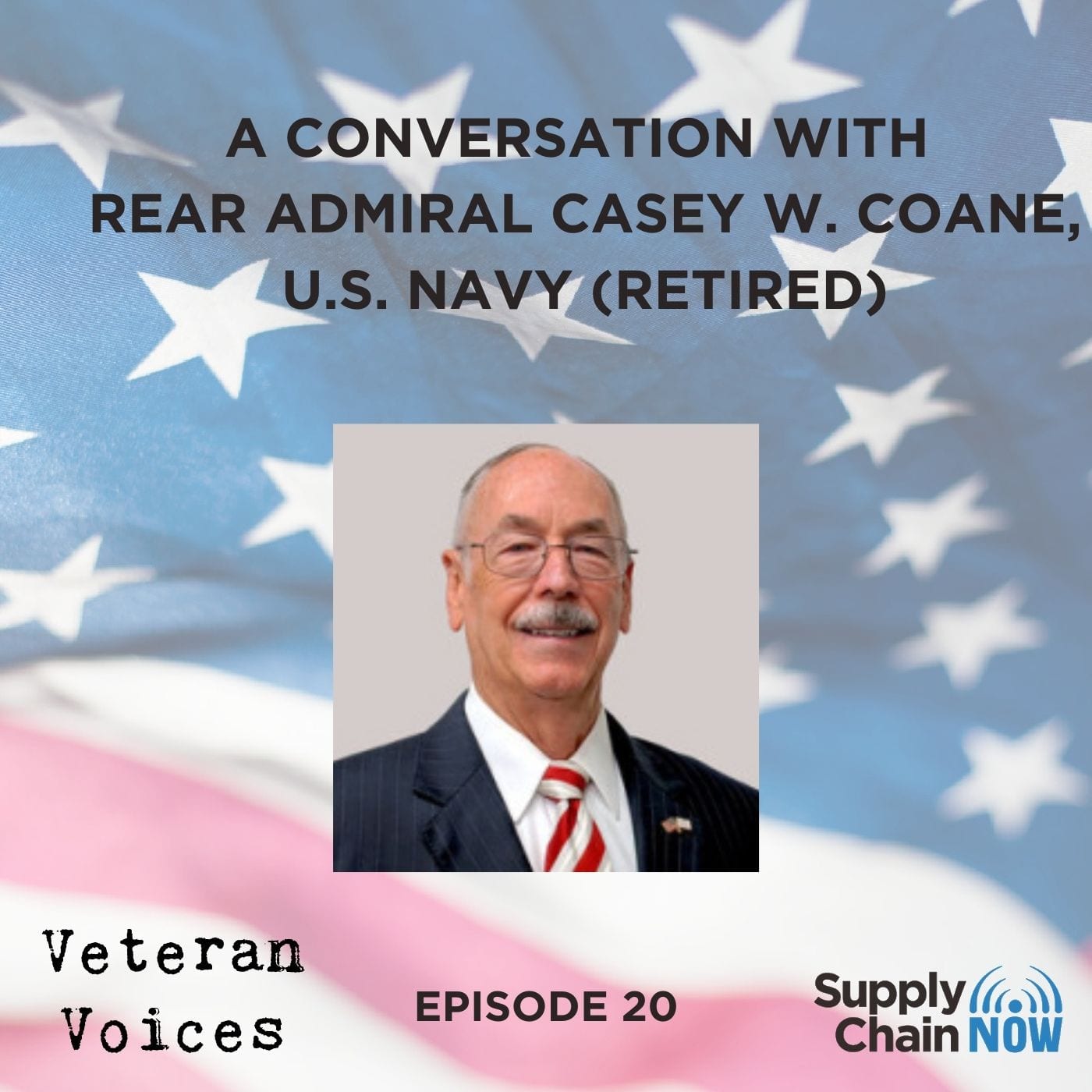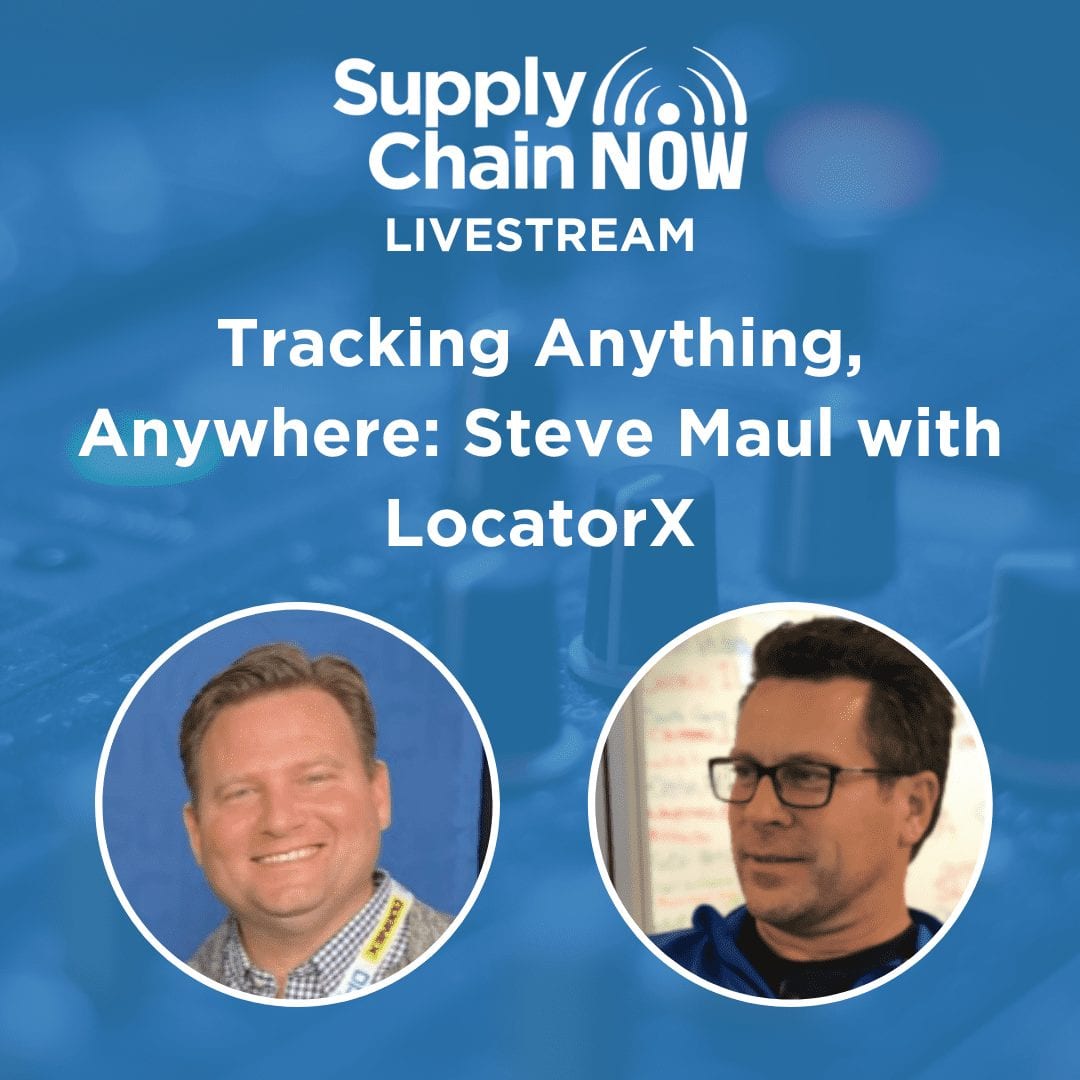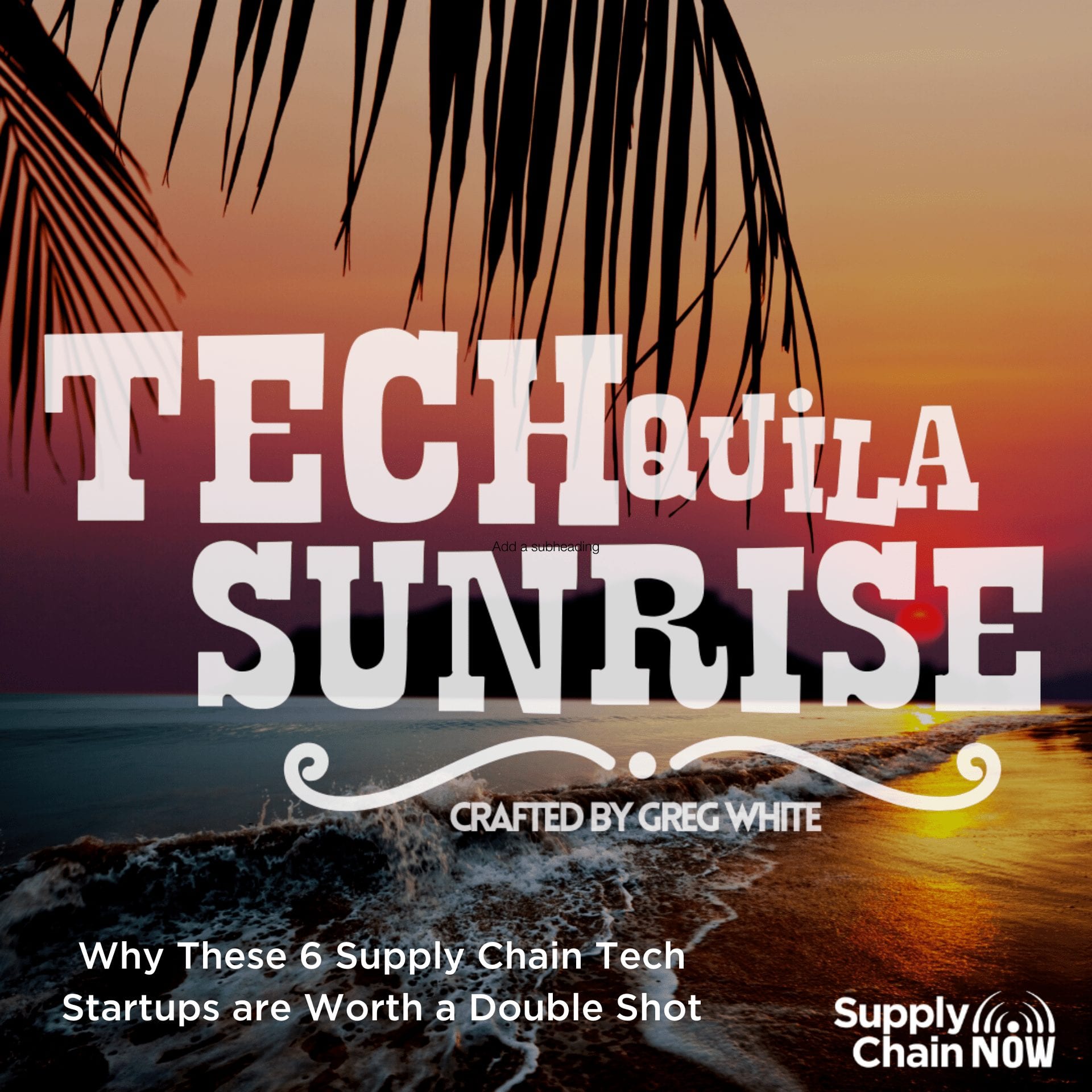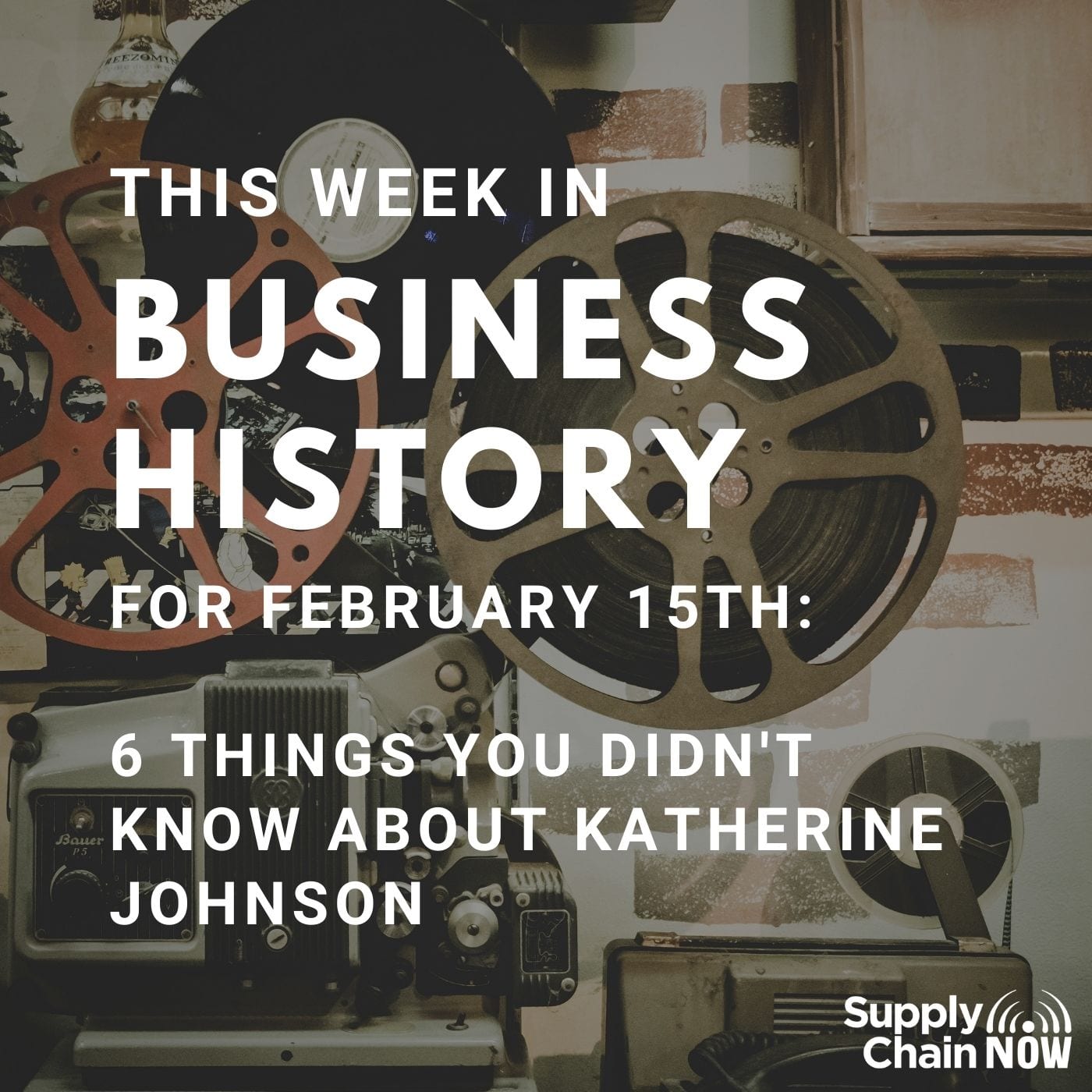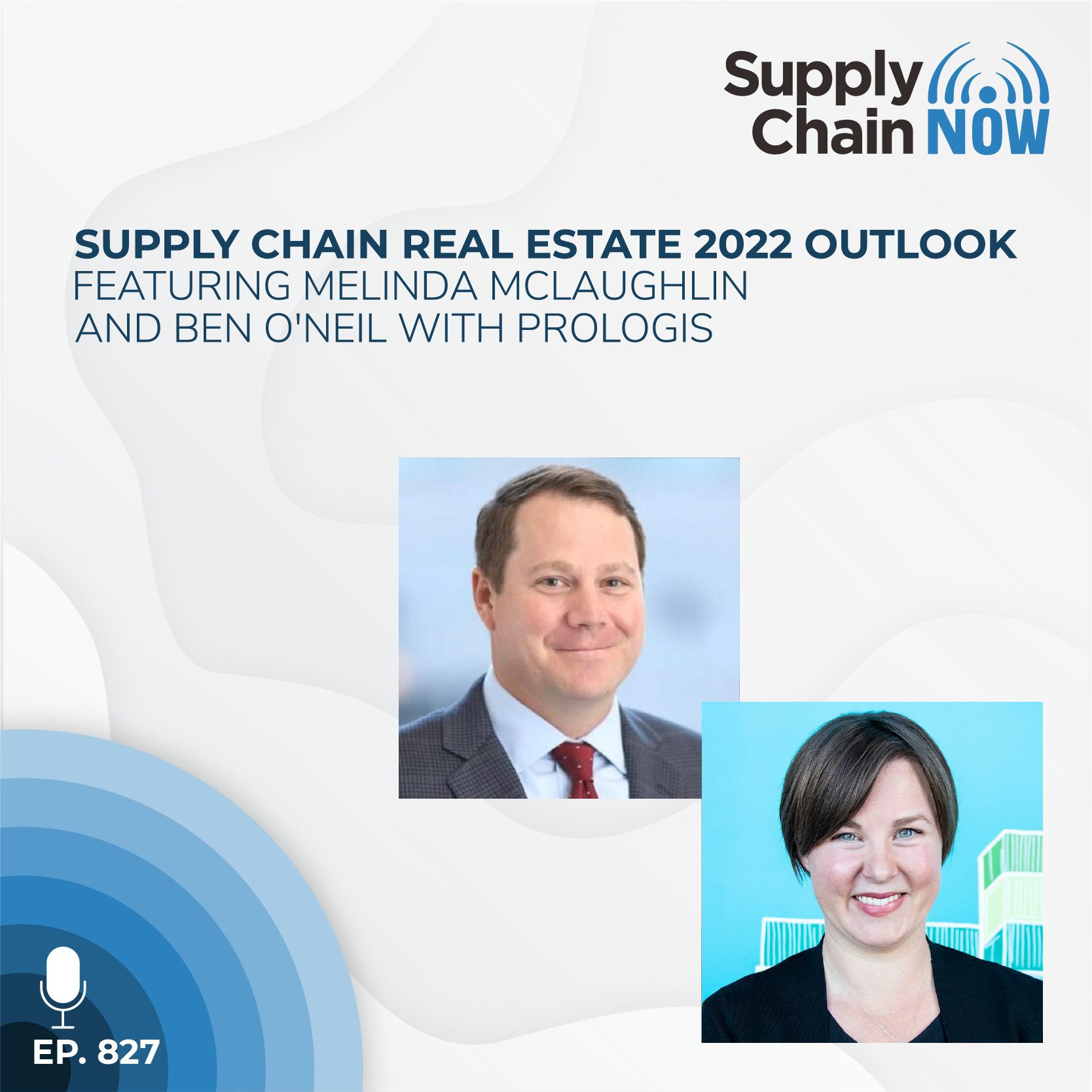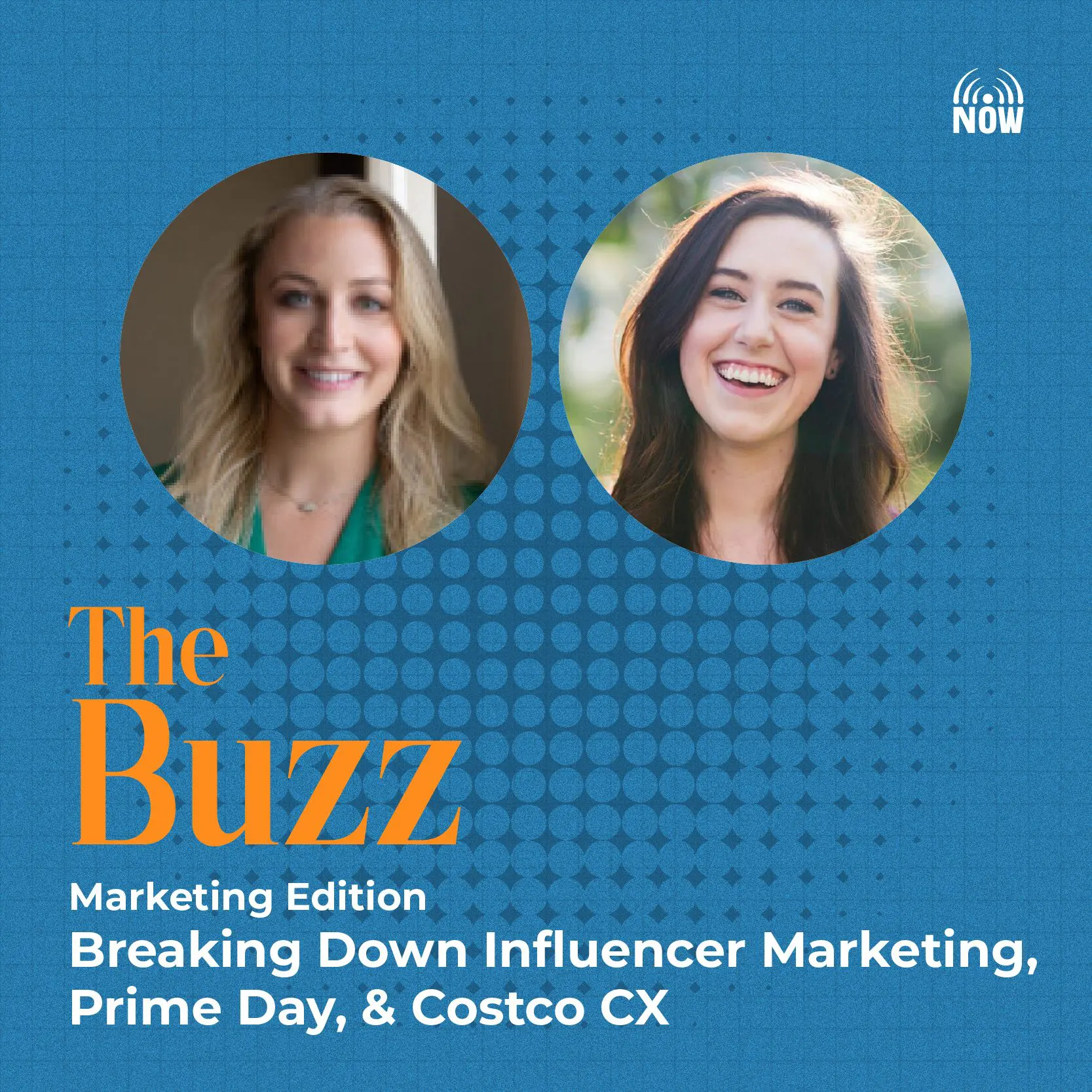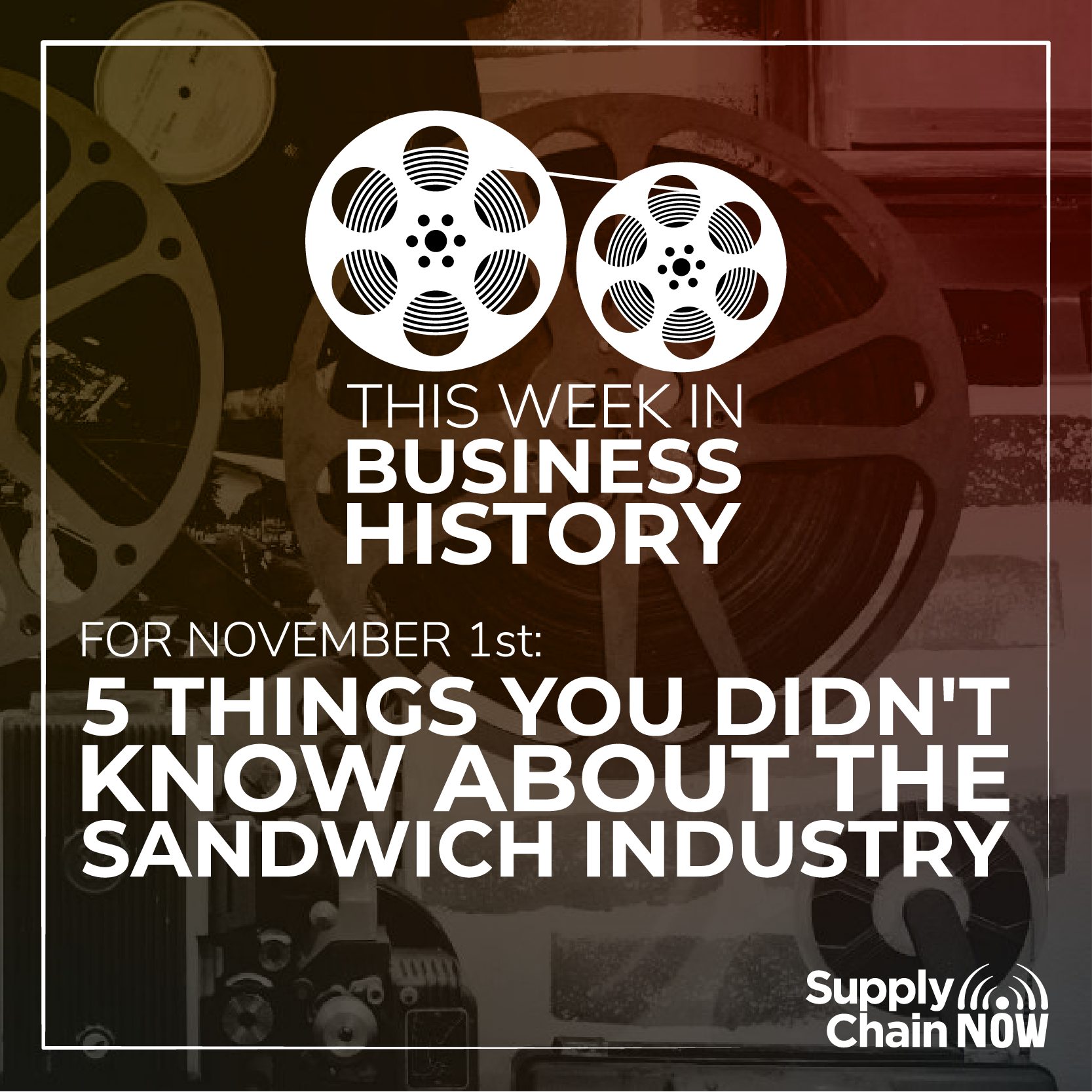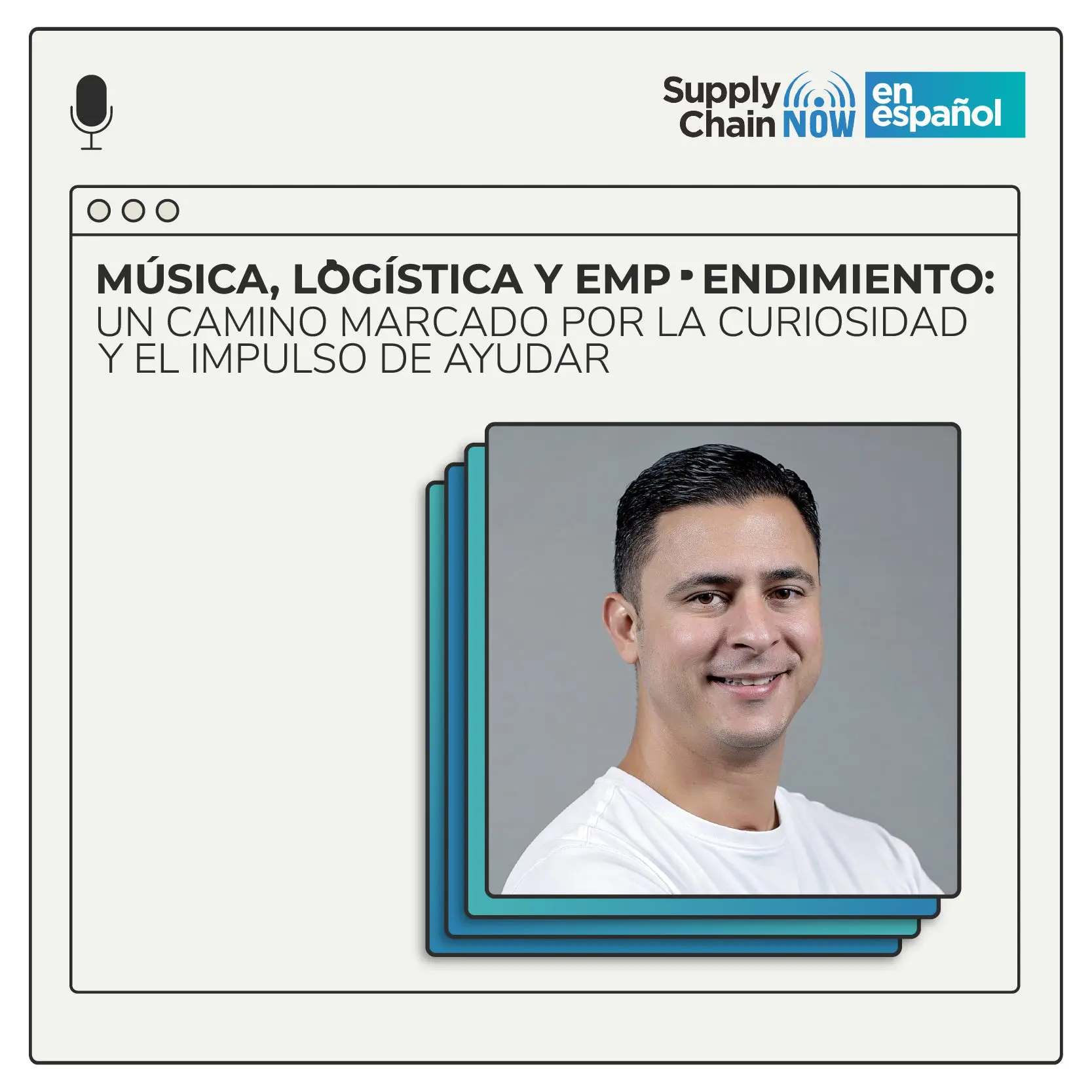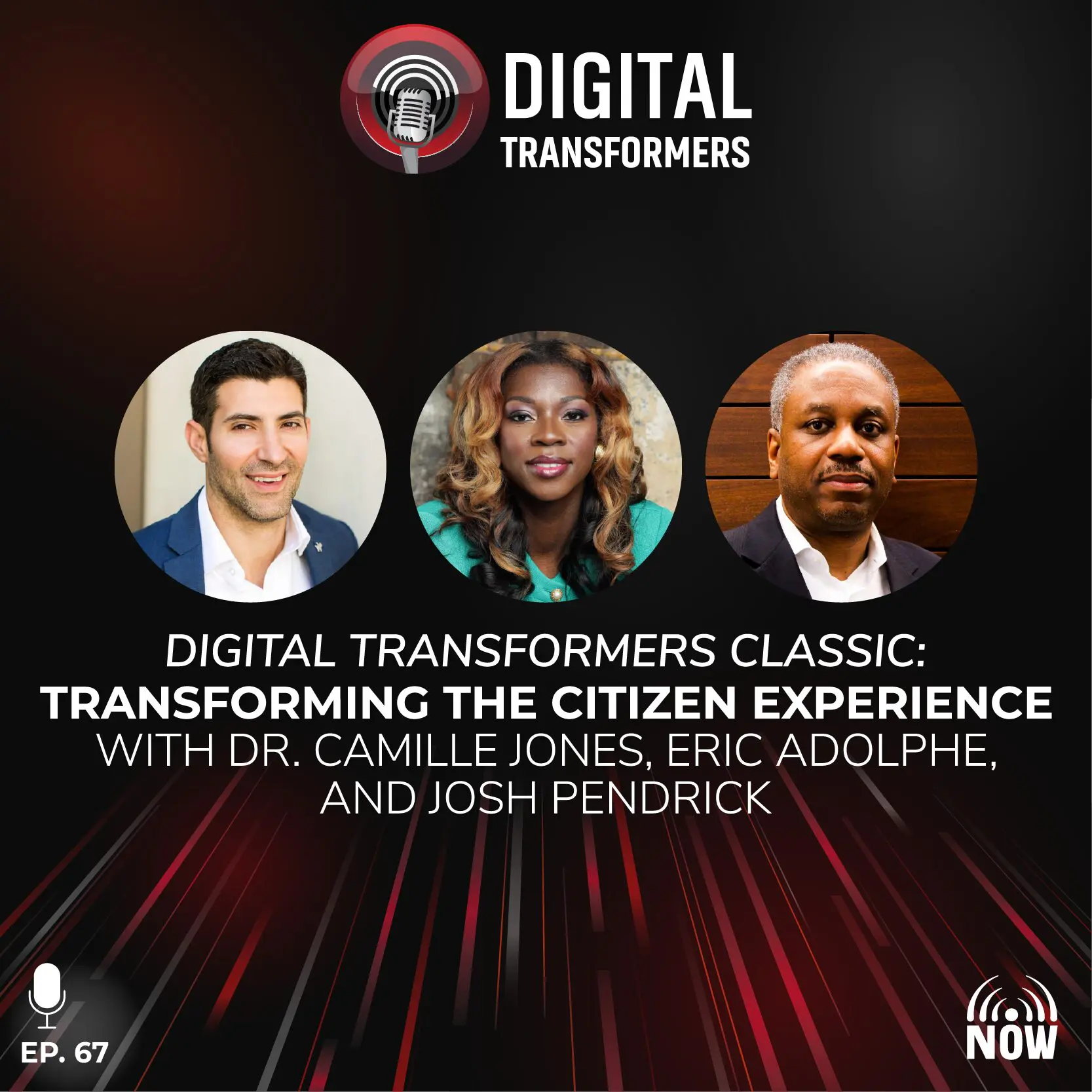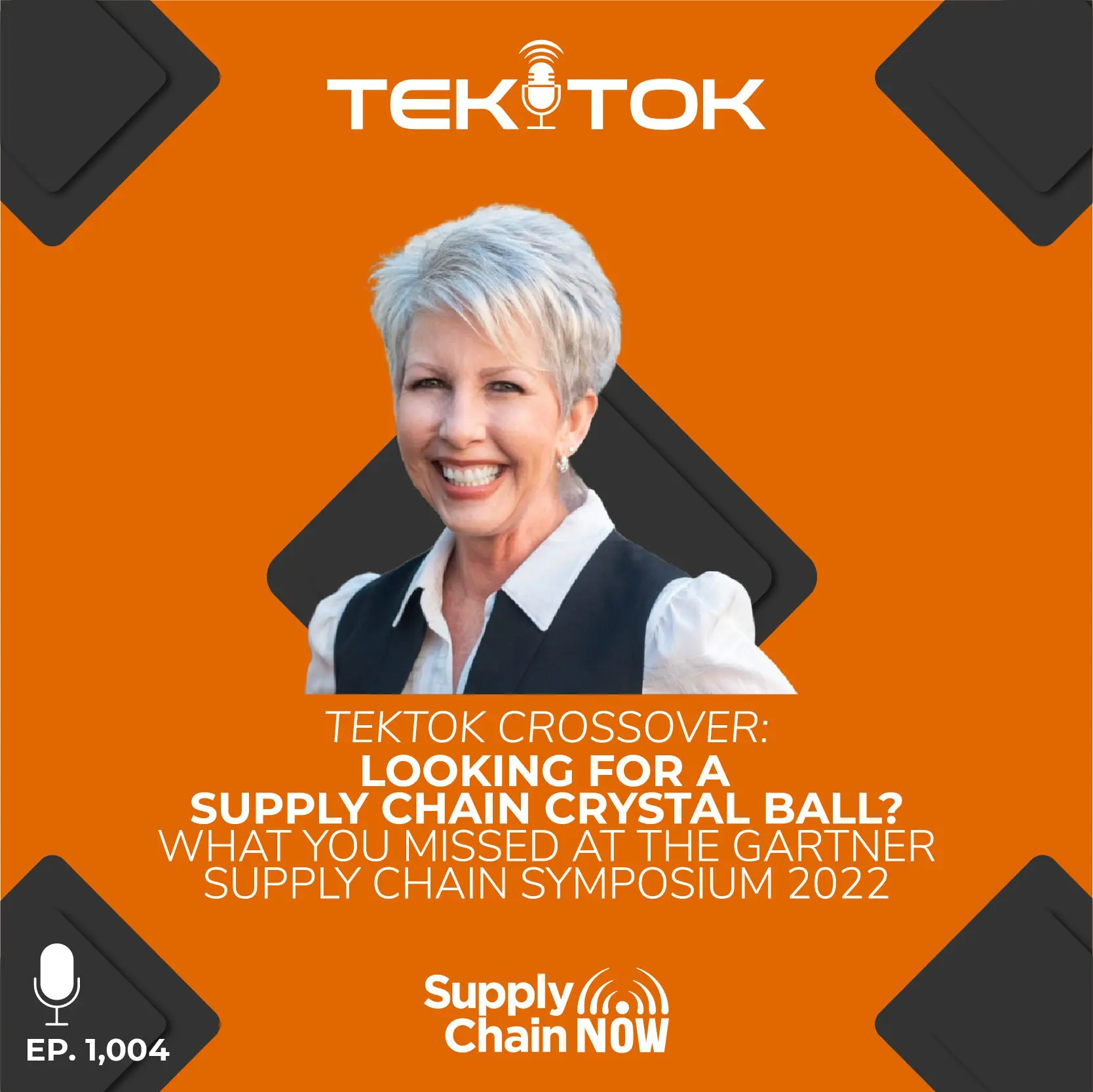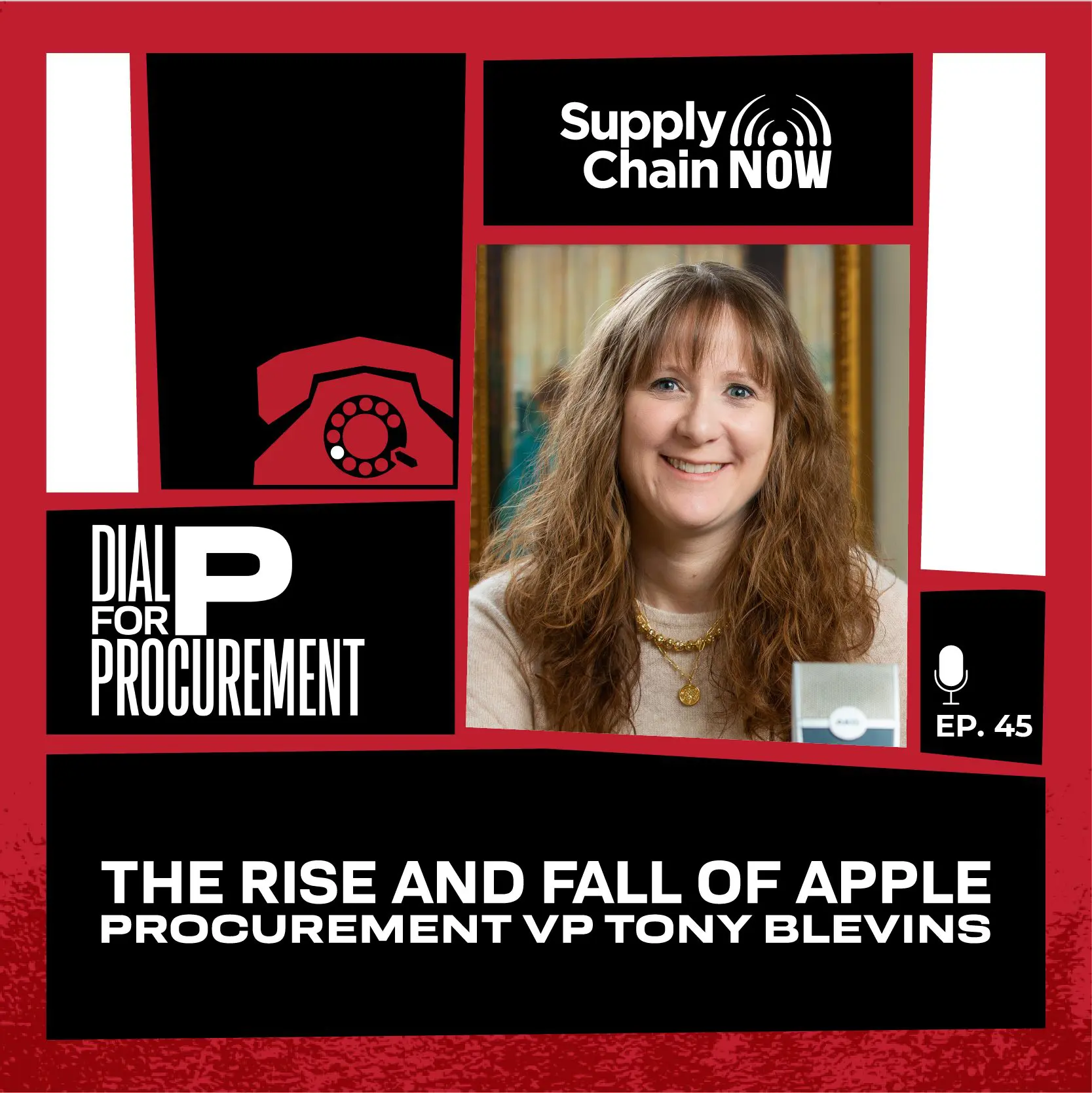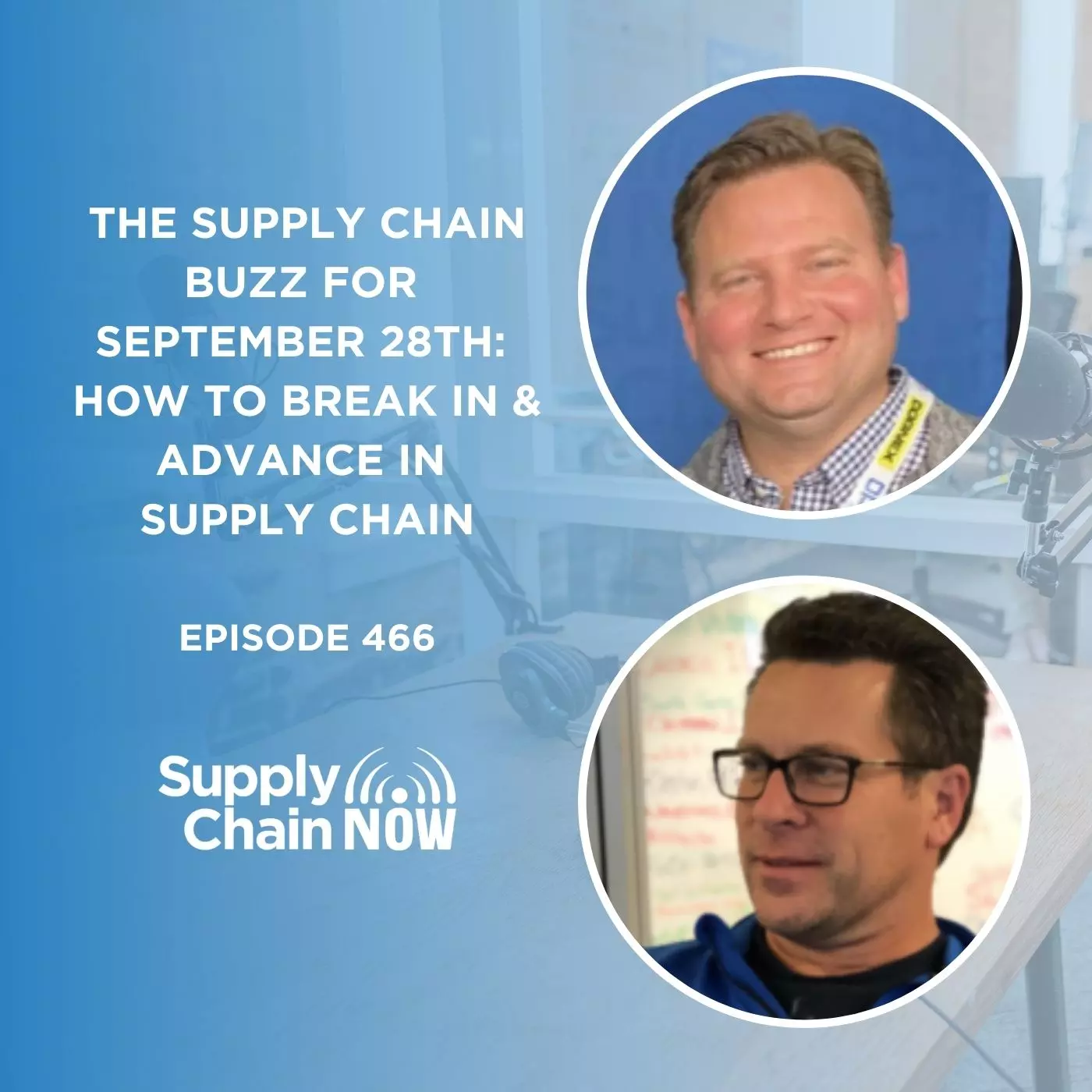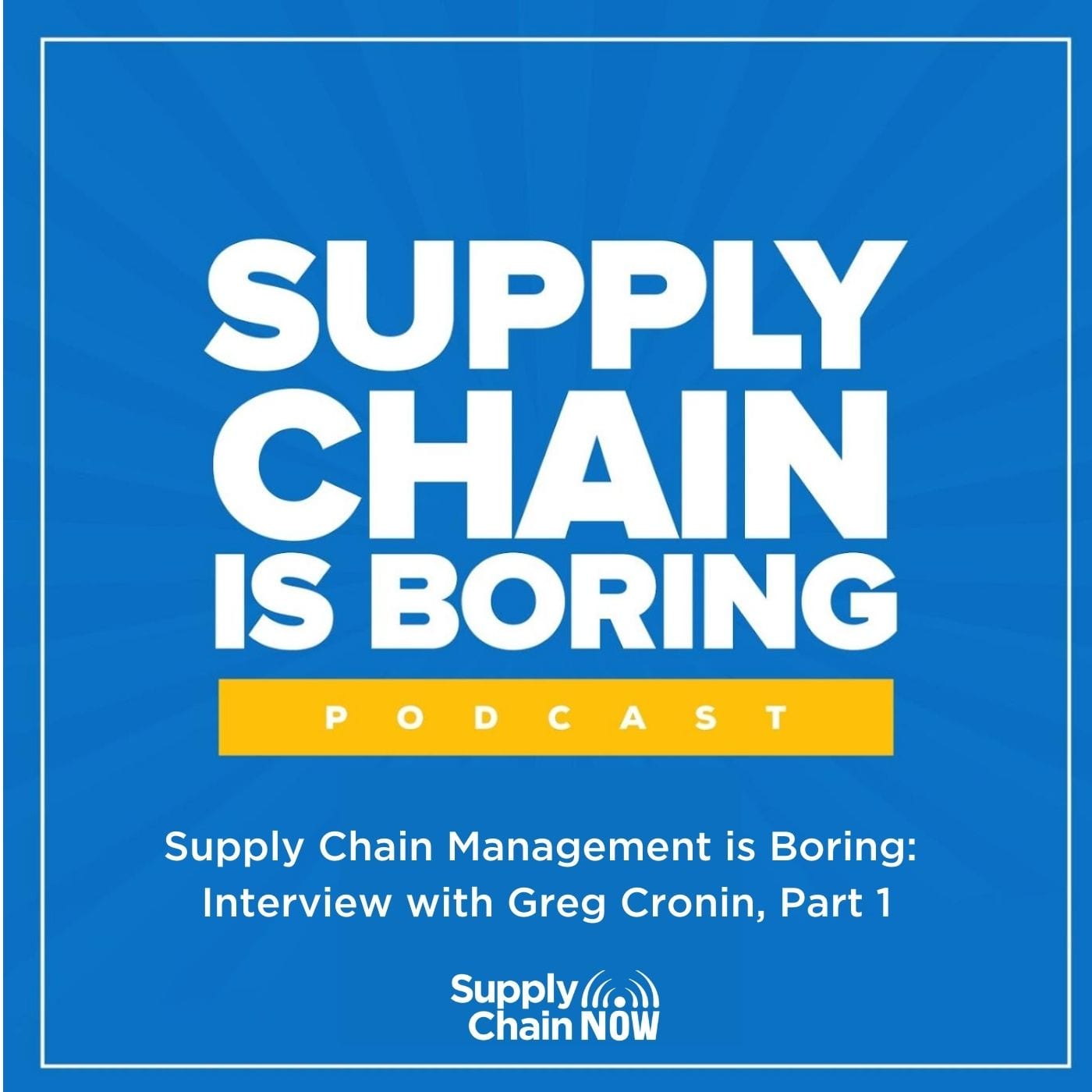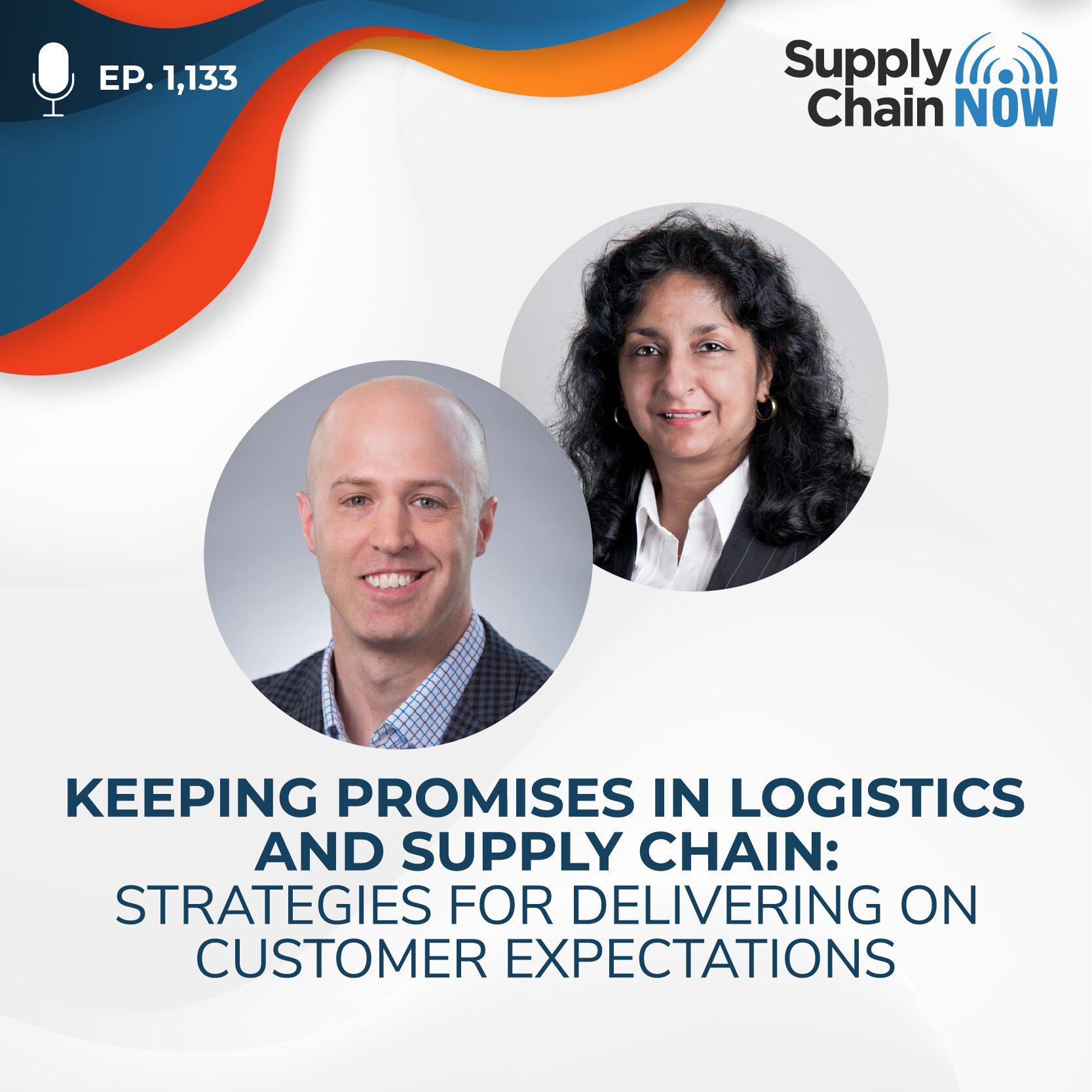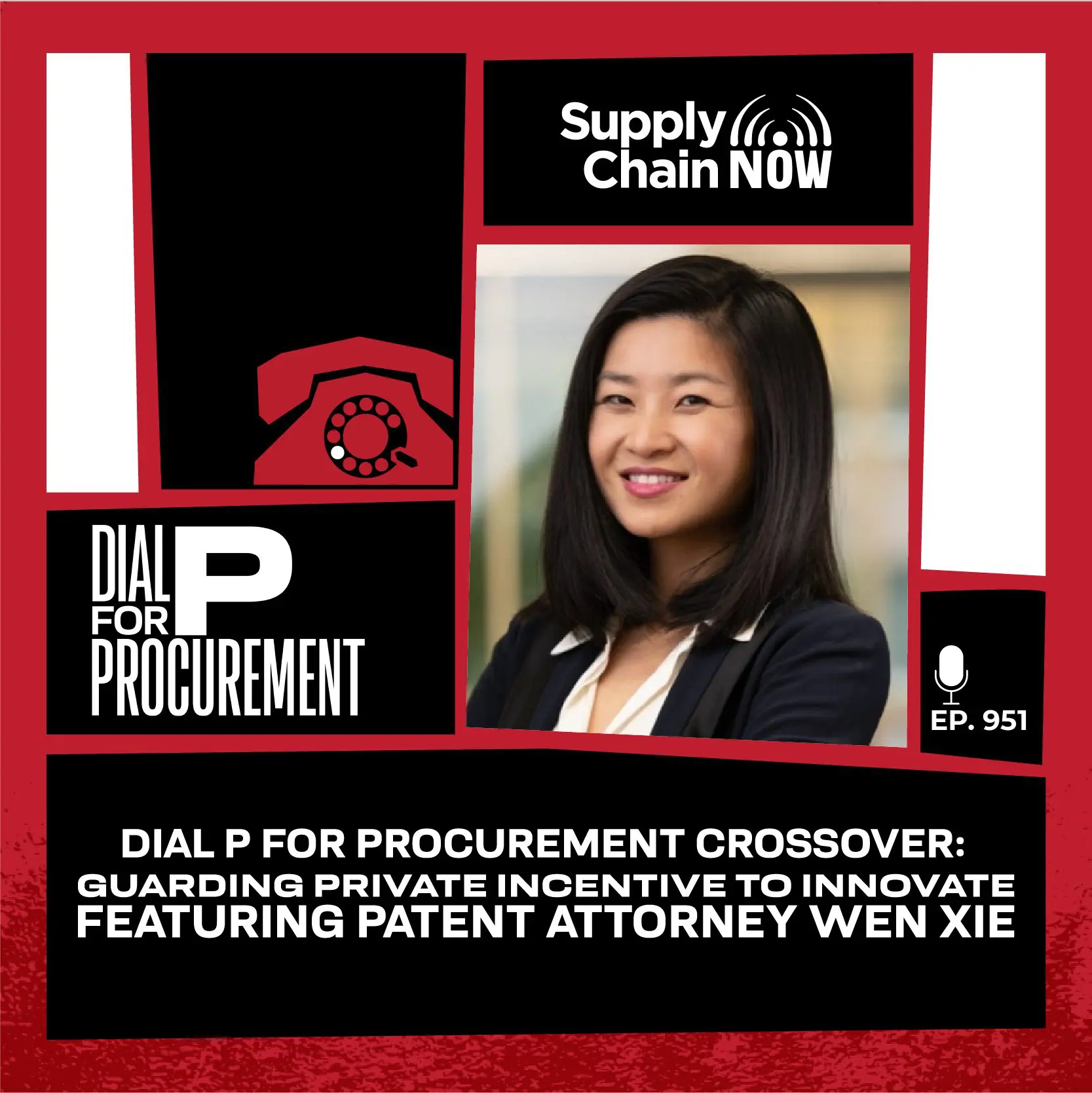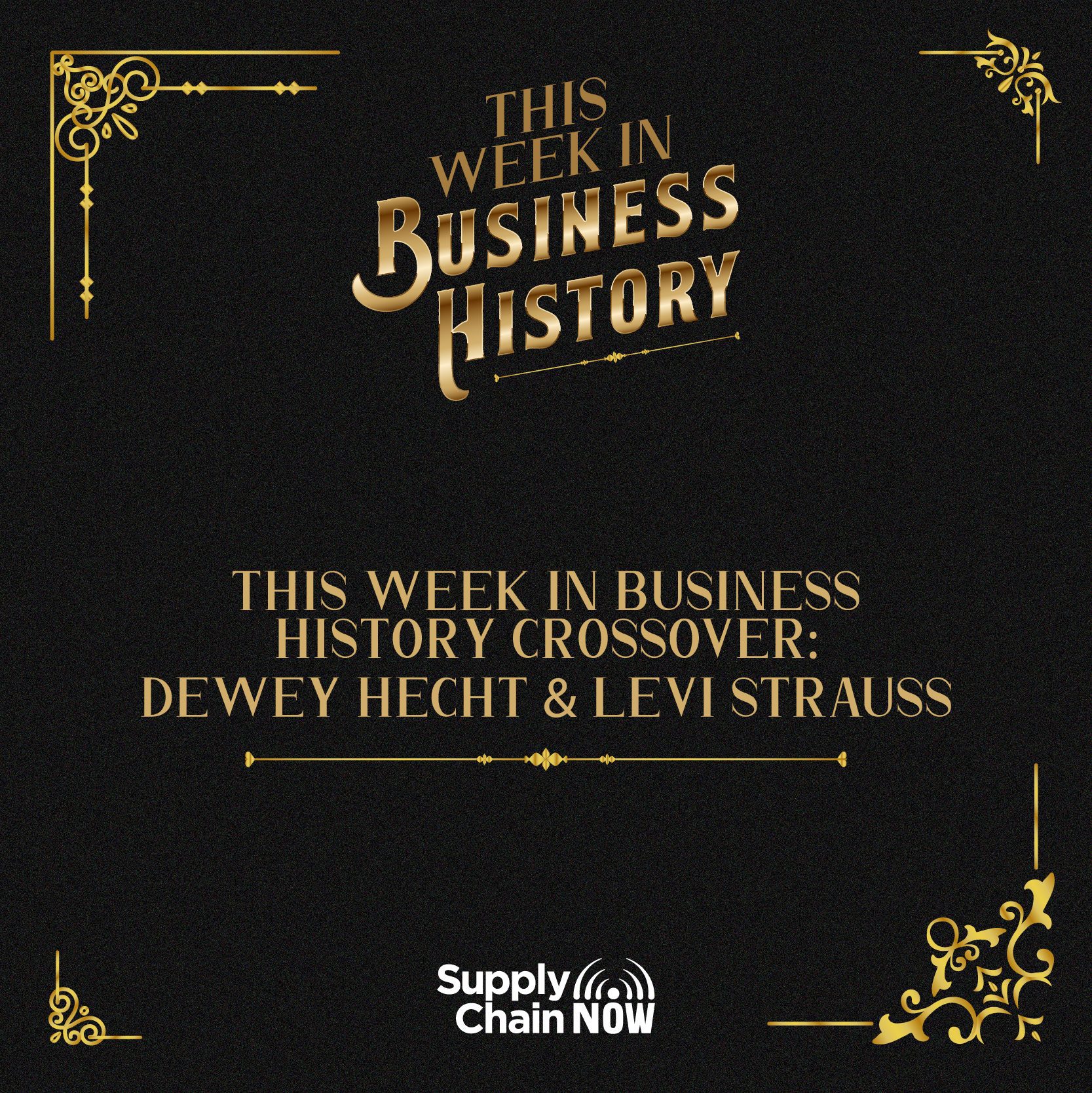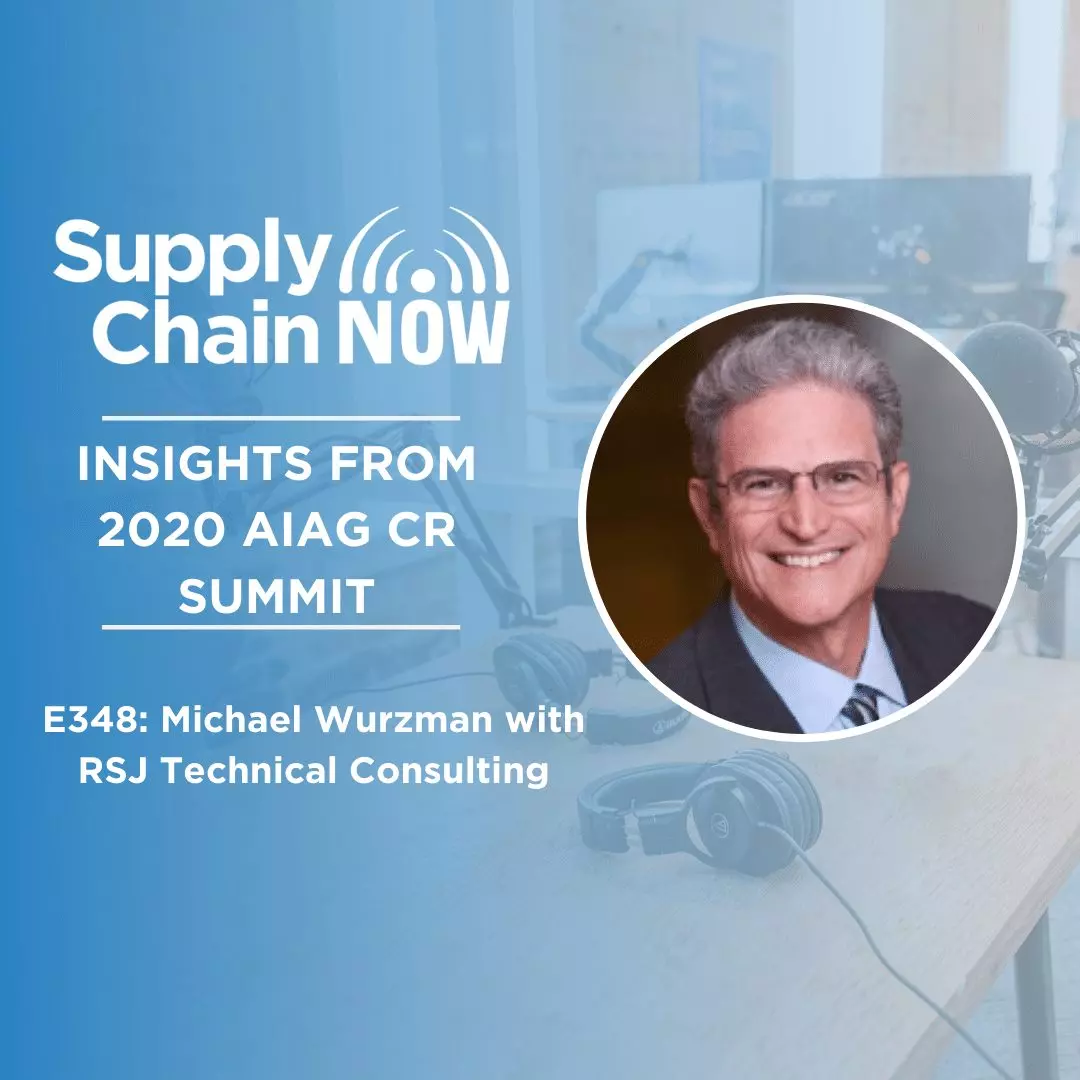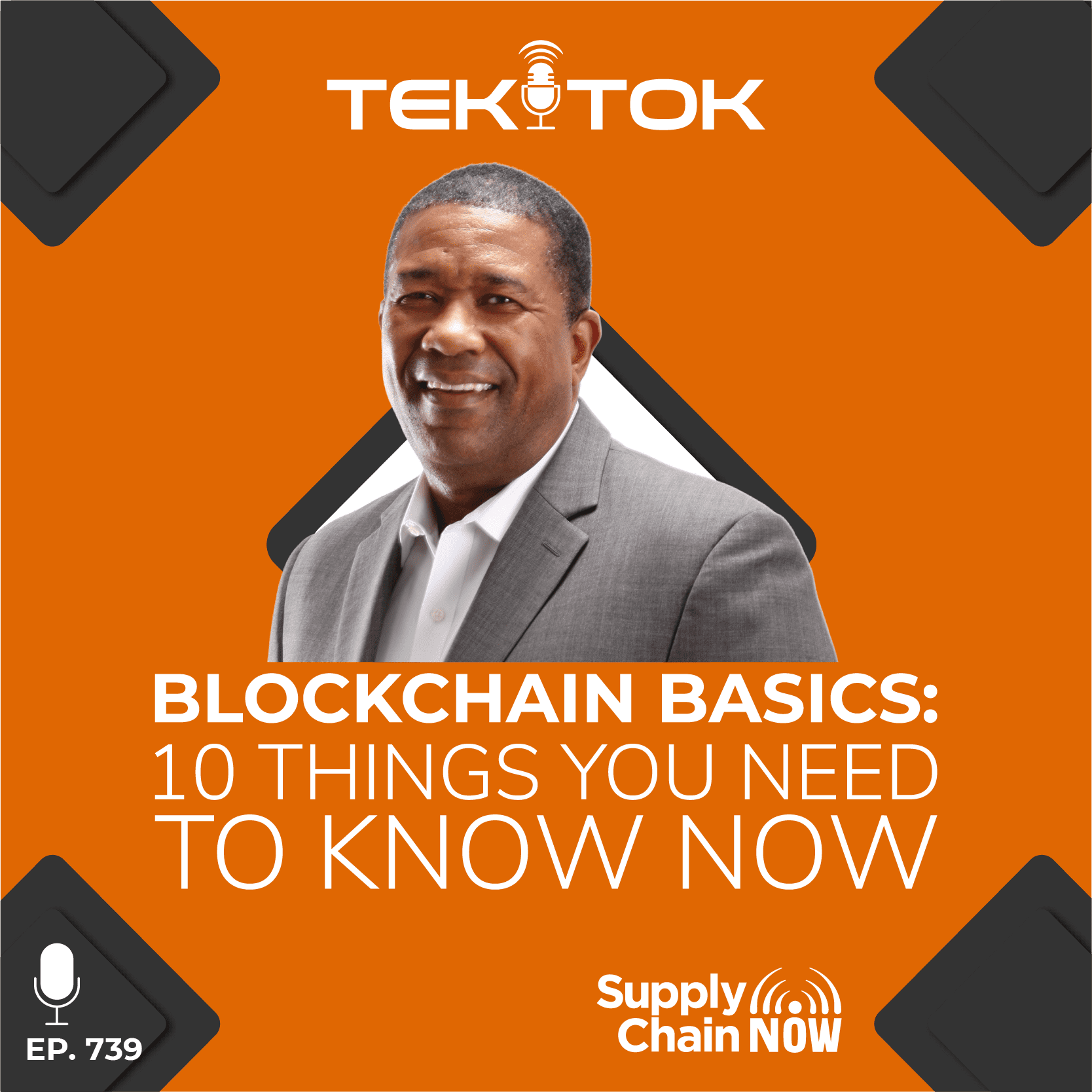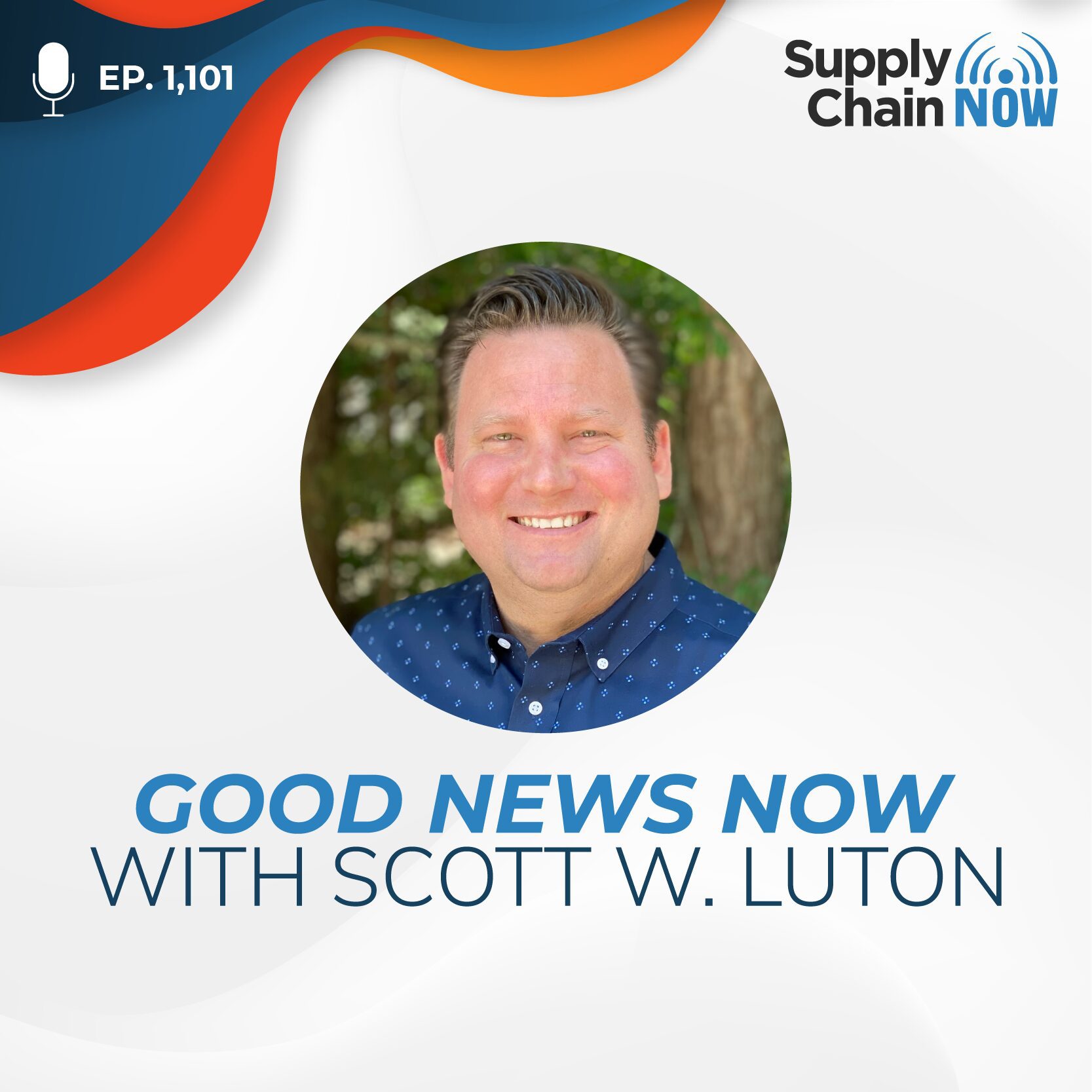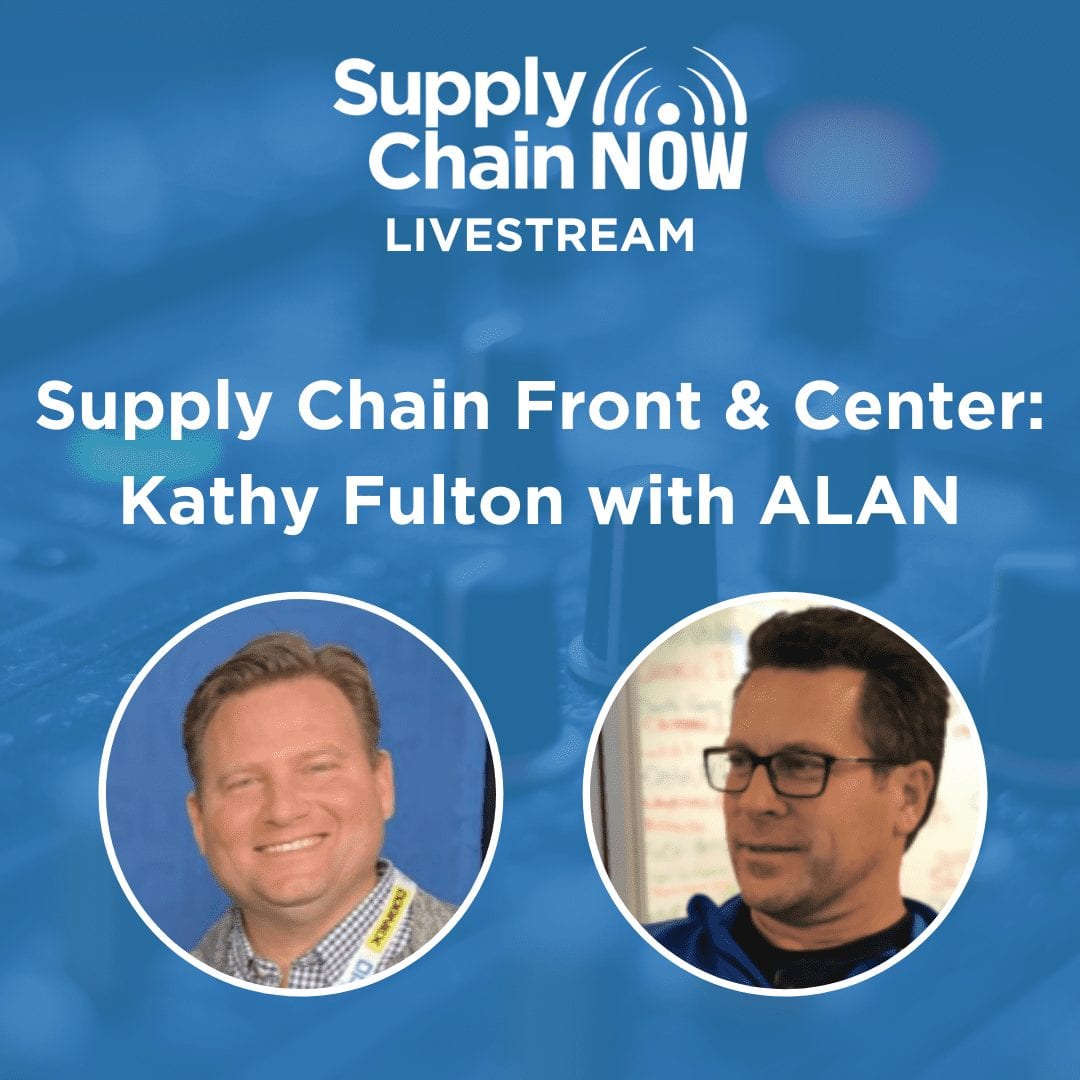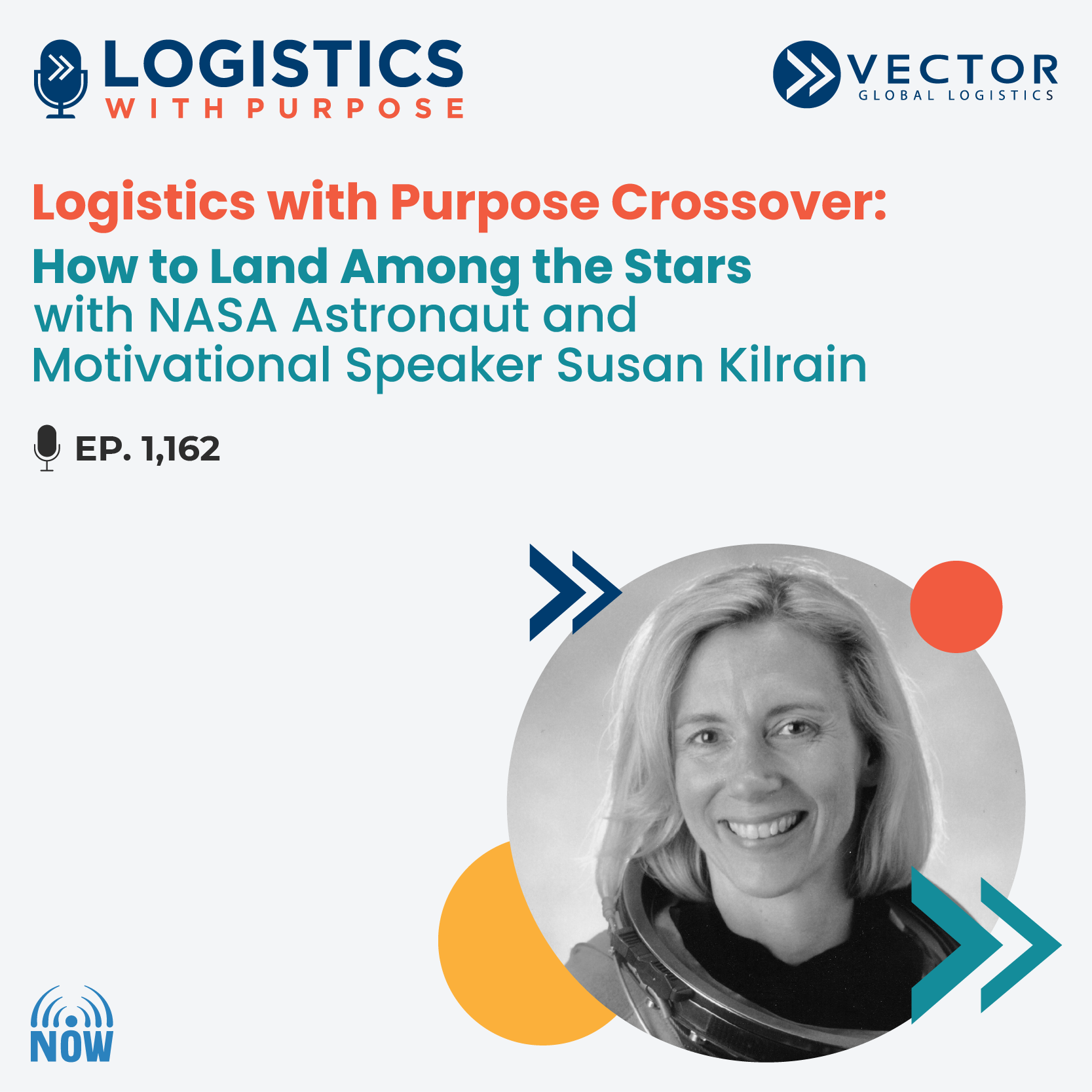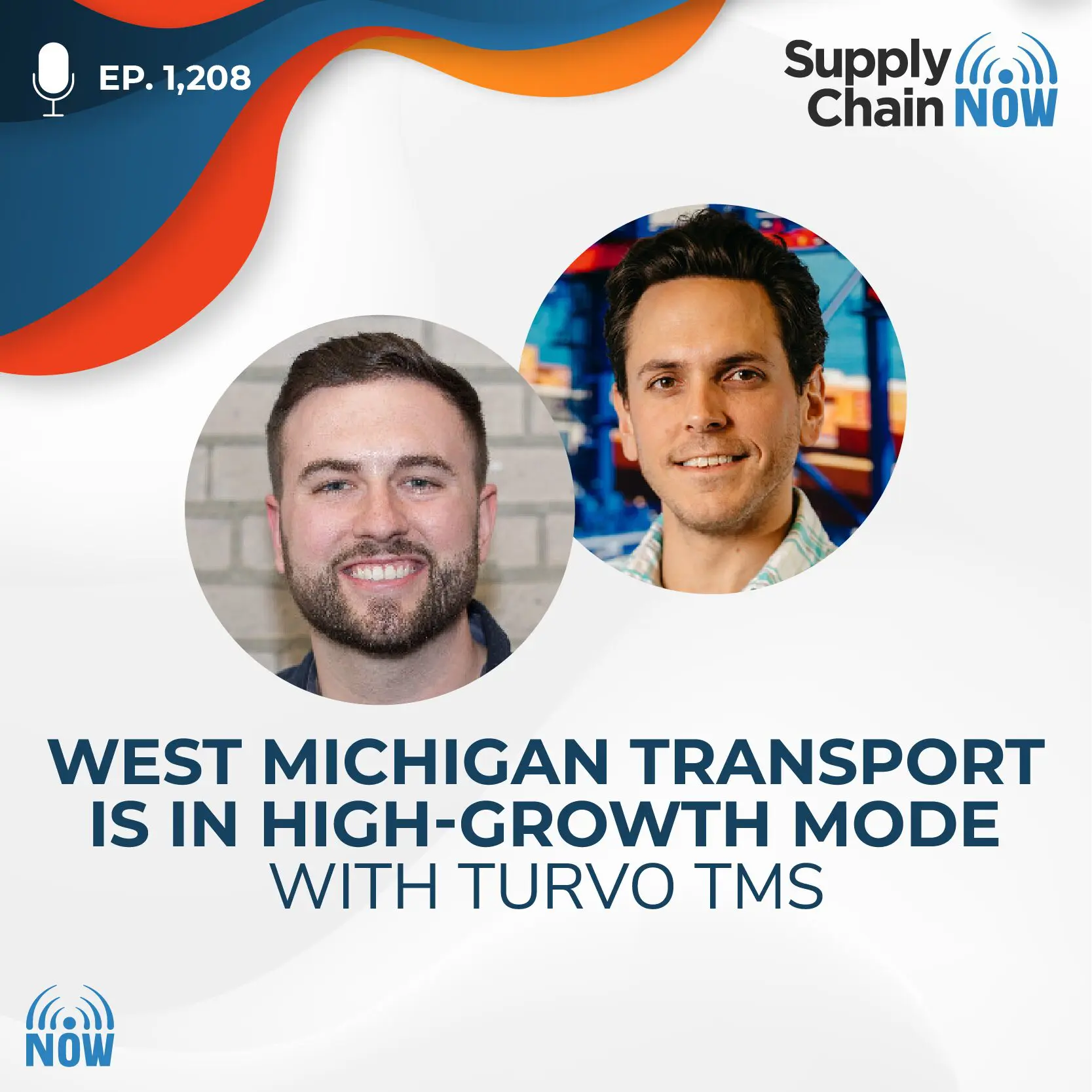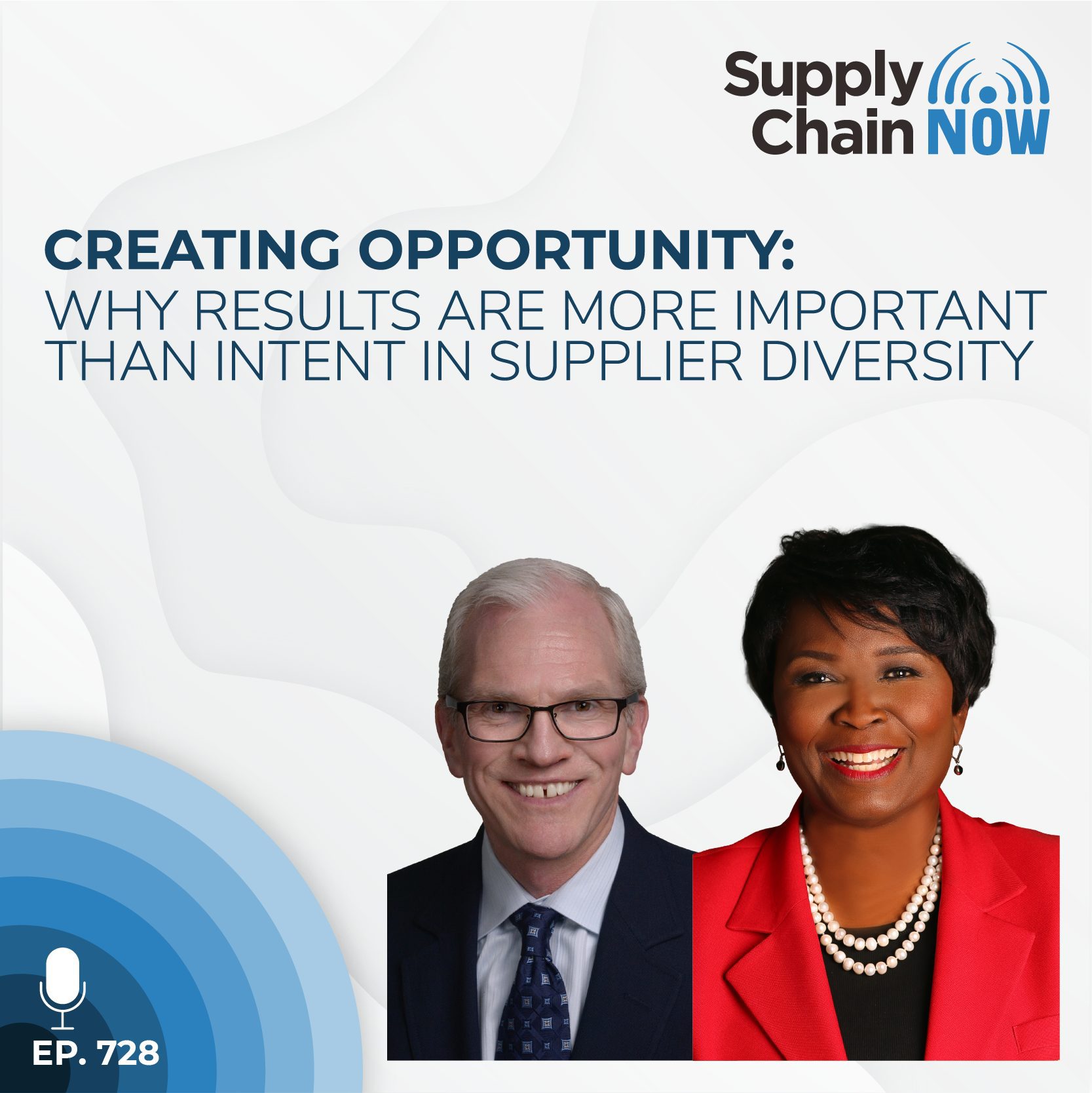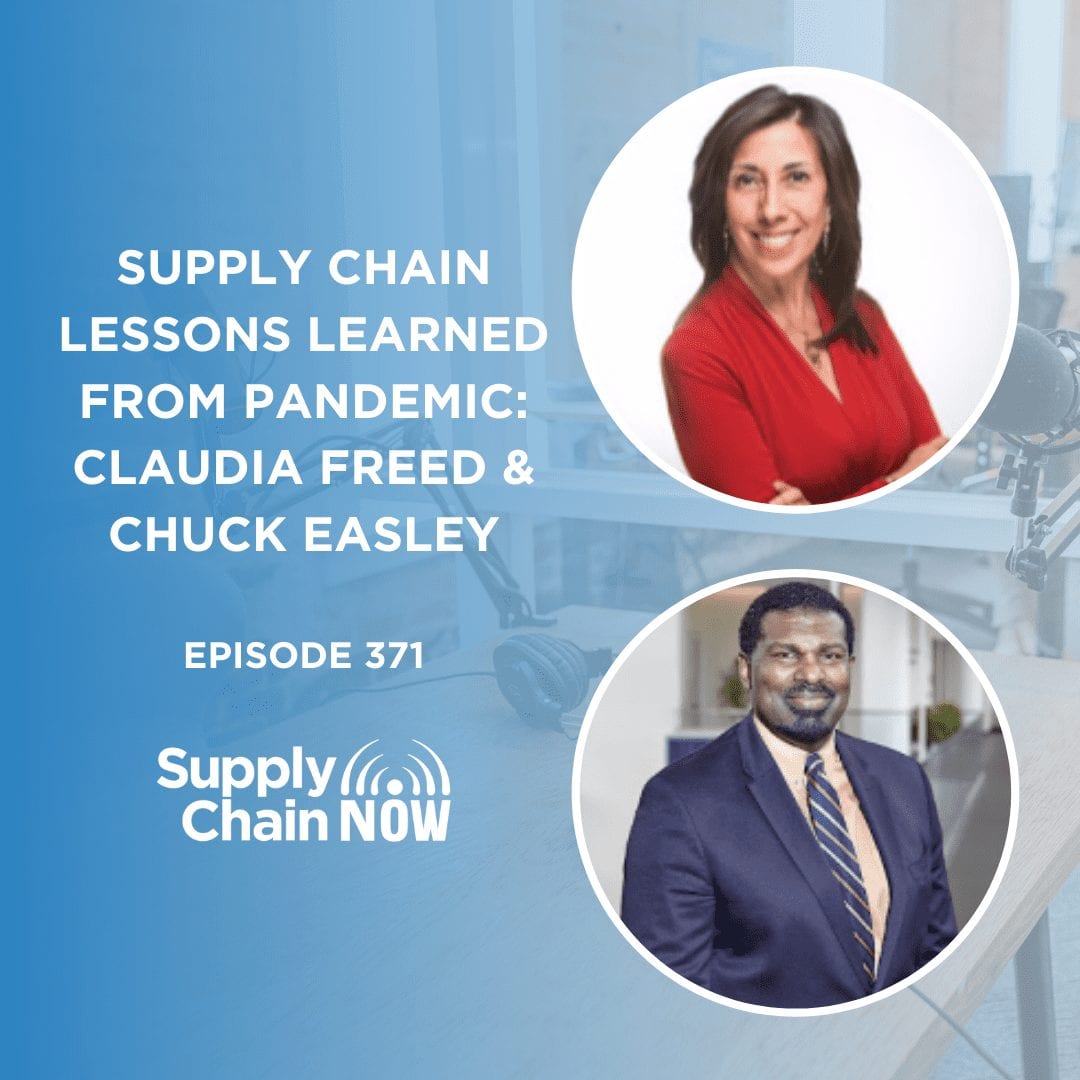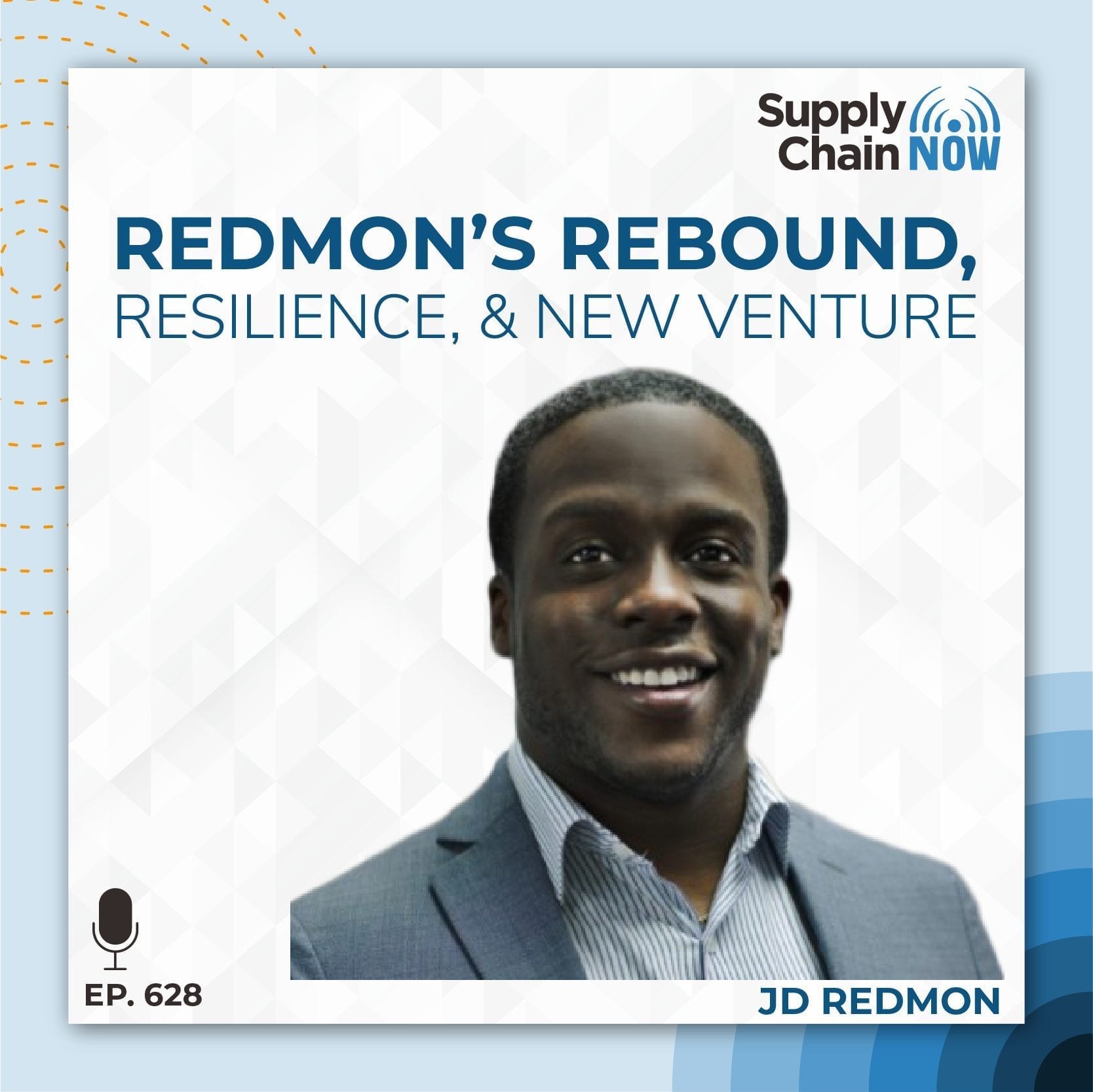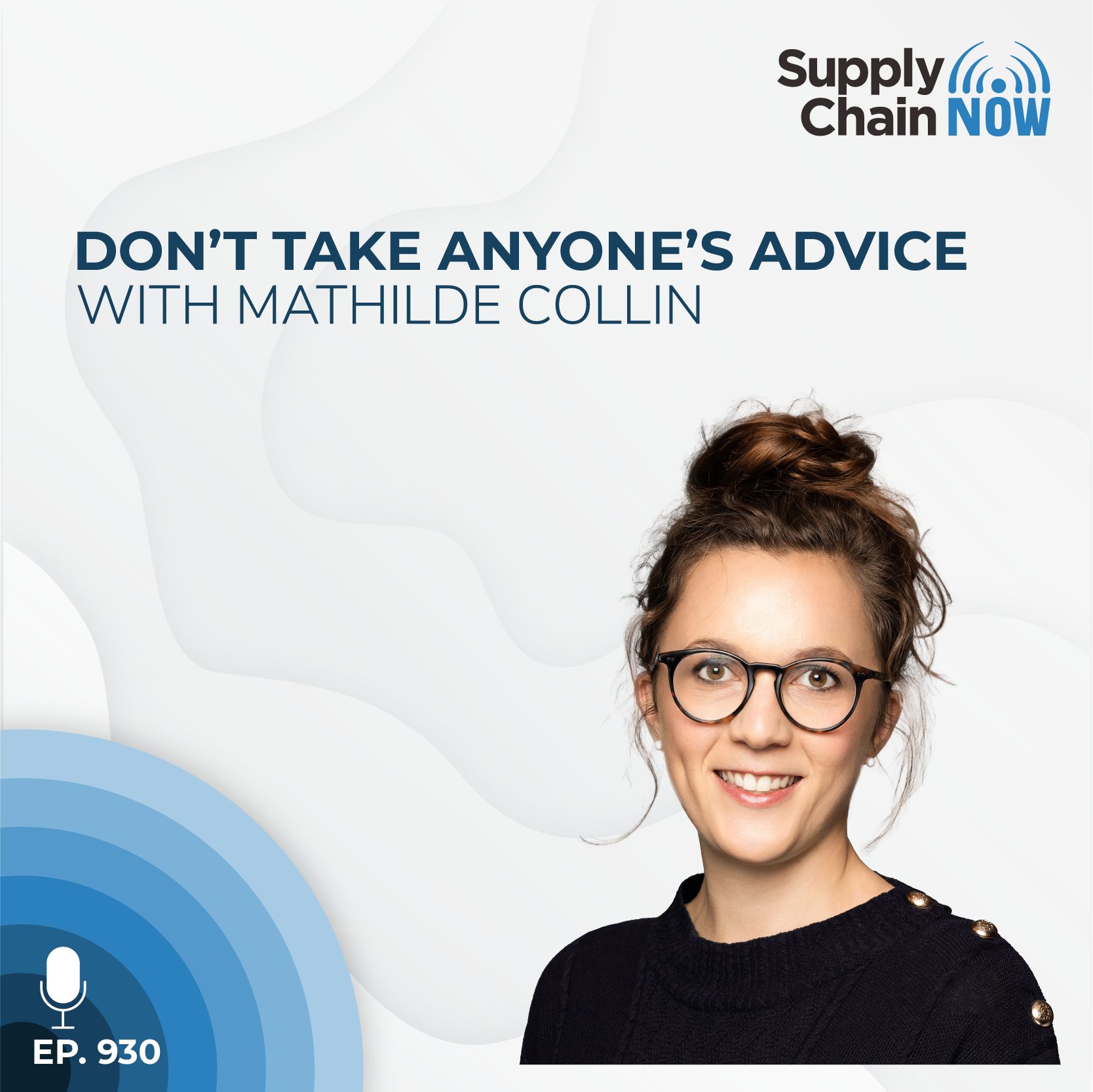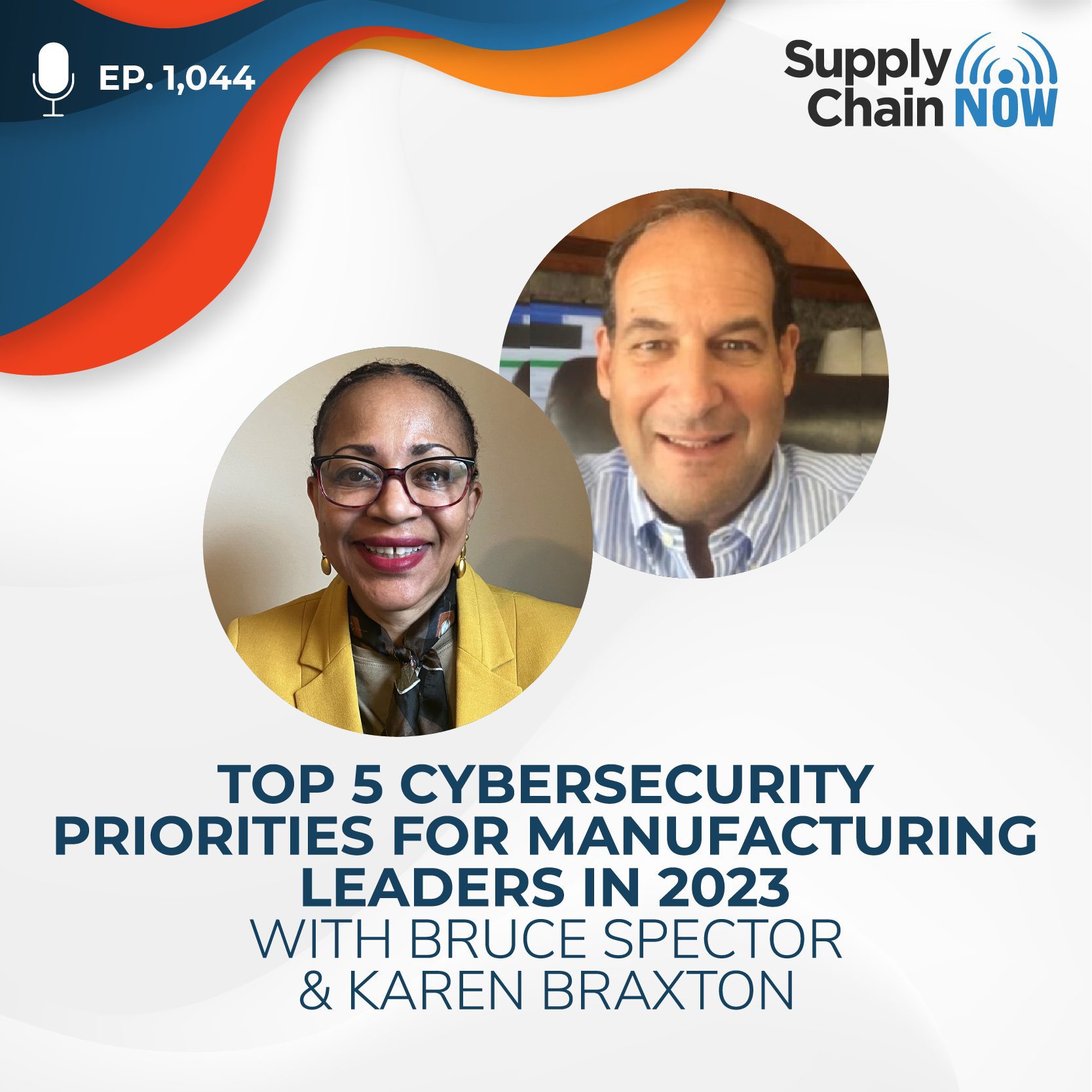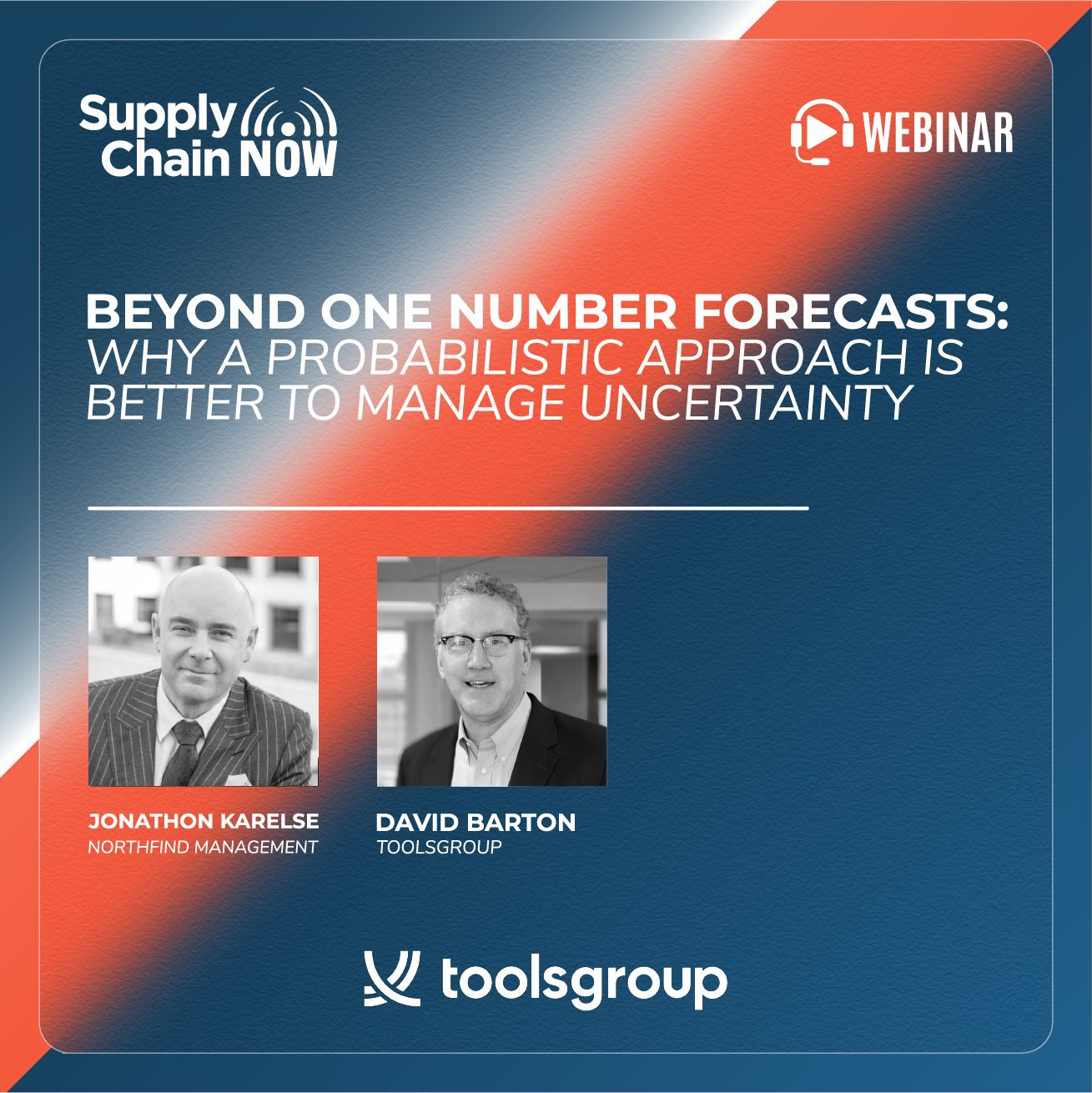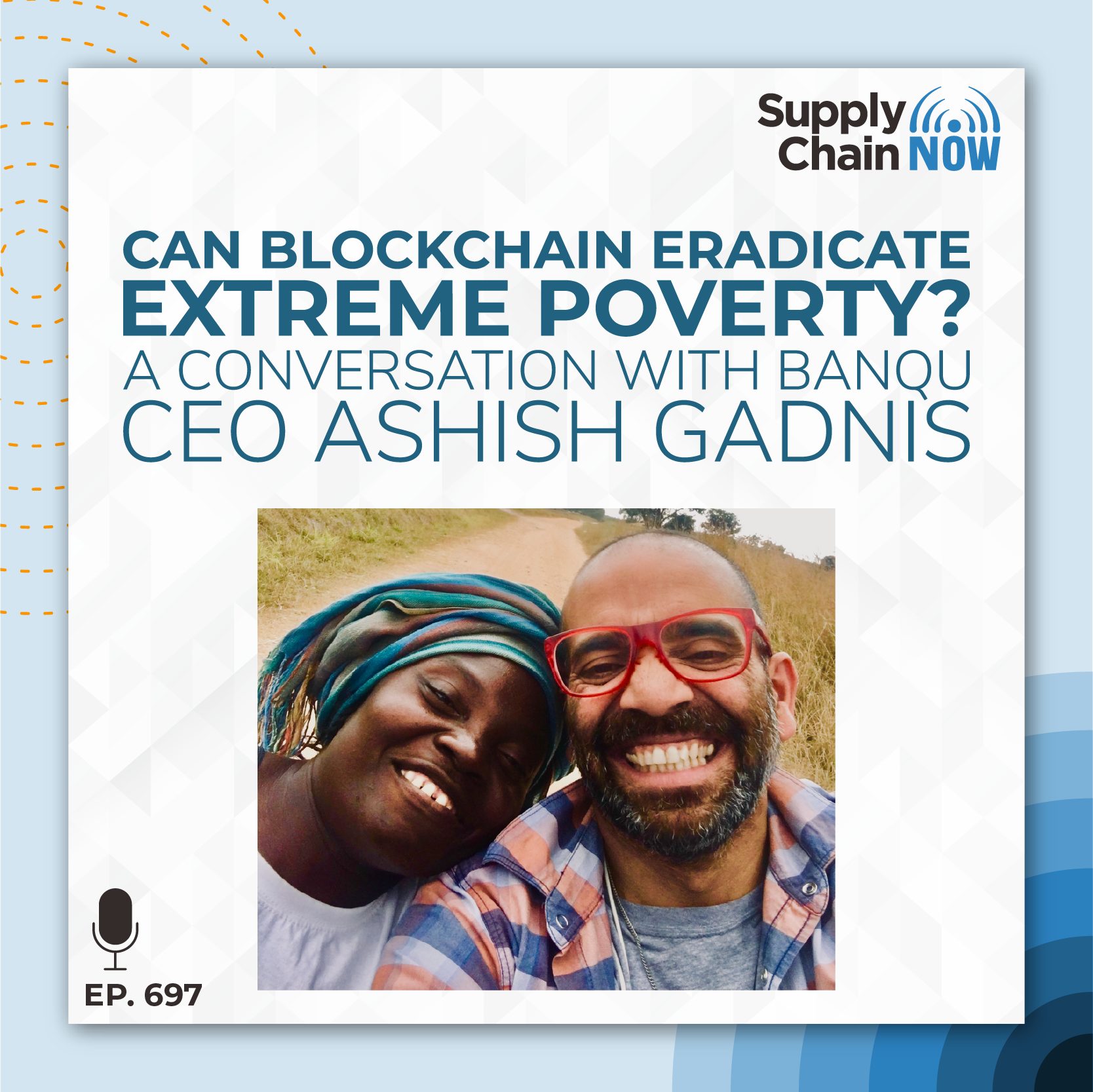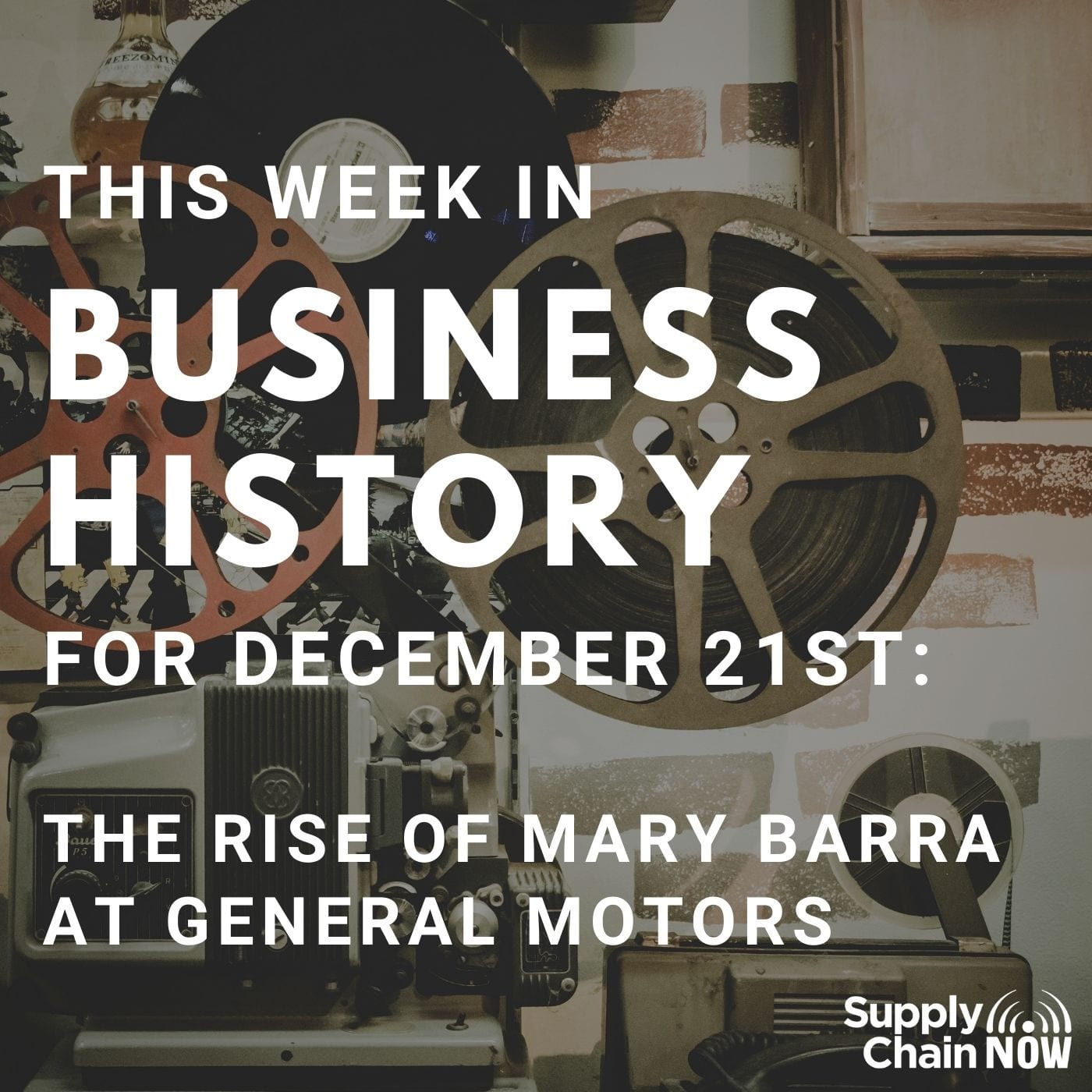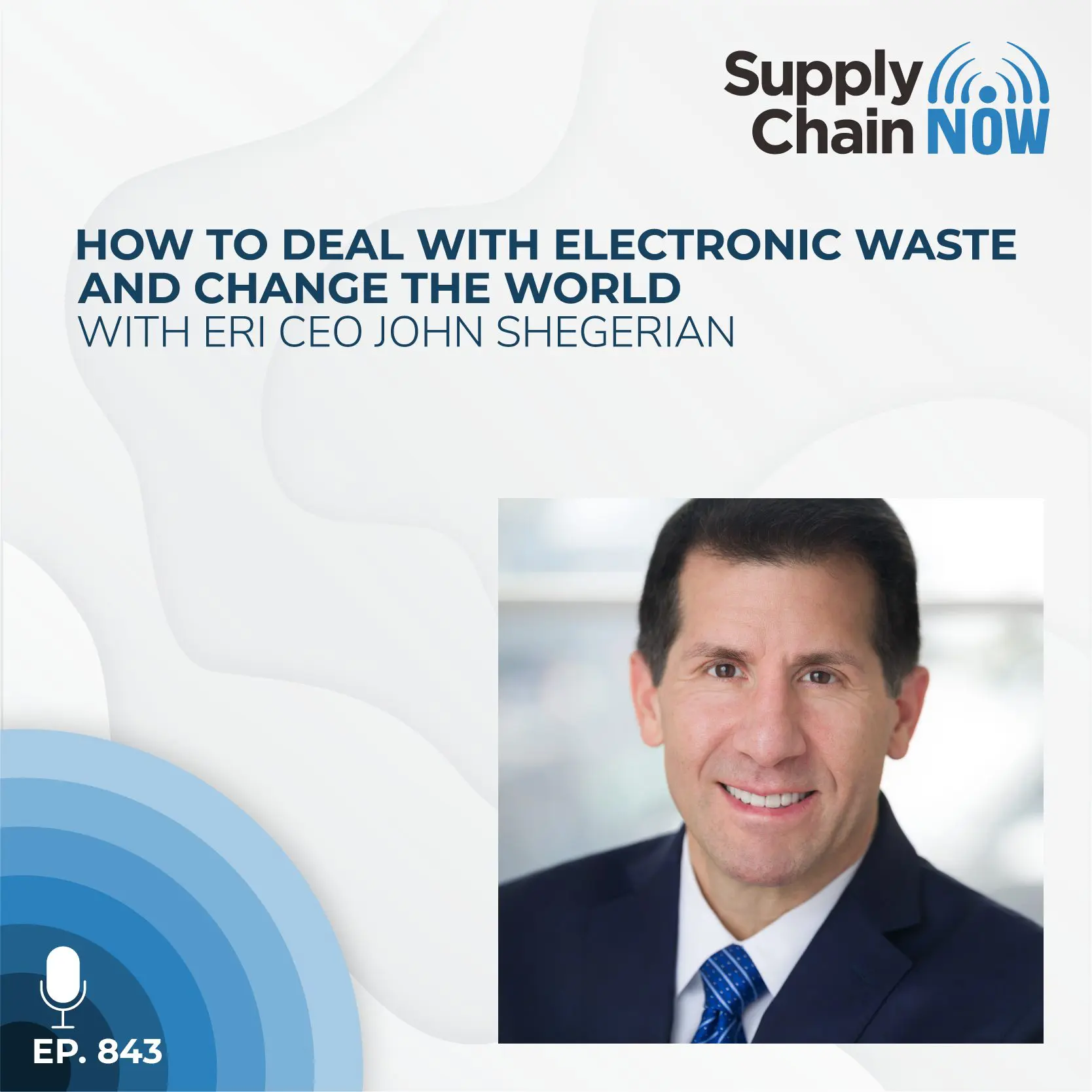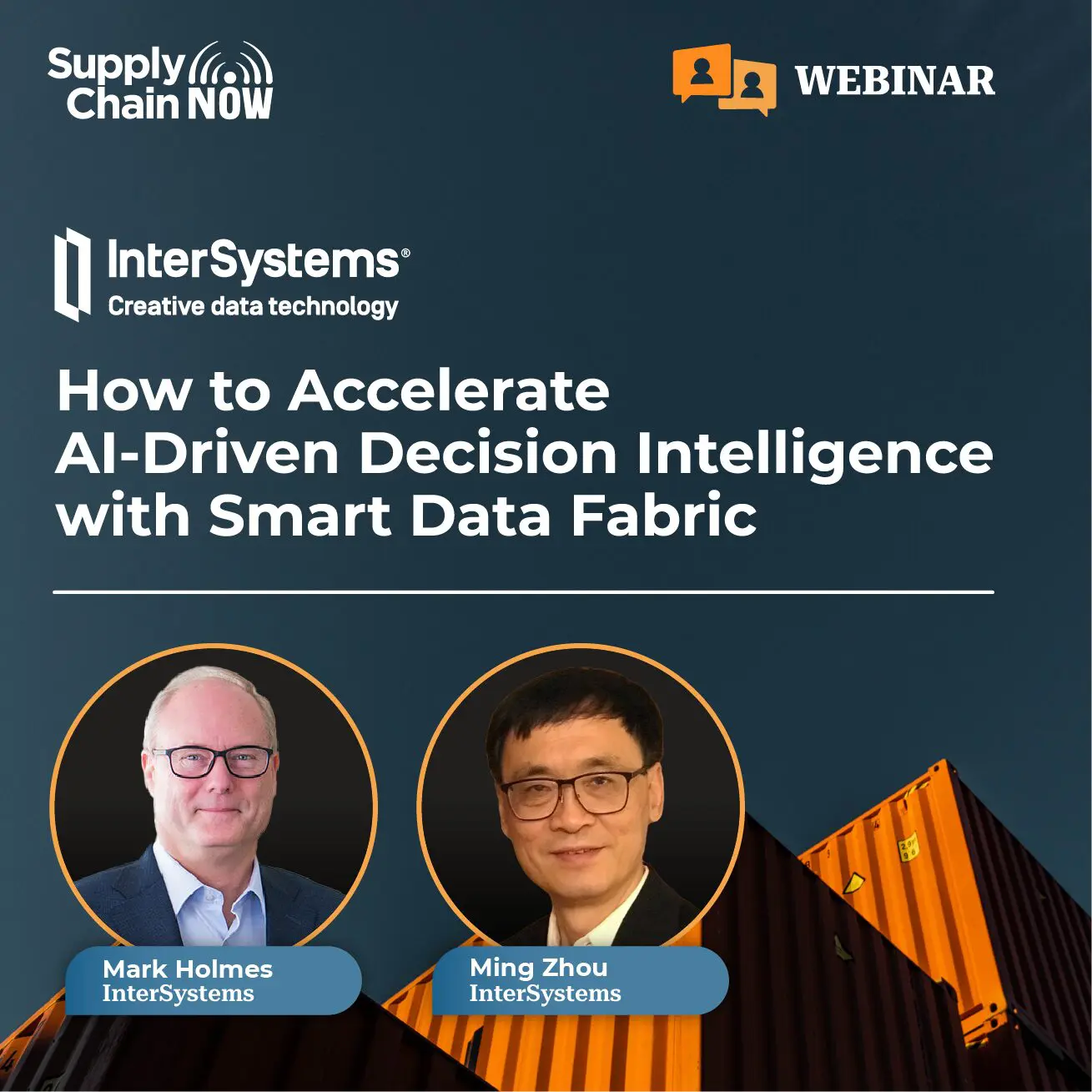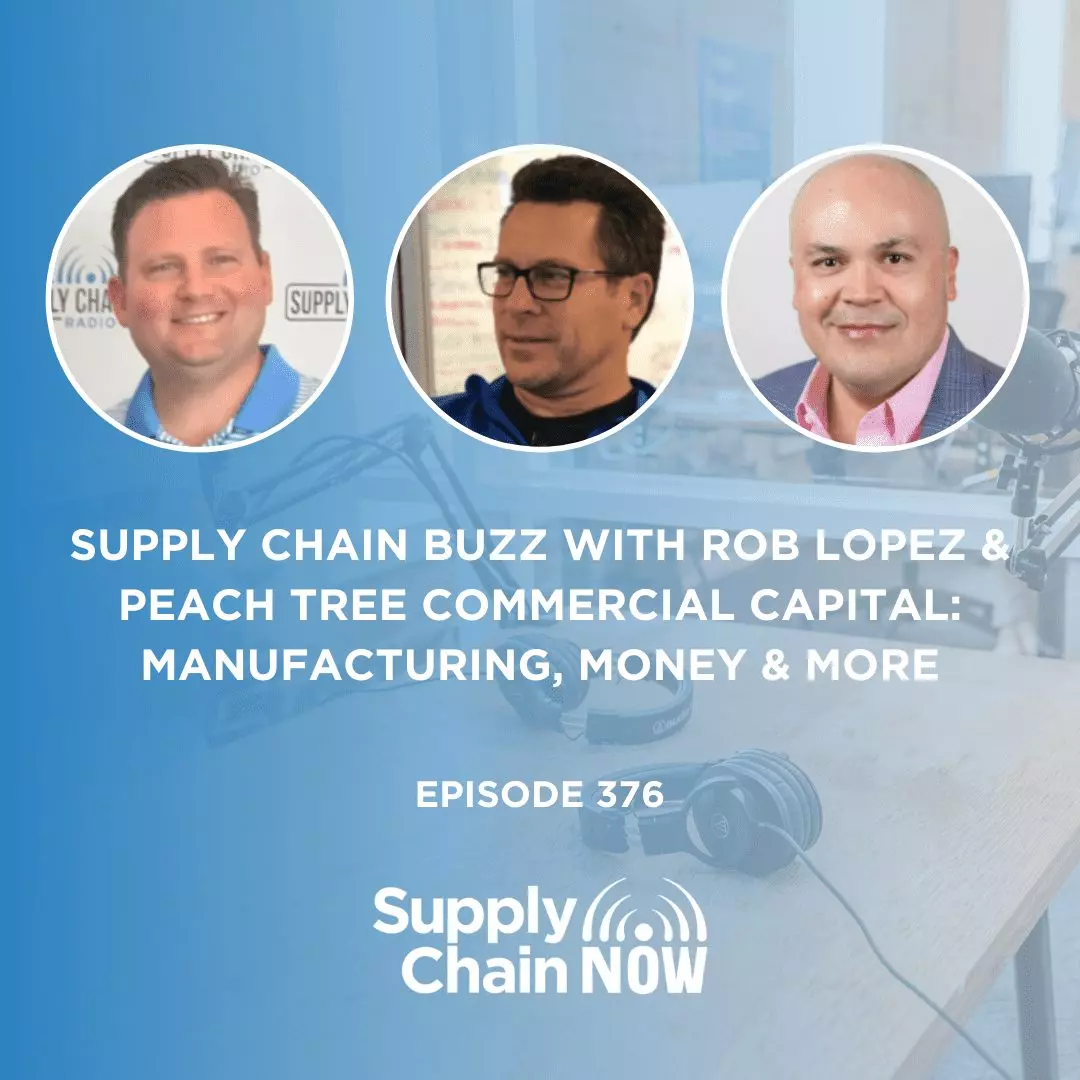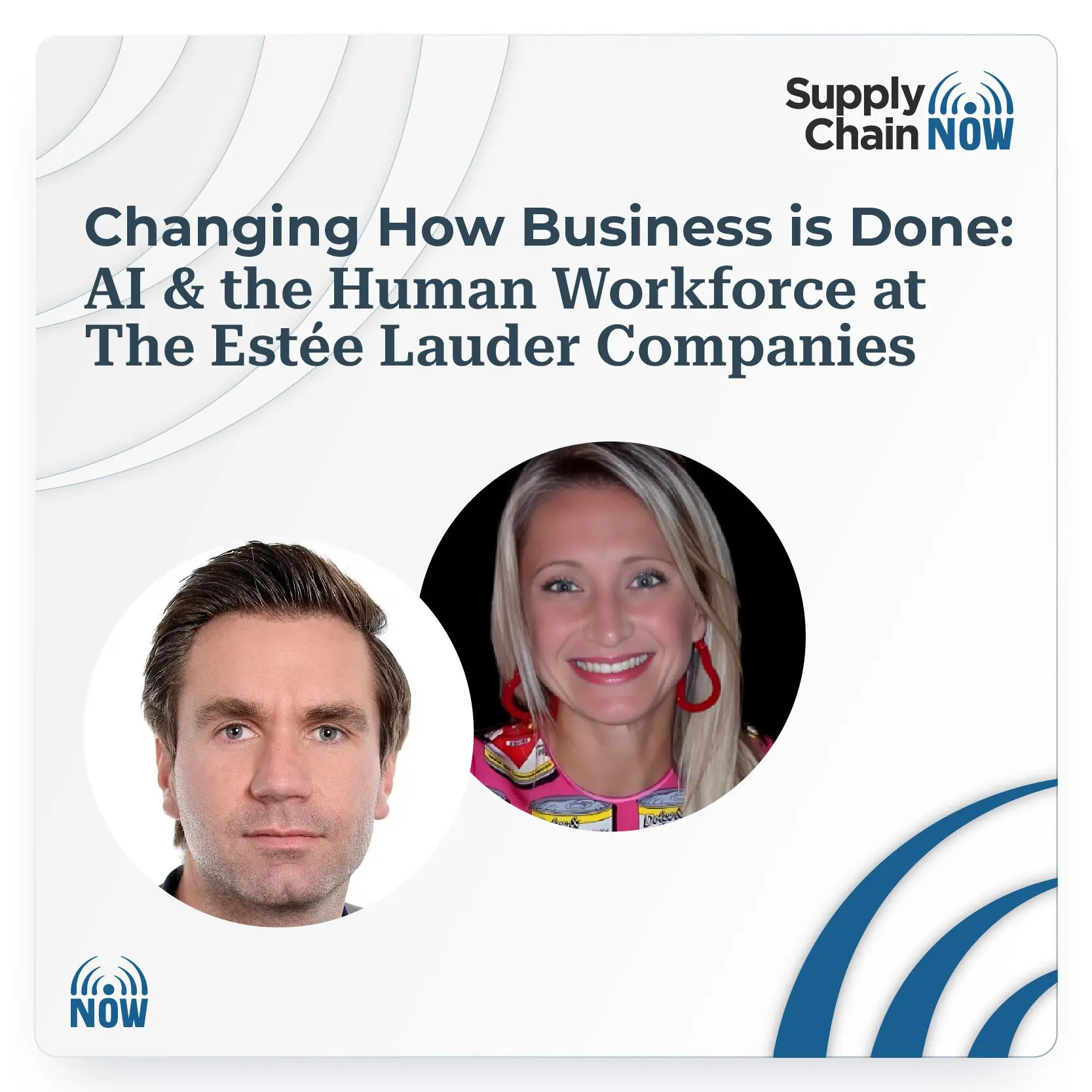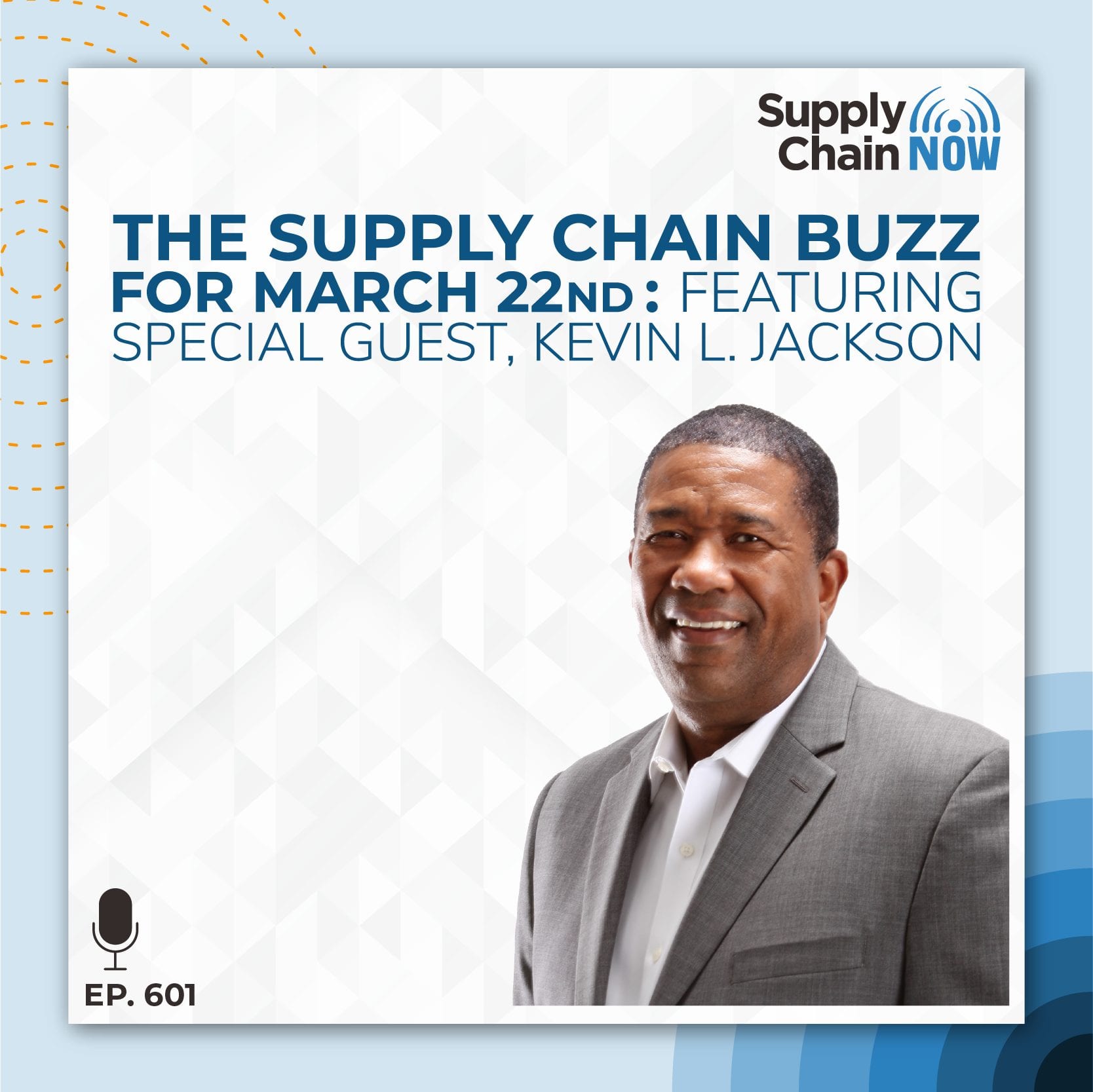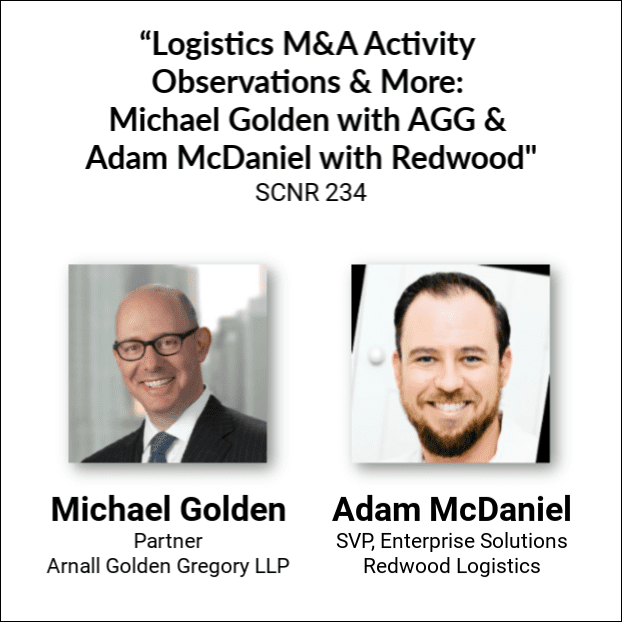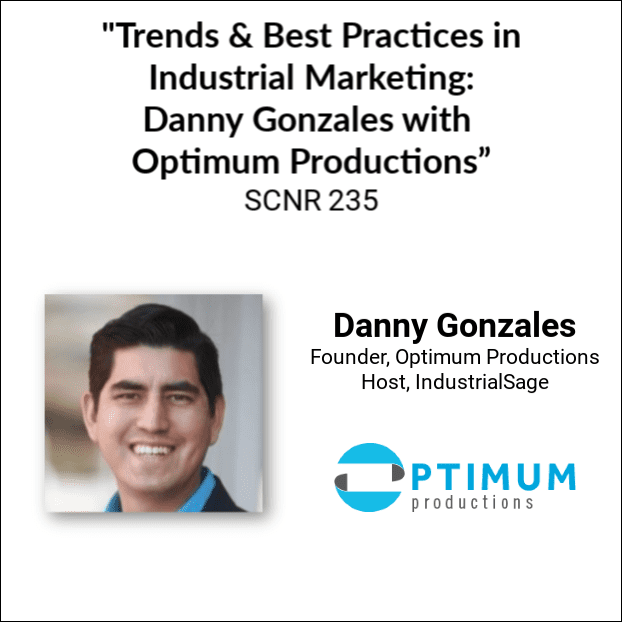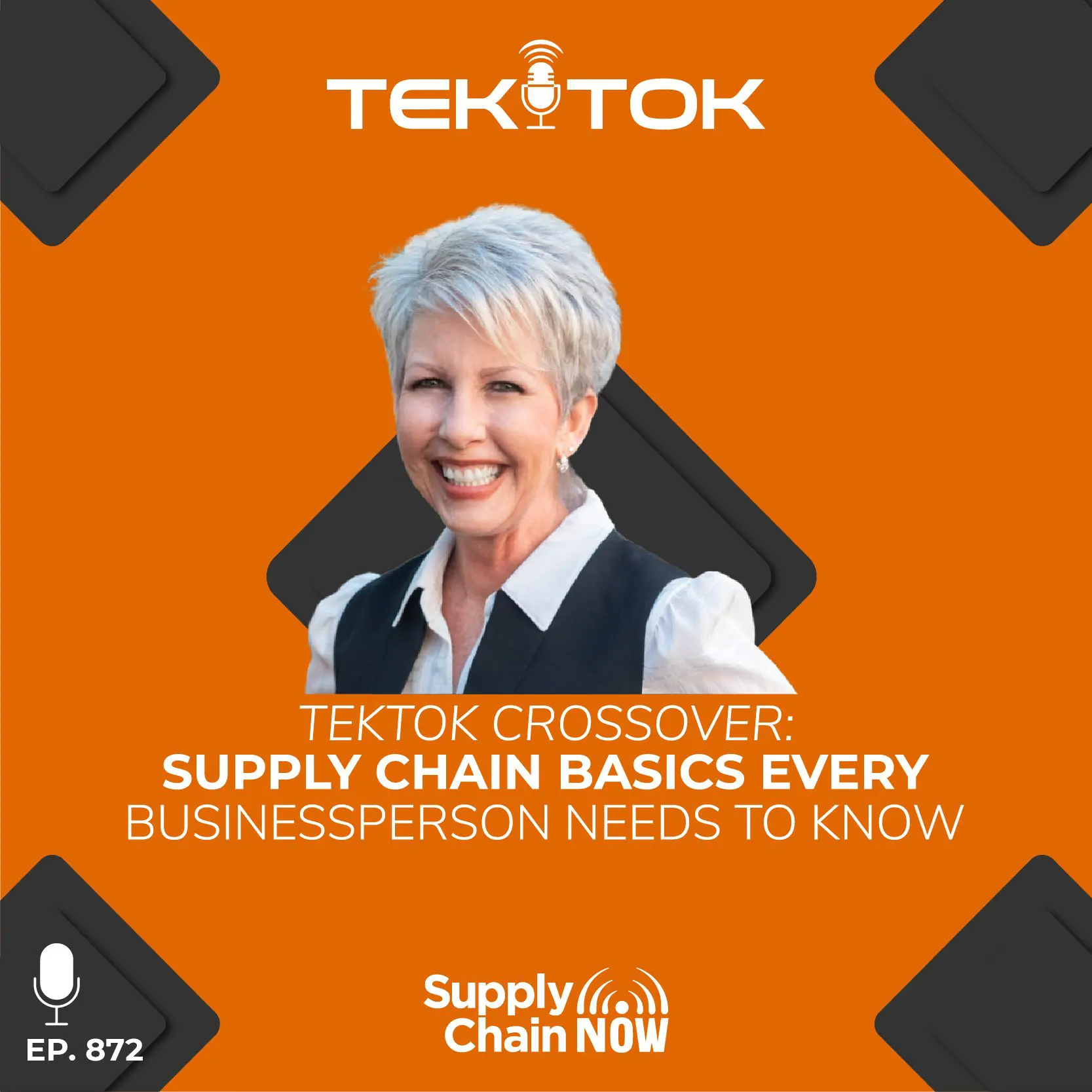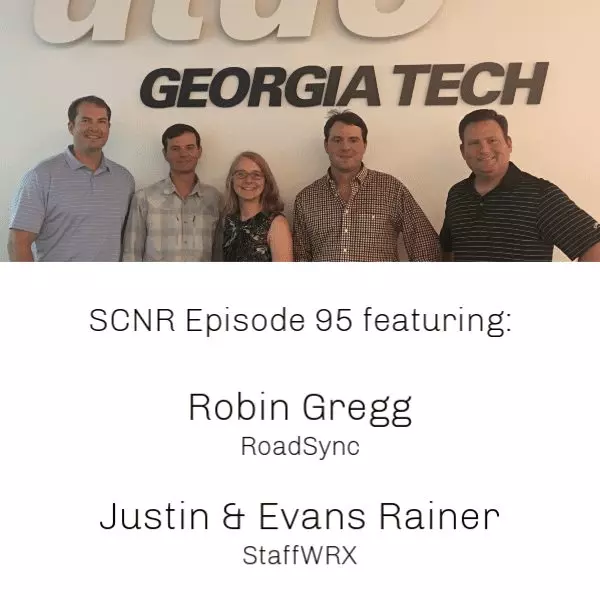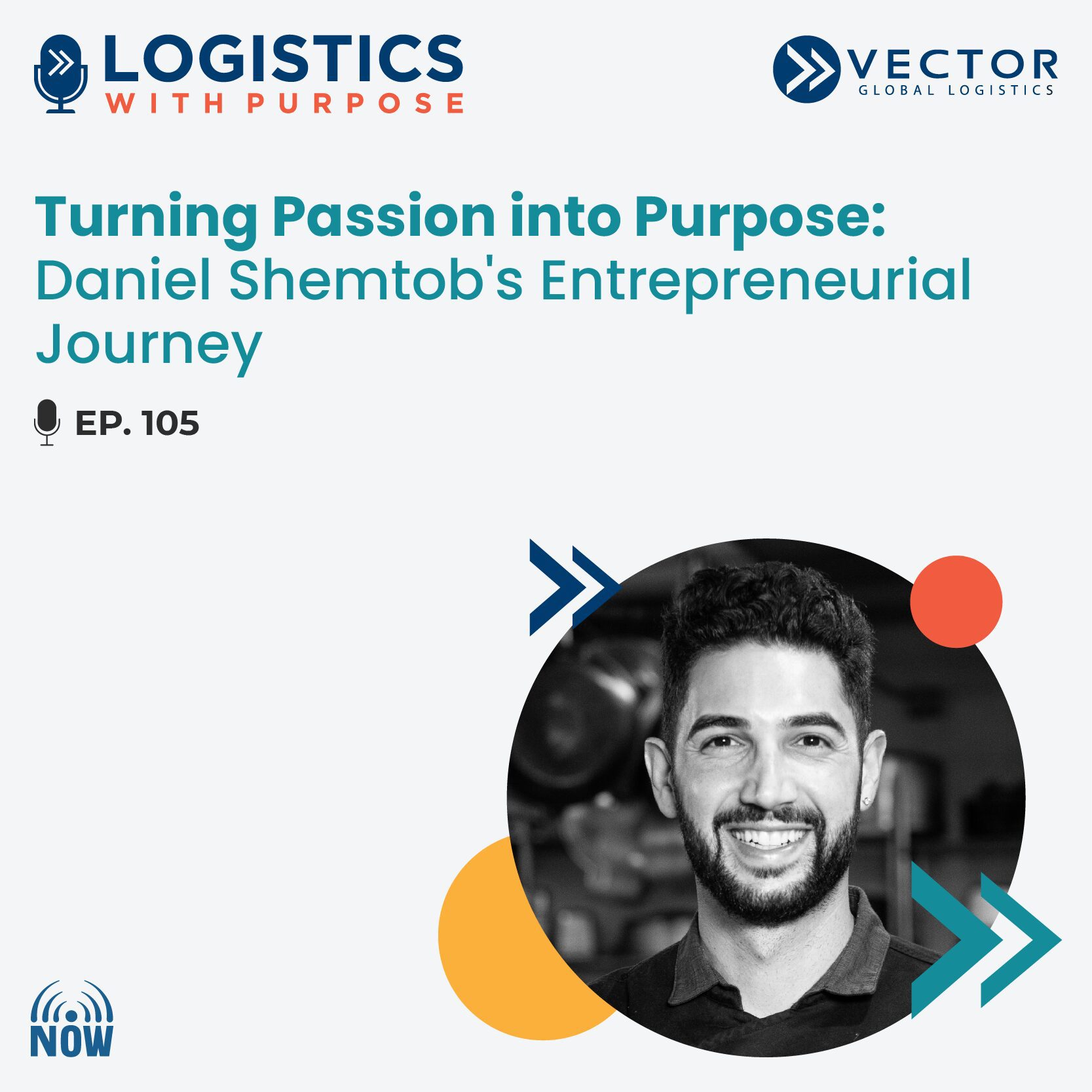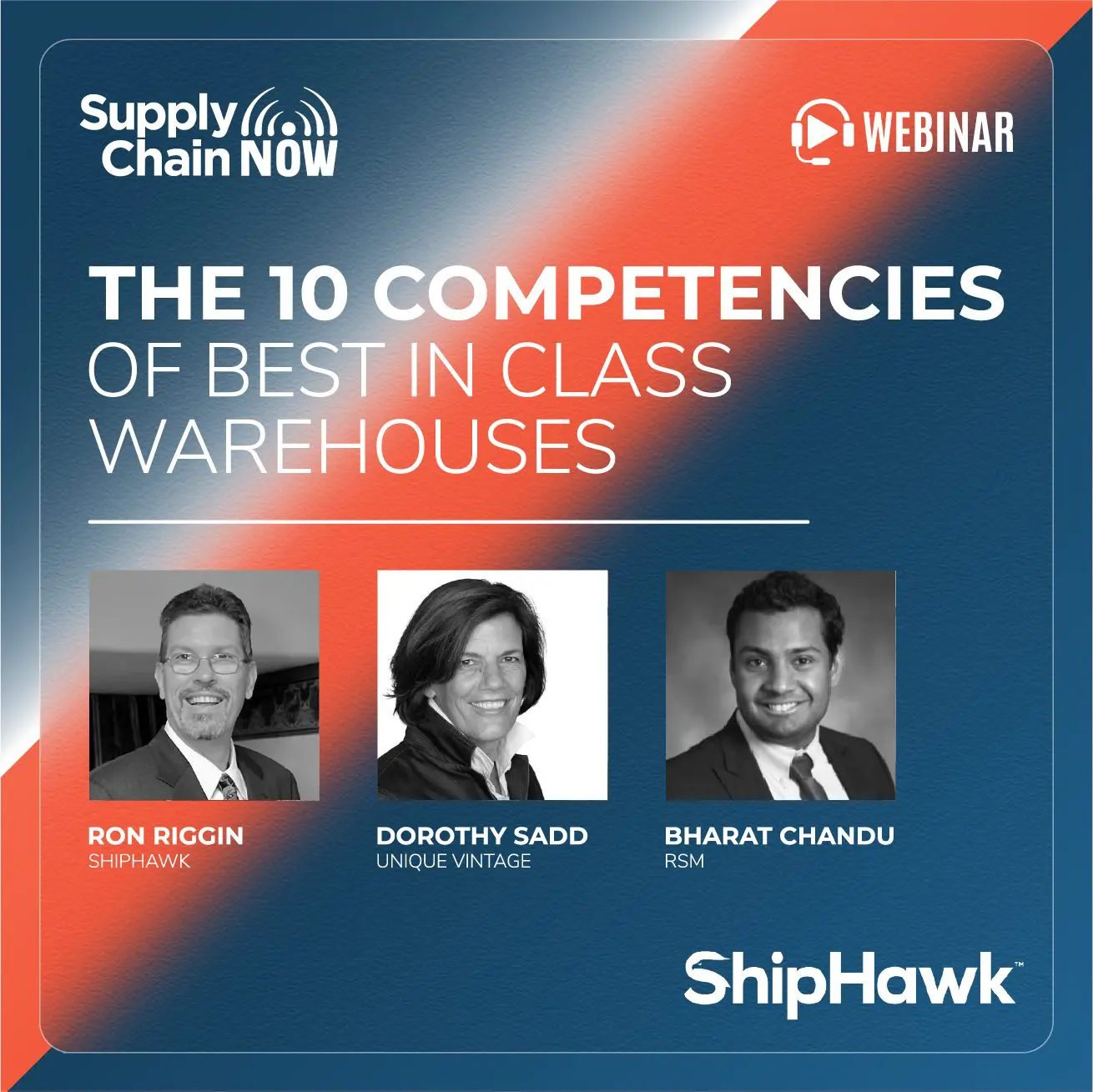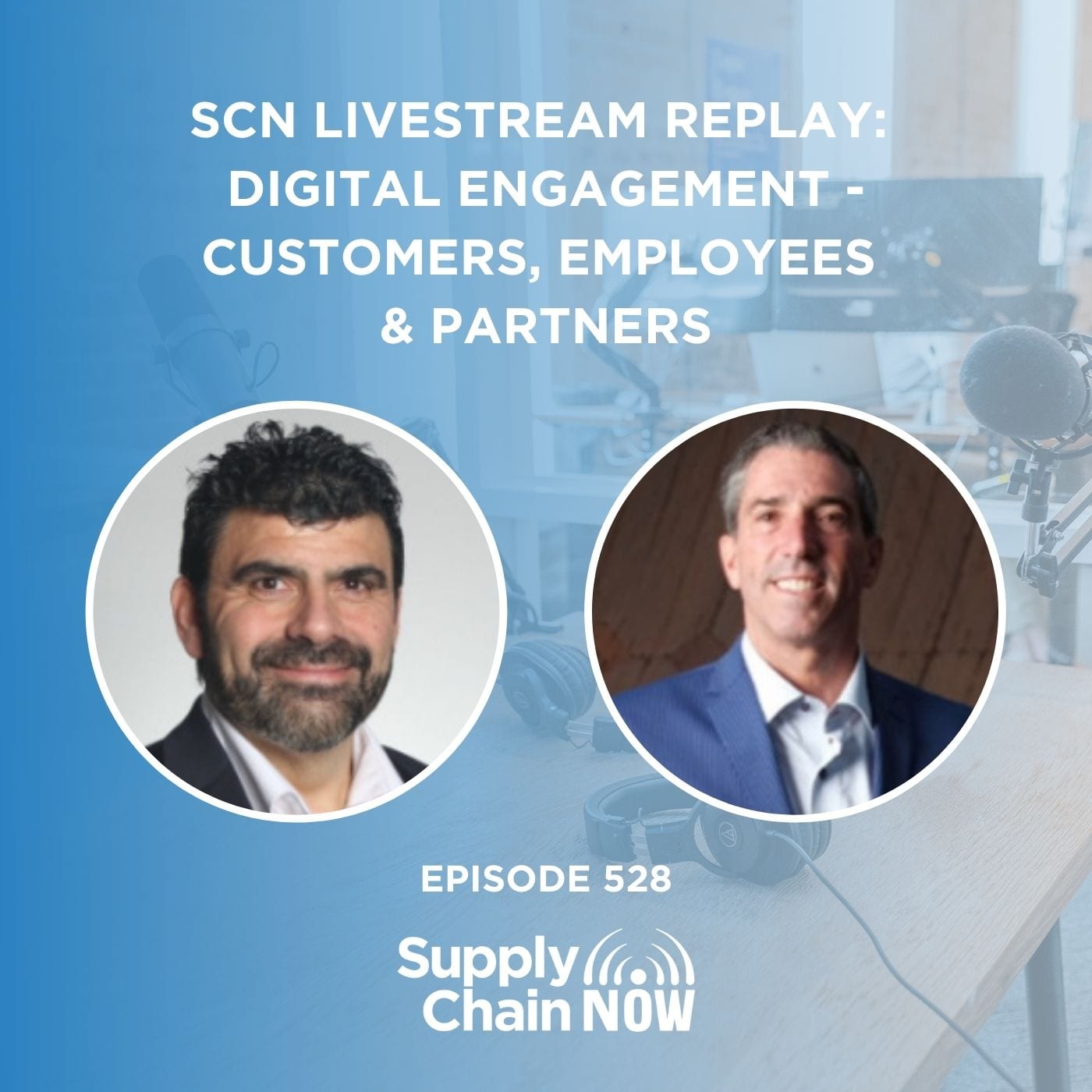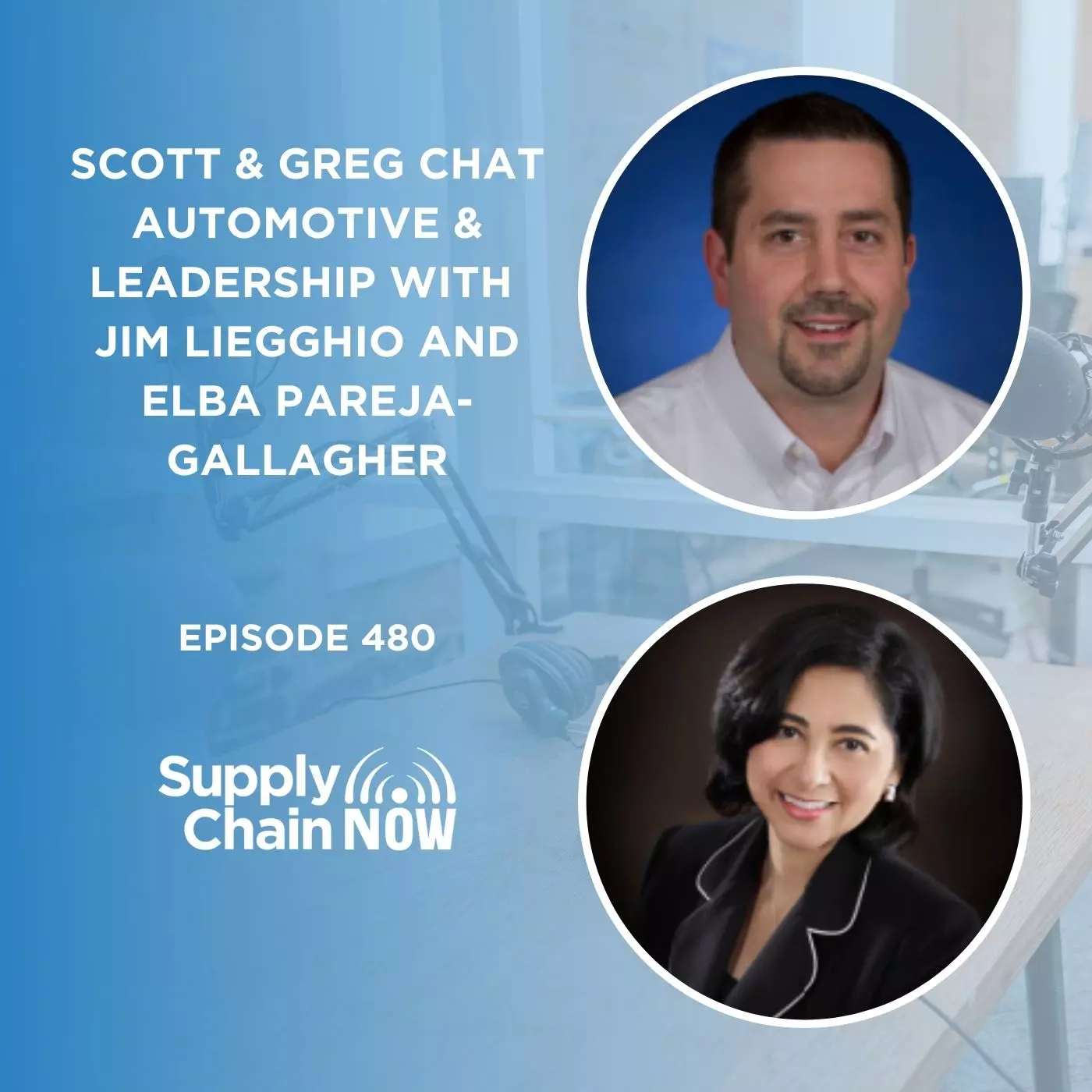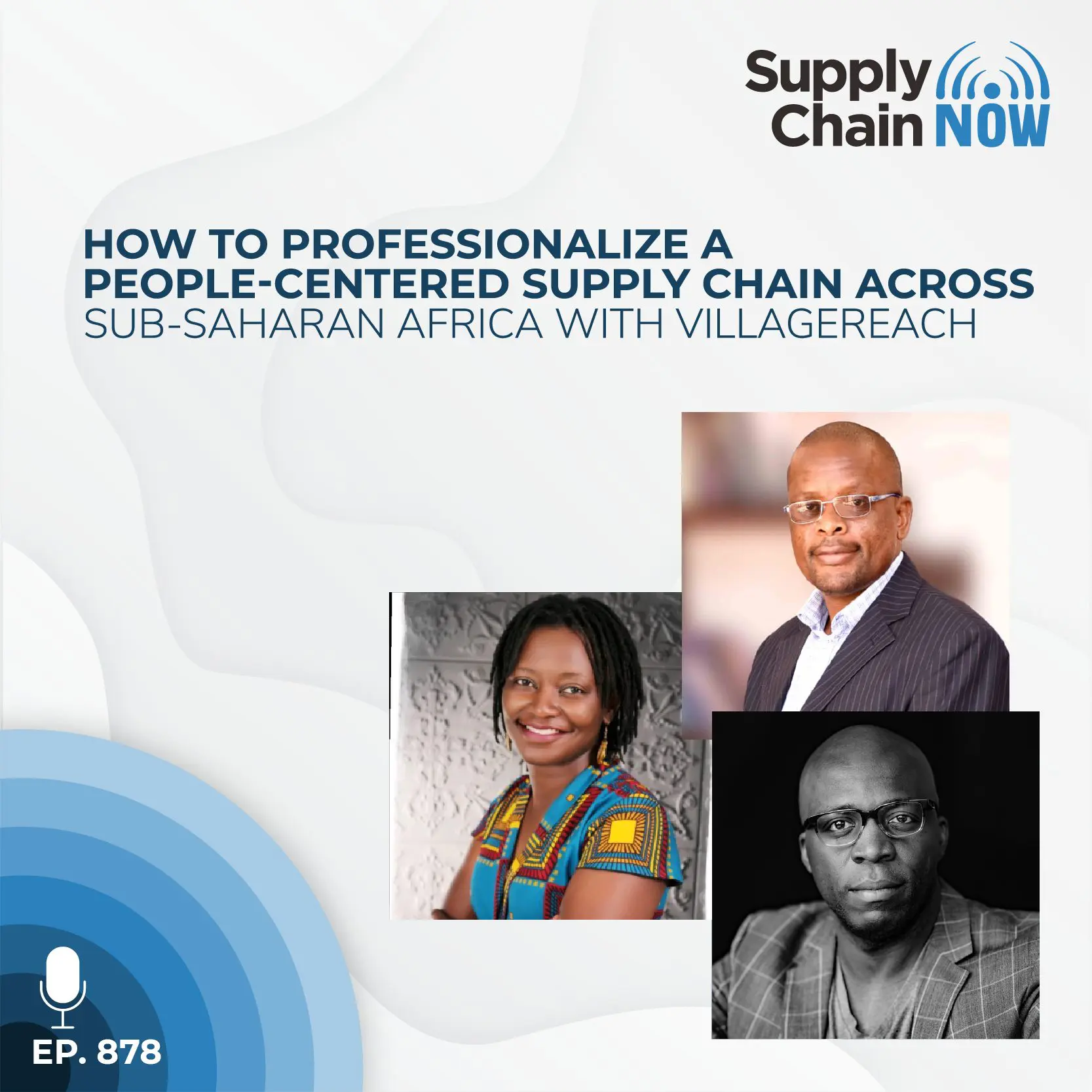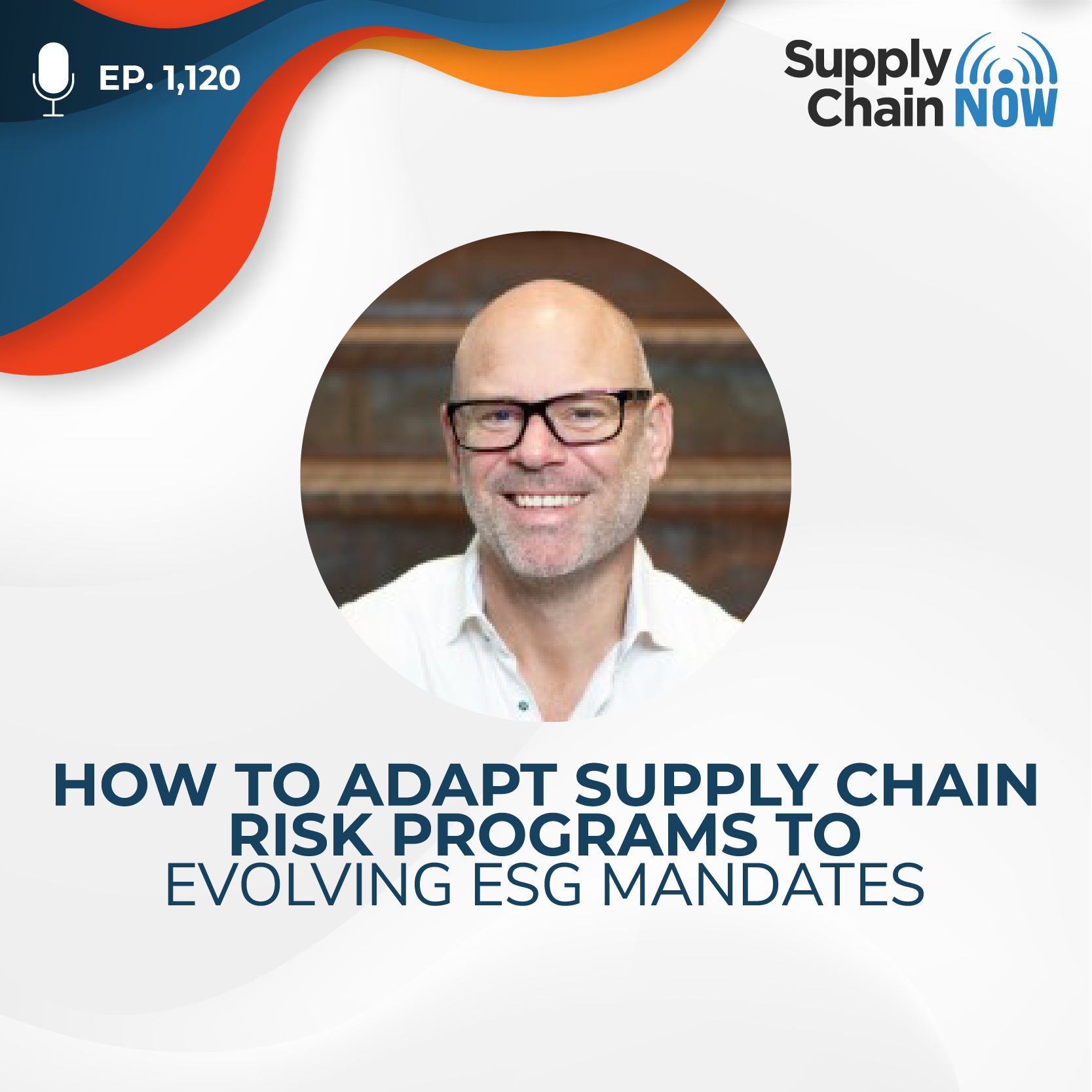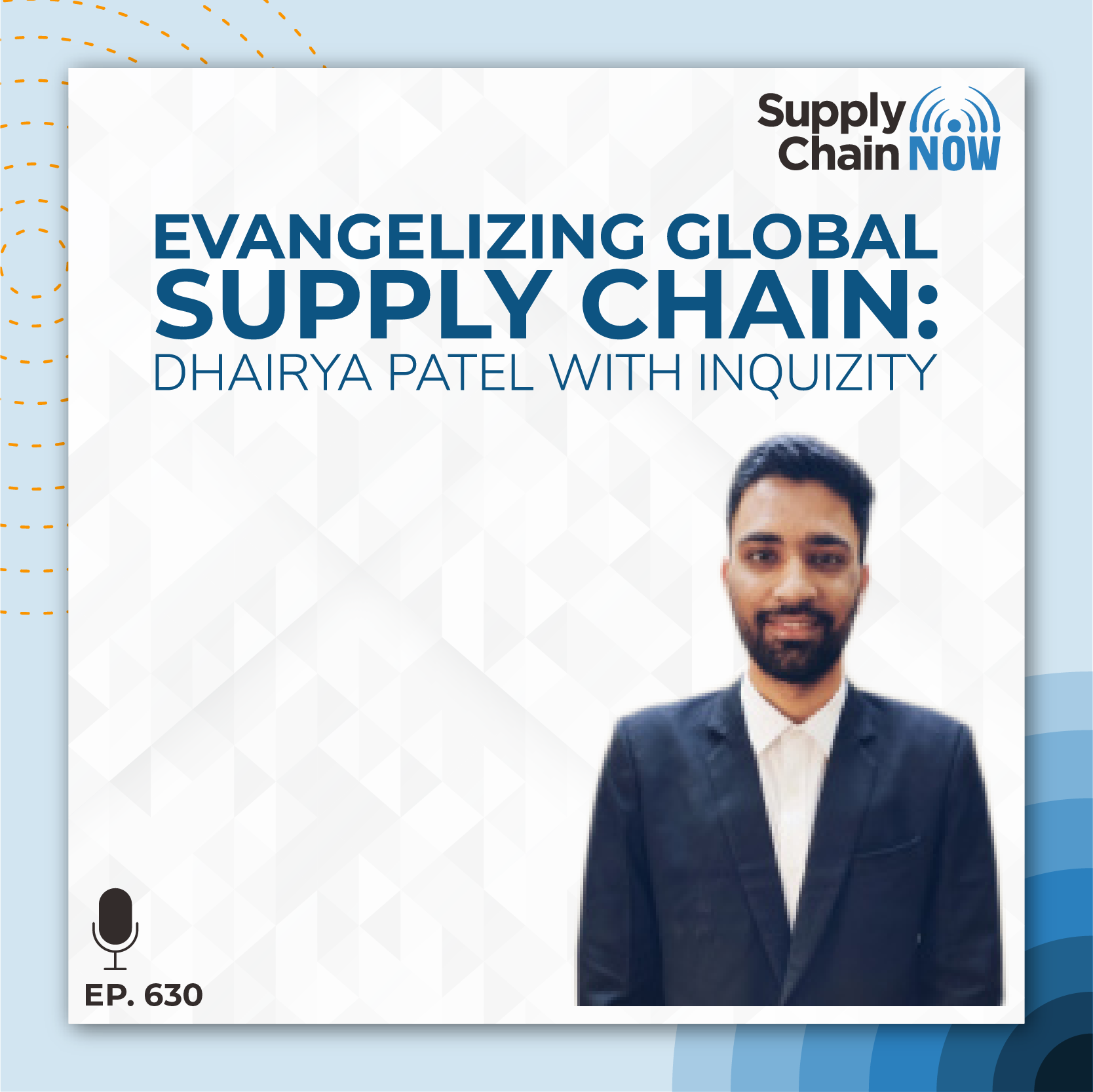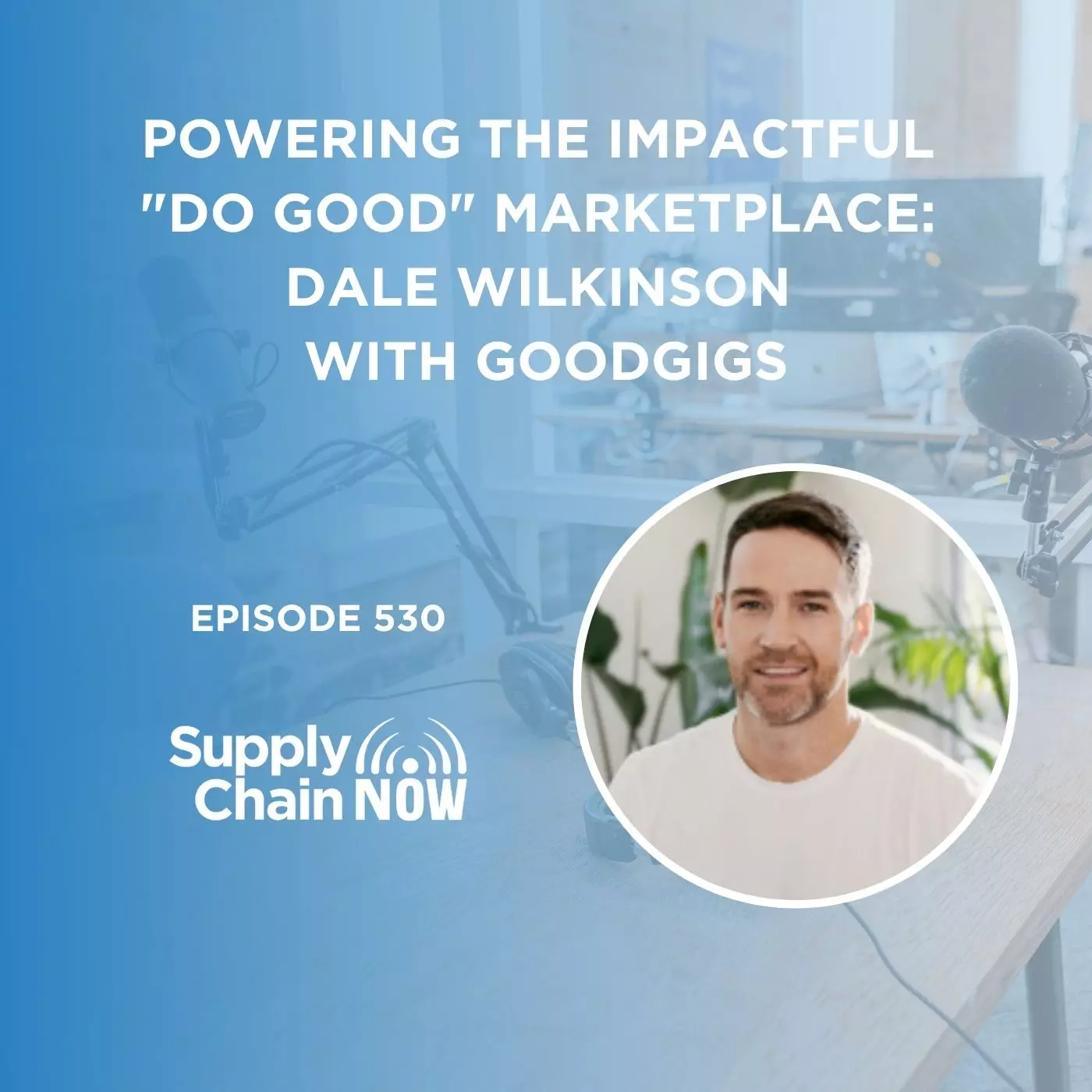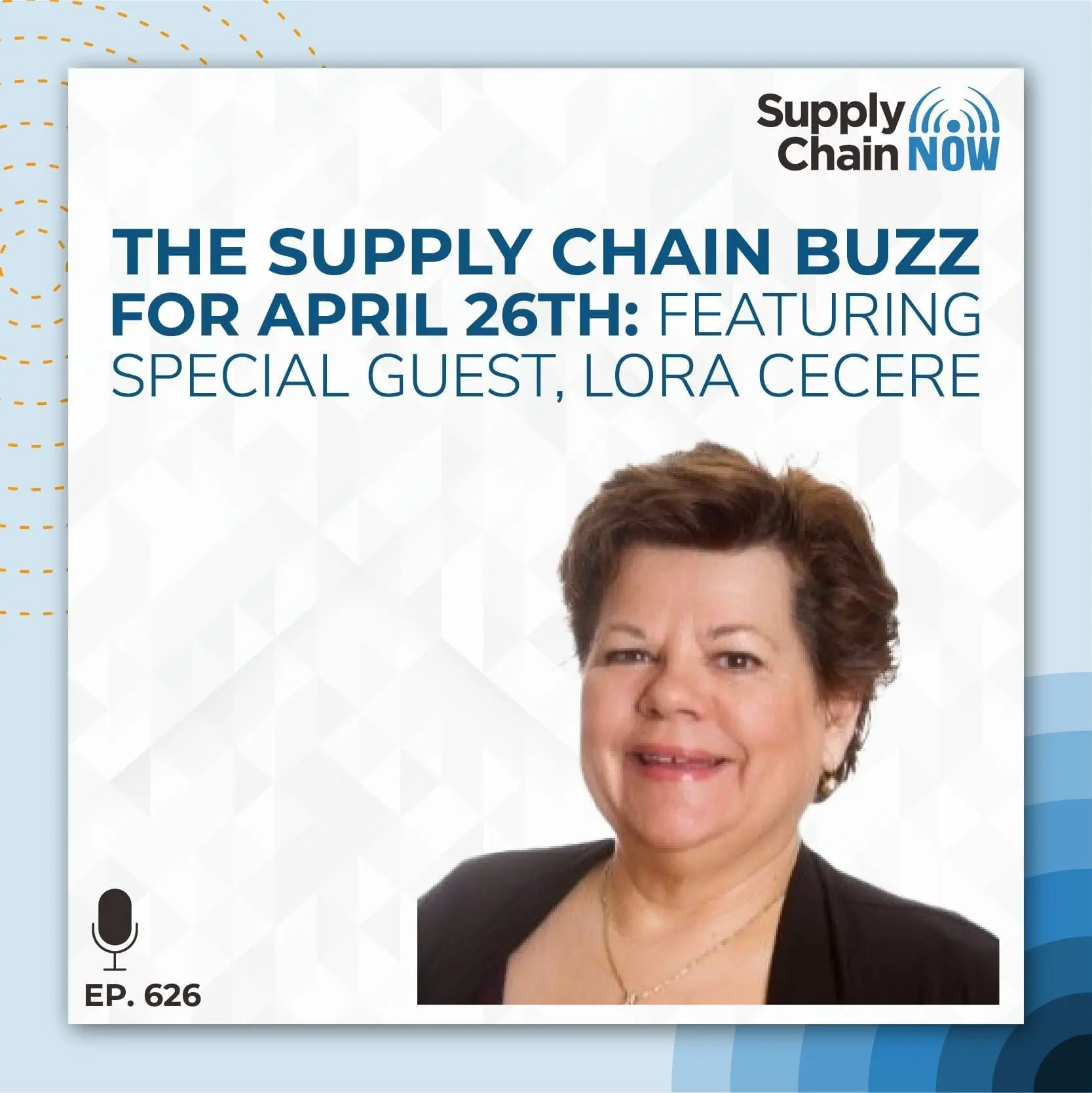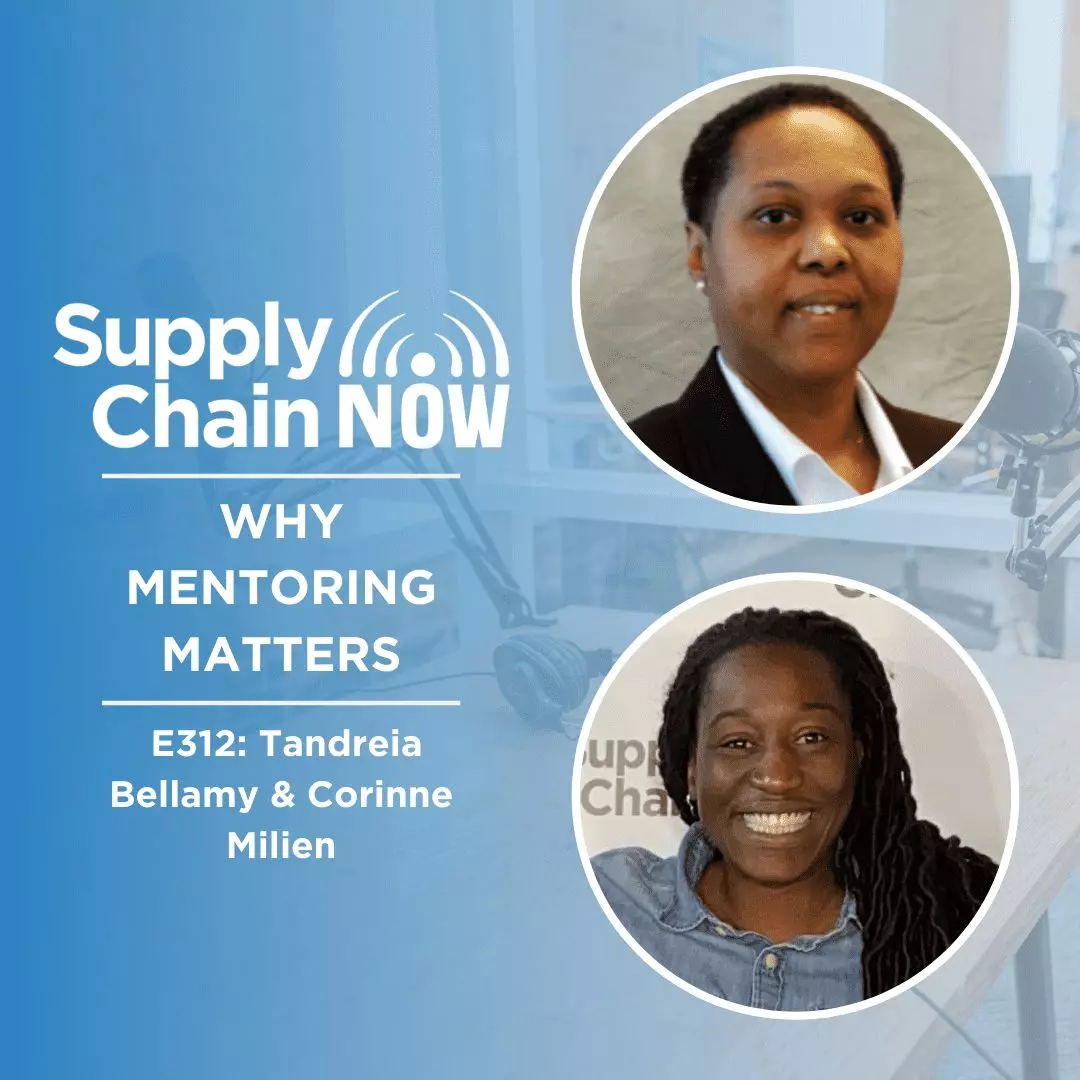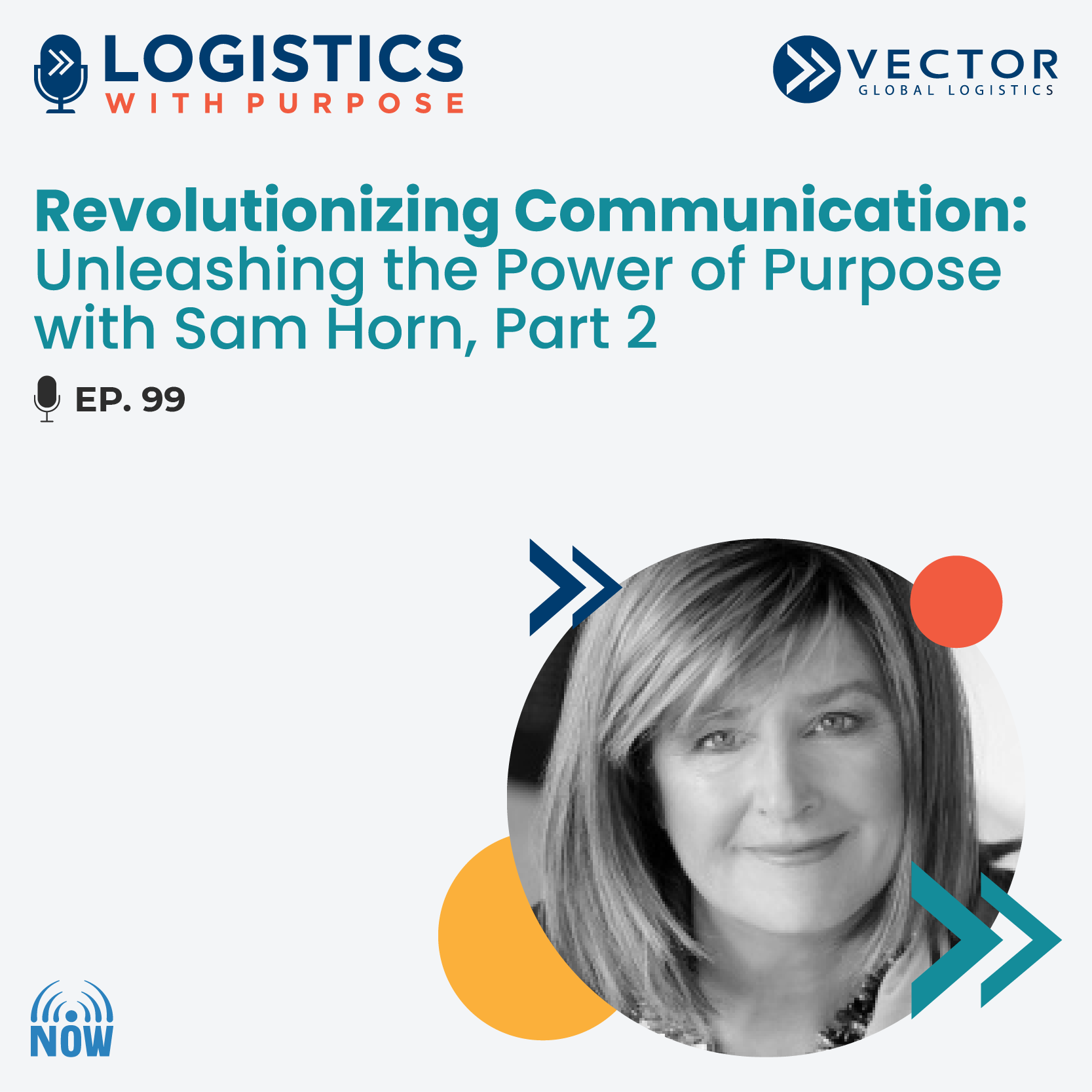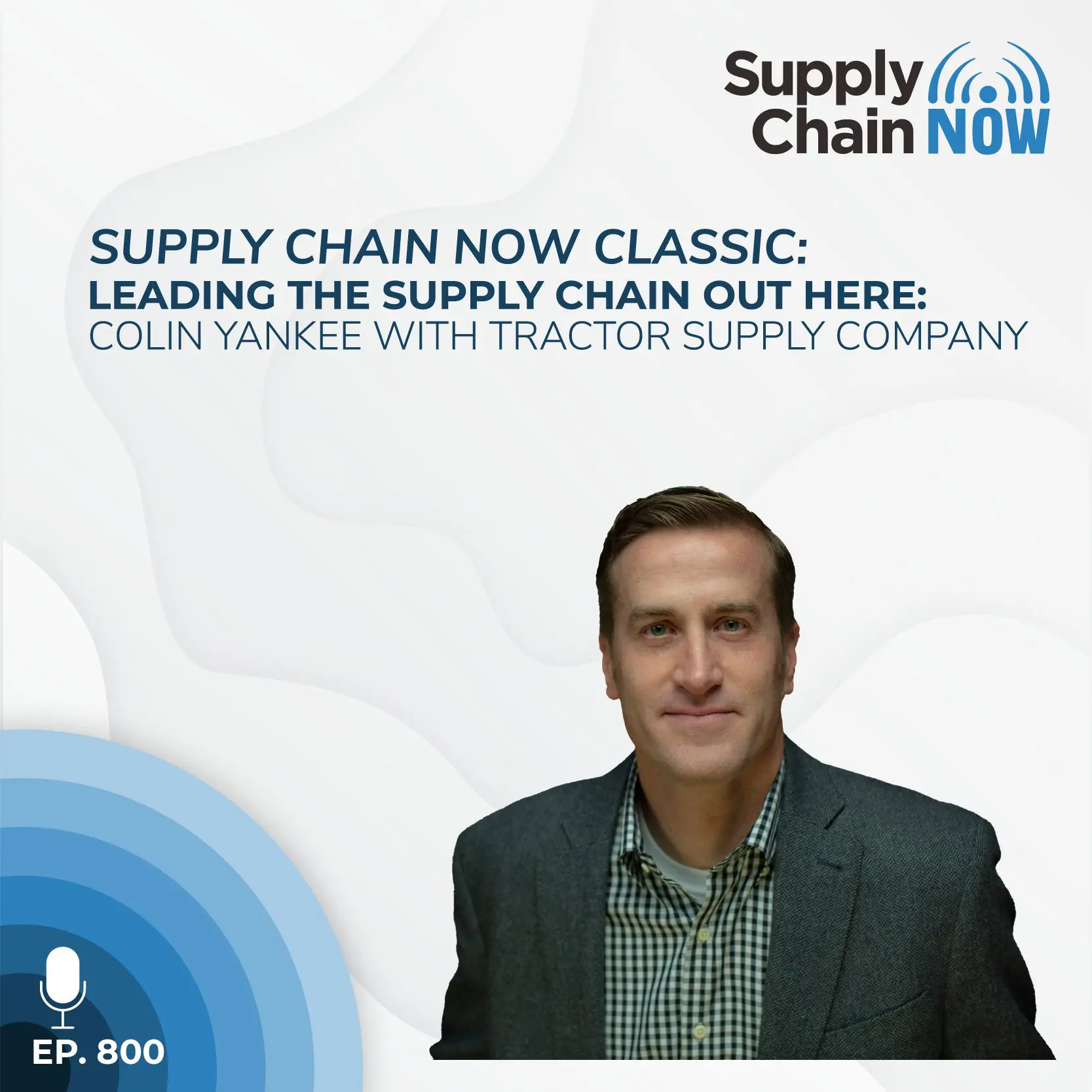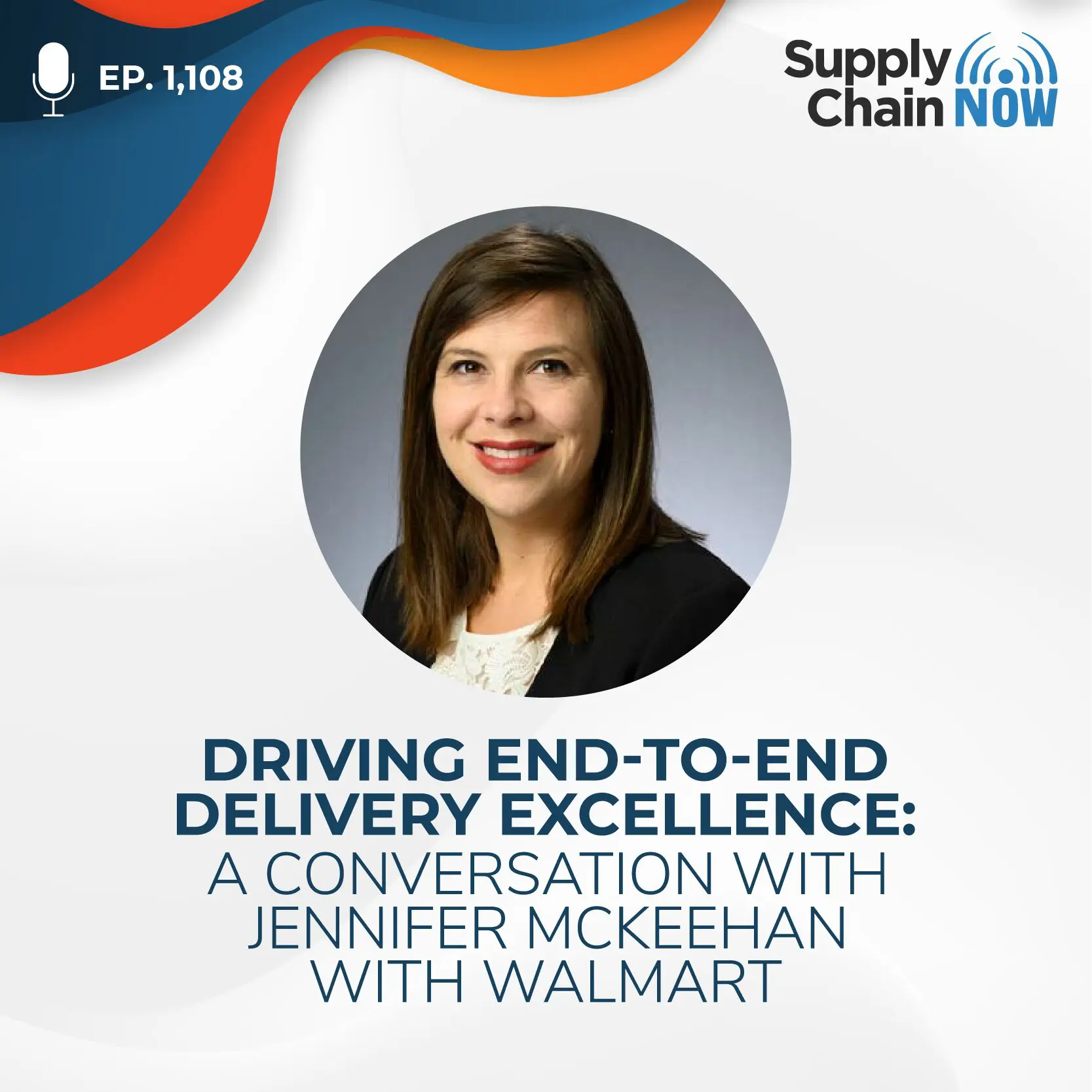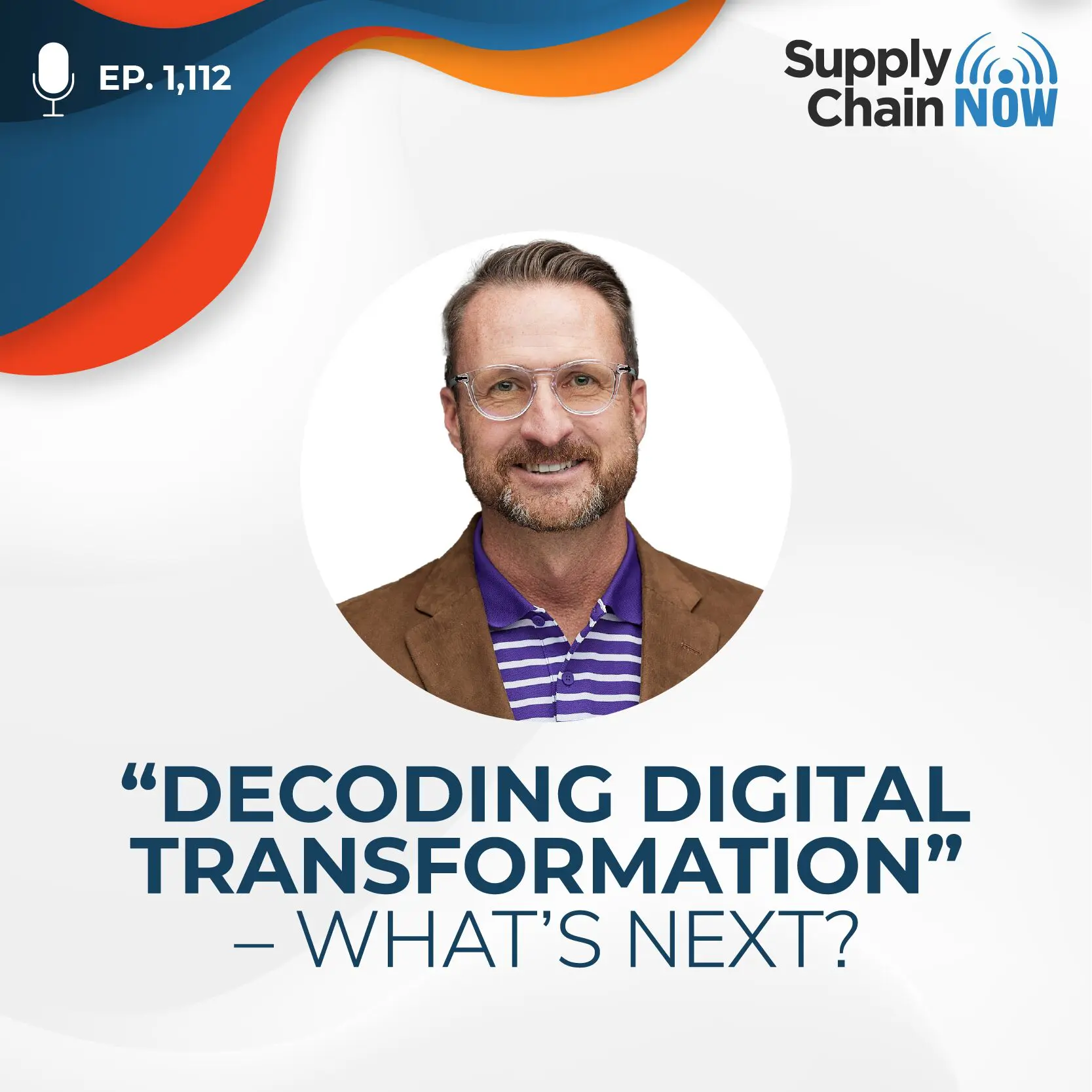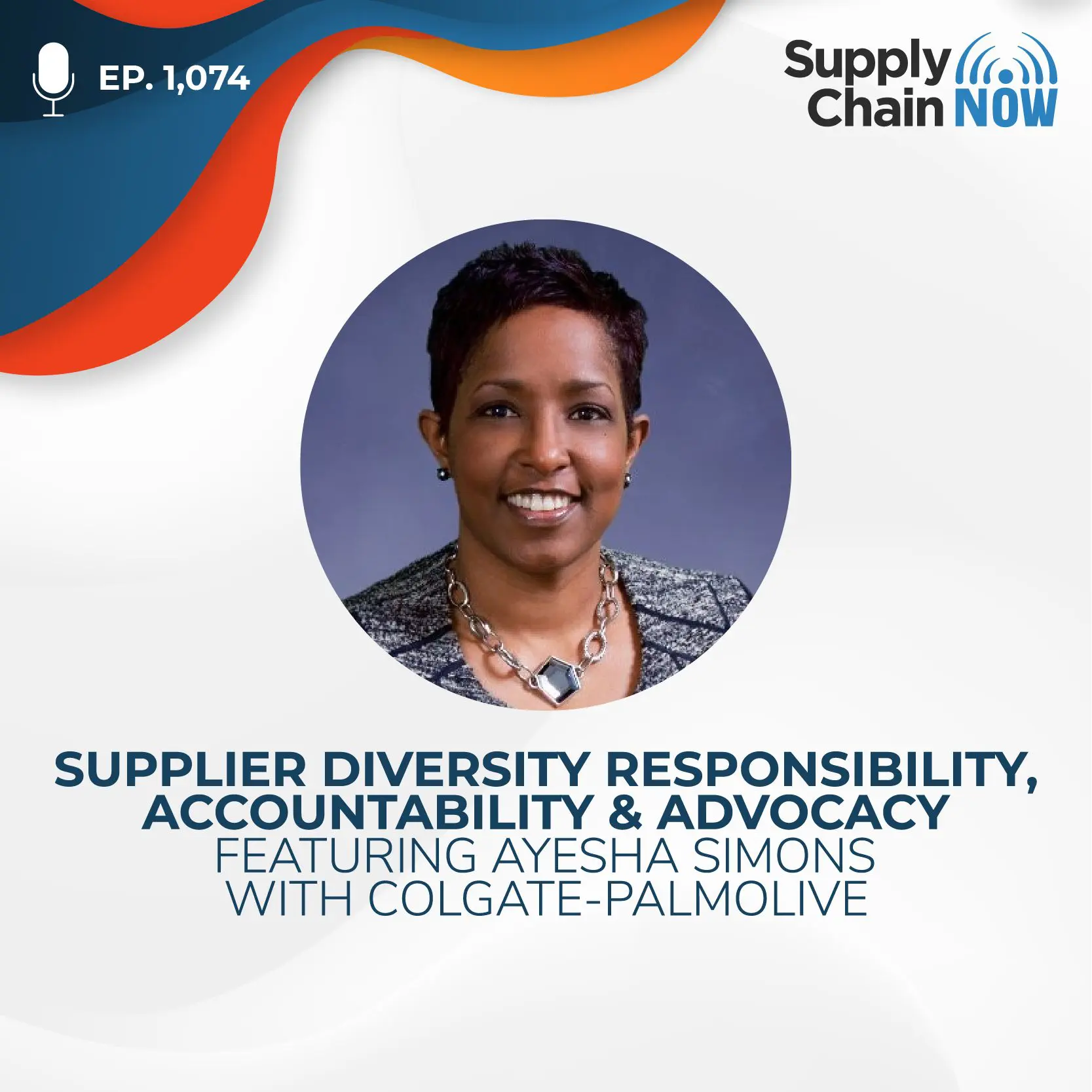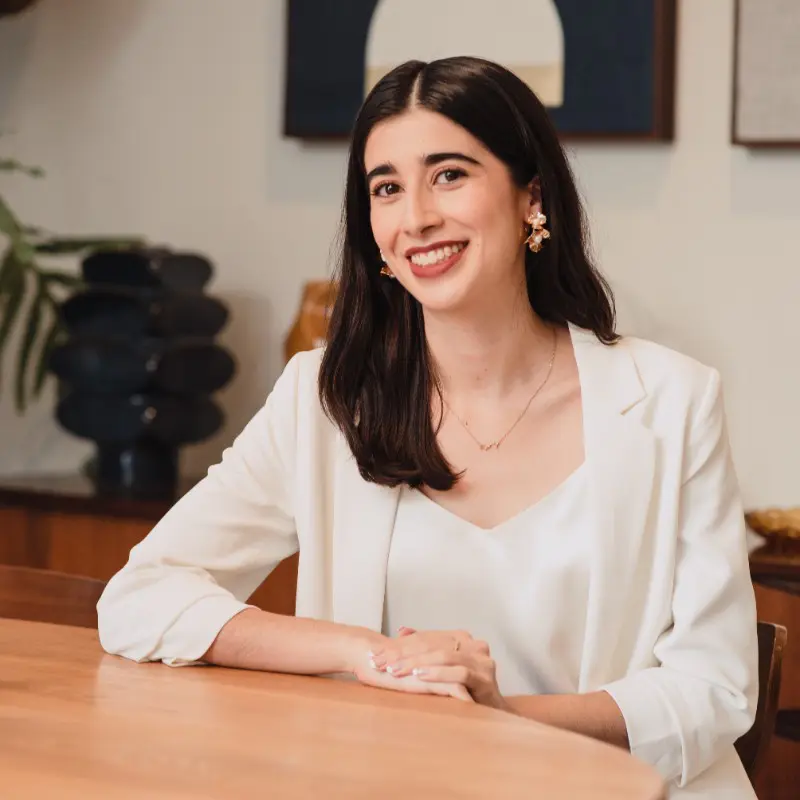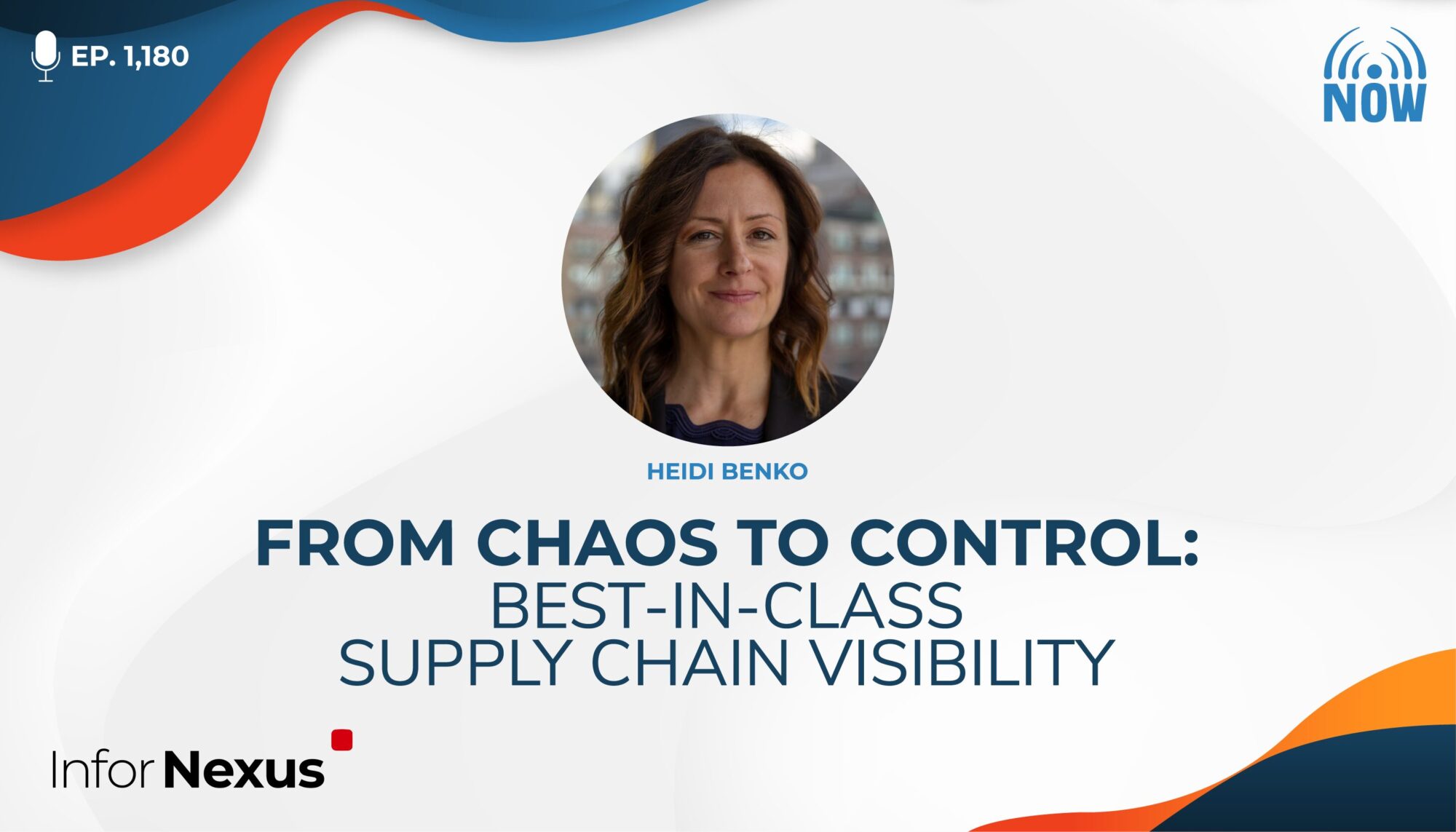
There are still plenty of surprises in global supply chain - that's the nature of the job. But we're able to get more and more proactive thanks to some of the amazing new technologies.
-Heidi Benko
Episode Summary
The last few years of disruption have illuminated the dire need for enhanced visibility, rendering real-time or near-real-time visibility not as a luxury but as an indispensable necessity. Whether it is to proactively navigate today’s constant disruptions or have greater flexibility in meeting customer shifting demand, in today’s fast-paced business environment, supply chain visibility is crucial for success.
In this recent Supply Chain Now livestream, hosts Scott Luton and Constantine Limberakis welcomed Heidi Benko, Vice President, Product Marketing & Strategy with Infor-Nexus, to the show to discuss the importance of understanding the bigger context of supply chain operations and the need for practical solutions.
Listen in and learn more about the significance of contextualization in supply chain management, the role of people driving process, the concept of predictive intelligence, and the need for a holistic approach to supply chain management.
Episode Transcript
Intro/Outro (00:03):
Welcome to Supply Chain Now, the voice of global supply chain. Supply Chain Now focuses on the best in the business for our worldwide audience, the people, the technologies, the best practices, and today’s critical issues, the challenges and opportunities. Stay tuned to hear from those making global business happen right here on Supply Chain Now.
Scott Luton (00:33):
Hey, hey, good morning, good afternoon, good evening, wherever you are. Scott Luton and Constantine Limberakis is here with you on Supply Chain Now. Welcome to today’s live stream. Dino, how you doing today?
Constantine Limberakis (00:44):
I am doing great. How are you, Scott?
Scott Luton (00:46):
I’m wonderful. Back, fresh off, big week of shows, including a great webinar that you and I enjoyed on Tuesday. But, Dino, as you know, we’ve got a big show teed up here today. Are you ready?
Constantine Limberakis (00:58):
I am ready. I was looking forward to this one all week as well, so it’s going to be –
Scott Luton (01:03):
We are too. And hopefully the weather is nice and cool up there in Chicago where you are, huh?
Constantine Limberakis (01:07):
It is. At 5:15 this morning, it was 65 degrees.
Scott Luton (01:11):
Oh, man, that sounds so good. But, hey, speaking of our outstanding conversation teed up here today, we’ll be talking about moving your supply chain organization from chaos to control, peace and calm and serenity, perhaps. All while not only leveraging, Dino, best in class visibility, but the answers and solutions that you need to make it happen. Should be a good one, huh?
Constantine Limberakis (01:37):
Yes.
Scott Luton (01:38):
All right. So, get ready. Not only will you hear from Heidi and Dino and myself, we want to hear from y’all. So drop your comments based on what you hear, your take in the cheap seats or club level seating, whatever we’re calling it here, the grandstand, drop it there. We’ll share that throughout the conversation. So, Dino, you’re ready to get to work?
Constantine Limberakis (01:59):
Absolutely. Let’s do it.
Scott Luton (01:38):
All right. So, I want to welcome in our featured guest today, back by popular demand, Heidi Benko, vice president of Product Marketing and Strategy with Infor Nexus. Hey, hey, Heidi, how you doing?
Heidi Benko (02:13):
Good. How are you?
Scott Luton (02:15):
Doing wonderful. Great to have you back. I was talking just with a team earlier today about the great webinar we enjoyed with you and a colleague or a customer a couple months back. And may we blink and we’re five months from May, huh?
Heidi Benko (02:28):
Can’t believe we’re in October. What [inaudible].
Scott Luton (02:31):
Let’s go. No kidding. We’re at the end of the month here. But, hey, so we got a lot to get into here today. Great to have you back. Dino and I are looking forward to a great conversation. But we’re going to start with a little fun warmup question. So I want to start with this one. This is going to take some folks back, I think. So back on this date, back in 1997, the Apple, the company that we all know and love, well, it was in a much different place. The company really was floundering and had just brought back the legendary Steve Jobs as interim CEO. And on September 28, 1997, the company kicked off that infamous, that famous iconic “Think different” ad campaign. I can still remember some of the ads and, of course, some magazine print ads and whatnot. That whole campaign really signaled a wildly new, successful chapter for the company and really led to a big resurgence. And Apple really started to become the Apple that we all know and love today. So, Heidi, with that as a backdrop, I might be a bit of a commercial nerd, I don’t know, but with that as a backdrop, what’s one of your favorite all-time ads?
Heidi Benko (03:33):
There’s so many, but it’s funny, we were just talking about Apple and I just, I don’t know if you’ve seen the new Apple commercial actually –
Scott Luton (03:38):
Yes.
Heidi Benko (03:39):
With [03:39] because that’s been sticking with me maybe ‘cause I just saw it, but I also thought it was pretty powerful, right? So that one I thought, I mean it obviously so relevant time, but, you know, they do, Apple does really differentiated ads that really make you think, whether it’s, you know, I’m a Mac, right? It’s a good one, or just this latest one. So definitely.
Scott Luton (04:00):
I’m with you, Heidi, and that commercial you’re talking about, I think that’s where the latest iPhone is, like, moving through spaces from deep part of the universe and landing here on earth. Right?
Heidi Benko (04:10):
I don’t – I just – it’s Mother Nature comes in and is doing her annual review of how are we doing. Sustainability.
Scott Luton (04:18):
Okay.
Heidi Benko (04:19):
It’s really, and they’re all like, okay.
Scott Luton (04:23):
All right. I’m going to add that.
Heidi Benko (04:25):
Questioning. That I’ll give you – I’ll send it to you. It’s pretty – what is Apple doing to improve the planet? It’s pretty great. Yeah.
Scott Luton (04:31):
Oh, I love that. I’m going to check that out. All right. So that’s a good one and that it’s one that’s not on my radar but it is now. So, Constantine, that’s going to be tough to top. What’s one of your favorite all-time ads?
Constantine Limberakis (04:40):
I would’ve to say in the late ‘70s when I was a big Pittsburgh Steeler fan, Iron Curtain, you had Mean Joe Greene giving that kid his shirt after he – and then he gave him a Coke and he gave him his shirt. I mean, that’s classic, right? We need more of that so, and I love – I always loved that commercial ’cause I was a big Steelers’ fan.
Scott Luton (05:01):
Oh, such a great one, such a great one. And, of course, in the pre-show, Heidi and Dino, we were talking about the other famous Coca-Cola company commercial, “If I could teach the world to sing.” But it sounds a lot better than that. So I’ll let folks Google that, YouTube that and search it up as my middle daughter would say. Okay. So we’ve got a ton to get into. We got a lot of folks with us. Shineo, Tony, John, of course, Catherine. Big thanks to Catherine and Amanda behind the scenes helping make it happen. Mark, Leticia. Welcome, everybody, looking forward to getting your – y’all to weigh in on what you hear today. So, Heidi, I want to start, you know, context is so important. We don’t get enough of it in this fast moving world that we all live in. So I want to start with a little context. So you’ve been helping companies transform their supply chains for over 20 years. We’ve got that 20 year, we don’t break that rule. But for over 20 years, right, so tell us a little about that.
Heidi Benko (05:54):
Yeah. What’s the rule in 20 years? Like, you stop counting there.
Scott Luton (05:57):
Yes. Yes. You got it.
Heidi Benko (06:00):
[Inaudible]. That’s good. Thank you for that.
Scott Luton (06:02):
You bet. We all – hey, we all got to – I – we got your back. We all got to have each other’s back. But you’ve been moving mountains for quite some time, huh?
Heidi Benko (06:09):
Yes. Yeah. No. So definitely, you know, I’ve been with in Infor Nexus for, you know, 20-ish years, which has been great and obviously been here ’cause there’s just so much going on, supply chains and helping companies. So, you know, me personally, my role back and forth, product management, product, you know, marketing and strategy and building the solutions that help our customers, and what Infor Nexus is, is, you know, basically we’re a multi-enterprise supply chain network, right? We connect companies or supply chain partners. Supply chains are multiple companies, right? There’s how do you deal with your suppliers, contract manufacturers, forwarders, carriers. That’s how we connect supply chains really to manage those processes. So, you know, today we’re talking about visibility. Visibility is a key component, but it’s more than just seeing, right? So, you know, what we do is we connect companies through supply chains to really manage those external processes. How do I coordinate my shipments? How do I, you know, confirm my purchase orders? How do we manage the invoicing process? How do we manage tracking all those shipments, planning freight, all of that, really. So, connecting couple of their supply chain partners to enable visibility to all parties as well as collaboration and executing those processes, which is really key from going – from chaos to control. It’s not just seeing, but what can you do about it. Right?
Scott Luton (07:27):
Love that. And, you know, Constantine, what, as Heidi was describing all of that, and a lot of folks know about Infor Nexus, of course, that was for the two or three people that may not know. But the thought that comes to my mind is that ecosystem, right? Creating the information and the connection so that any company’s ecosystem can be successful and be synced up. What came to your mind, Dino?
Constantine Limberakis (07:49):
Well, of course, you know, this isn’t something that happened yesterday. I mean, Infor has been doing this over the course of its history and building these tools and as technologies have gotten better and orchestrated together as part of the platform that they offer. It’s just amazing what you can do with technology now and having all that data in one place. So, it’s a testament to the platform concept of, you know, having many of these different solution sets together under one brand. Right?
Scott Luton (08:15):
That’s right. Well said, well said. And it really is, you know, amazing throwing around a lot, but it is really amazing. We’ve come this far, you know. Yesterday we were talking with a big soft drink company and they were talking about the 96 Olympics. Can you imagine what visibility was for supply chain pros in the 96 Olympics? I mean, a much different world, right? All right. One other quick comment. Angie McDaniel, great to have you from Lyons, Georgia. I’m going to have to go look up where Lyons, Georgia is. It’s great to see you, Angie. And, folks, let us know where you’re tuned in from. All right. So now let’s keep level setting a little bit more. So, Heidi, from your perspective, you know, y’all work with a lot of movers and shakers. You got your finger on the pulse. What’s going on out in the industry and what are some of the disruptions that you see business leaders really struggling with right now?
Heidi Benko (08:56):
Yep. And I think we talked in May, right? I think a lot of it’s still the same. Companies are still struggling both with the macro and the micro disruptions, right? I mean, constantly you hear in the news: port strikes, labor issues, still dealing with material shortages. Now, we’ve got, you know, the Panama Canal. What are those weather impacts? All those different impacts and how do companies basically see and react to what’s going on there. So, it’s just ongoing. Maybe the levels dialed out a little bit on some of the chaos, but companies are still, every day is about what’s happening in my supply chain, what do I need to do about it, right? So, you know, it’s just kind of ongoing. This is how people need to function now. And I think, you know, companies still are trying to figure out the best way to get that control, make it so it’s not so reactive and it’s going to be somewhat reactive, but –
Scott Luton (09:46):
Right.
Heidi Benko (09:45):
It’s [inaudible].
Scott Luton (09:47):
Well, you know, because whether we like it or not, there’s still plenty of surprises in global supply chain. That’s the nature of the job. You know, we’re getting more and more proactive, thanks to some of the amazing technology and data capabilities that platforms like Infor Nexus offers out there. But, Dino, we got to embrace – well, there’s a phrase around here, I don’t know about y’all, if y’all heard this – embrace the suck. There’s a part of it that just goes with global supply chain, is that right, Dino?
Constantine Limberakis (10:15):
Yes. It’s an odd phrase, but yes. Yeah.
Scott Luton (10:16):
And what she describes, is that kind of what you’re seeing out there?
Constantine Limberakis (10:19):
Yeah, absolutely. I mean, I think those things are spot on. In addition, I think one of the challenges companies are still continuing to do is a lot of times you have these lagging indicators where you’re looking at historic data and you’re saying, “Okay, these are the things that are going on,” but the leading indicators where one of the other big challenges is coming in is to saying, how do I best predict and what tools and what data do I want to use to best predict? And that’s not something that’s just very easily done. And so, with some of the new things around generative AI and other applications, that’s going to even become much more of the mainstay. So it’s looking at the history but then also predicting more accurately. This is what companies are trying to struggle with.
Heidi Benko (11:00):
And that is very true for many things. We have the data intelligence to kind of get ahead of things, but then there’s always new things popping up as well, right? So, we have companies dealing with, you know, UFLPA customs holds, right? Like all of a sudden like, “Whoa, how do I get ahold of my supply chain?” So there’s always kind of something new, too, you can’t plan for –
Scott Luton (11:20):
Always.
Heidi Benko (11:20):
But you need to make sure you know what’s going on, get that, you know, visibility to the impact and react. So I do see it’s kind of a mix.
Scott Luton (11:28):
Yeah. Well said, Heidi. Well said. And, folks, two quick thoughts. First off, if you hear any traffic, Heidi’s in New York City and Constantine is in Chicago and I’m on the fringe of Metro Atlanta. So, y’all might hear a little traffic. The secondly, kidding aside, and we’re going to talk more about this, but the onus is on leaders. Given all those headaches that their team has to get through every single day, the onus, onus leaders to make it easier for folks to navigate and succeed. And that’s what we’re going to talk about some of those opportunities here today. So, Heidi, moving right along, I want to talk about from in your view some of those capabilities that global supply chain leaders got to have to successfully manage and lead through all of these disruptions that we’re talking about.
Heidi Benko (12:09):
Yep. So, I guess first it’s starting with visibility, right? So we’re talking about best in class visibility to say, first is visibility. What’s going on? Right? What is happening? And that’s in many forms, right? So it could be, we talked about there’s weather, there’s things that are in the news, right? Things like port strikes. I mean, certainly companies with global supply chain can’t log in every day and try to check everything, right? So part of that is getting risk signals about what’s going on to manage that. So there’s that seeing or hearing the events. Some of the events are supplier delay, right? What’s going on directly with suppliers, or I’ve got a delay in shipment, so how do I connect to the parties directly to hear about it? But then it’s the next thing is the visibility and what’s that impact, right?
Heidi Benko (12:53):
So, “there are port strikes, well, what shipments do I have going into that port,” right? When will they be going? I have shipments about to go into that port, so what is impact in my supply chain? So that requires visibility to my supply chain, the status, orders, shipments, inventory. And there’s kind of the two levels of impact. One is it’s impacting something like a shipment, but really what is the ultimate impact, right? So getting those insights to know, okay, that shipment is going to be delayed by X days, which means it’ll arrive at plant late and we’ve got production downtime, or delivery to a late customer. So what is the end impact is really what’s important. So that really requires data. And the other thing is, I think with supply chains, there are so many points at which there can be problems.
Heidi Benko (13:40):
When we talk about visibility, really need in what we’ve been working out with their customers and all those, like you mentioned, all the technology and insights, Constantine, is I need as little blind spots as possible, right? From the moment that order drops from the supplier all the way through the supply chain as it’s moving and receive, there are so many points of handoffs, right? So I think today it requires full visibility into that to see where things are moving or not moving. So that way you can see what that impact is. And then, again, what is the impact ultimately? Is it to my customer, my business? And then those predictive insights as well, right? So, port delay will, what’s predicted to arrive at the port, right? Or that delay, what is going to be the predicted end result to production? And things like –
Scott Luton (14:27):
Truckload of great insights there. And we’re going to dive in deeper, folks. Just so y’all know where we’re going, dive in deeper to what supply chain leaders need in their technology solutions. So stay tuned for that. Just around the corner. Dino, what did you – what – out of all that Heidi just shared, what’s one thing that folks really got to keep front and center there?
Constantine Limberakis (14:45):
I think too what Heidi was talking about is to the visibility about what’s going on. And I know that they also – you guys also do this – is understanding that multi-tier complexity, right? Because that’s one of the biggest parts of the challenges is it’s that bull whip of what happens here, how long will that take to affect me in weeks or days later when I need to expect that inventory? And how can I plan way ahead or anticipate what those problems are? Particularly with things like the Uyghur Forced Labor Act, right, which is something that happens way, way early in the process when you’re trying to get that to the port and saying to someone, “Well, this is something.” It’s getting rejected by the port because of where it’s coming from. So this is that complexity that needs to be managed for sure.
Scott Luton (15:31):
Yeah. Well said. All right. So, Heidi and Dino, getting back to kind of what I was talking about a second ago with technology, what’s got to be baked into technology? I want to tee this up though, because one thing Heidi and Constantine we’re talking pre-show about, and we’ve been talking quite a bit about in the last couple years, is visibility is not enough. And there’s lots of organizations still trying to get visibility. And visibility, of course, is really important. But many companies and business leaders have been implementing visibility solutions for years, but still trying to get the answers and the actionable insights that’s needed so we can manage complexity and make better decisions and get – handle the surprises better. So, your thoughts to that point, Heidi. And then we’re going to talk about three or four things that technology platforms have to have. So respond to that, Heidi, first.
Heidi Benko (16:18):
Yeah. It’s funny, in my many years here and for [inaudible] and many slides and presentations, I think visibility is not enough. It’s probably we’ve been using that forever. And yet it’s still – everyone still wants visibility because that is the first step, right? But it’s what is visibility, right? So you want to see what’s going on, but it’s not just seeing, it’s being able to act. So, you know, visibility is about seeing with good data. It’s got to be quality data to know what’s really happening is really happening. But also, what other data is it to get the actual insights, right? So, you know, basically, like I talked about what it’s affecting, what can I do about it? So, you know, something’s late. Okay, what’s late? What shipment? What’s the magnitude? How many shipments are impacted, right? Actionable. Like, well, what products are on it?
Heidi Benko (17:05):
Where is it in the supply chain that the impact occurs and what can we do about it? Right? So actionable insights mean I have to have that in one place versus typically what happens when companies implement a visibility solution, it’s that seeing part A, you’ve got this problem, right? So maybe there’s this event or maybe we’re telling you there’s late shipment, but then somebody always has to go pull data from elsewhere. What’s the impact, right? So the late shipment, “These orders on it,” “oh, these orders for what customers, what products, how late, how important,” right? You know, if there’s containers sitting in a port, which ones do I prioritize? Well, which ones have the key products? Which ones are going to have higher demurrage fees? They’re scrambling. So to make it actionable really does require more data in one place with that solution, right? Not a siloed visibility solution, but more information in one place to both see the full impact and then all what are the options to take action, right? And then not everything’s important too, right? So it, well it’s the lead shipment. Does this one matter? Right? Is there plenty of stock? I need to focus on something else. So there’s really about more data insights to make up.
Scott Luton (18:12):
Well, that’s really important context and we’re going to go through now – it’s a perfect segue to go through. There’s four things in particular that we’re – how do you – we’re going to get you to speak to in terms of what technology platforms have to have to make supply chains work better. Before we start that, Jessica Reed, “Visibility with context.” We can’t get enough context, Dino and Heidi, in this world, right? Tyrone, hey, you know where we’re going. He says, “Predictive analytics anyone? This seems to be a must have in any manufacturing landscape.” Hold that thought. We’ll be there with you in just a second. And Jeffrey says, “WIFM,” which I think he’s talking about what’s in it for me. “To the rescue. You have to be able to understand what is being impacted,” and prioritize to Heidi’s point. Dino, your quick comment before we move on with these four things with Heidi.
Constantine Limberakis (19:00):
Well, the way I love Heidi describing it is to me it’s all about, again, those typical processes that you know about, the process. You can like even process mining that you’re knowing what you should be expecting to happen internally, but then there’s also these external factors of what data should you bring in to better understand where things are coming from. And that was a comment from one of the listeners of where to bring – what kind of data you want bring in. So that’s visibility, right? Because visibility is in the eye of the beholder. Who is the consumer of that visibility date and what are they looking to get out of it? So, a supply chain person versus a procurement person versus maybe a financial person, so that’s another angle here that control.
Scott Luton (19:39):
So, Heidi?
Heidi Benko (19:41):
[Inaudible] action, right? If it’s act – sorry, actionable insights, you know, who has that information? Who can take action, right? So getting them to data and making sure you’re looking at the same time ’cause you’re all looking at the stock issue, right? And when I say all, sorry, it’s, you know, whether it’s the planner plus the transportation person, what you’re going to do about it. Right?
Scott Luton (19:58):
Right. You know, if I wanted non-actionable insights, I’d go read a book. You know what I mean? We need a book. Yeah. All right. And one other point. Did you hear? So, Heidi, the last time you joined us, I think we talked Star Wars was one fun, warmup questions. Did you hear Dino sneak in that Twilight Zone reference with the eye of the beholder? Visibility is an eye of the beholder, famous episode. Okay. So let’s go through then these four of the critical things. I mean, there’s a full list, but these are four key things. So when we start, Heidi, I think we’re going to start with earlier visibility, right? Tell us more.
Heidi Benko (20:35):
Yeah. So much visibility. There’s an earlier visibility in a number of ways, right? So, I think, A, something happened that’s too late, right? So you want to get ahead of it and we’re going to talk about predictive. But also, earlier in that before things are moving, right? So you talk about a lot of companies are implementing visibility solutions and not getting the value. Well, they’re – it’s once something’s moving in transit, there’s only so much I can do, right? So we look at visibility, it’s that end and supply chain visibility is starting early on with the order, right? And is the order going to be completed on time? Connecting with suppliers? Where are they – production? Are they going to complete on time? You know, whether it’s by manufacturing. So knowing earlier that there’s problems, you know, in global supply chains, what’s going on at origin where things stop being picked up on time.
Heidi Benko (21:17):
So all that earlier visibility, you have more options to take different actions versus, okay, now it’s in motion. Right? So one of those things is earlier, which requires more connections and more parties and more data. But that also gives you more options what to do. Because if there is a problem, well can the supplier just expedite the shipment or ship more or work? Can I reroute? And one of the things [inaudible] you talked about process mining, another thing that we find earlier in visibility, we call it no event or idle process detection, right? We’re using process mining for that, those earlier expectations of something should have happened but it didn’t, right? So a number of things that we’re finding from customers where things are late, the earliest indicator is vendor didn’t book in it, right? Early warnings to that or it’s stuck in a transship. So getting that earlier visibility is definitely [inaudible].
Scott Luton (22:06):
I love starting there and, Dino, I’ll get you to comment, but there’s a – and I’m going to get the name wrong. So the Vlasic company, it’s a big food and pickle company. I grew up eating lots and lots of pickles of Vlasic, lots and lots of Vlasic pickles. They had a legendary leader that his mantra was “give me good news fast, but give me bad news faster,” kind of to your point, Heidi, right? So we have Tom and it gives us options to figure things out. Dino, your quick comment there since, well, she was referencing some of what you said.
Constantine Limberakis (22:35):
Yeah. Those indicators are something that I having experienced as well with some of the technologies I worked with where, again, when you hear something going on, if there’s a bankruptcy as it’s evolving and you see that news or you see that information, you’re trying to cast information on that, or even if it’s something that’s weather related where you’re then saying, “Okay, how is that going to impact? Can I go to an alternative supplier now and then actually ask them for that product because I’m anticipating that this could be a huge problem, and what can I do with that stuff that may might be wasted if we’re not able to use it because of this disaster?” So, all these things that are these indicators, the more information you have and how you’re using it in differentiated ways, that could help you get a competitive advantage because you now are ahead of that supply chain issue as opposed to kind of reacting to it. So those are some of the great things that I think you’re able to do.
Scott Luton (23:30):
Perfect segue. Perfect segue with one of your last points there, predictive intelligence. Hey, hey, I don’t know about y’all, I can really appreciate a great segue, and after doing this in a few years, it can be challenging. So, let’s talk about predictive intelligence, Heidi.
Heidi Benko (23:45):
Yeah, I mean that’s the key. The goal is to get ahead of things, right? Predict what’ll happen so you can respond earlier. And I love the example you just mentioned too, of bringing the bad news sooner, even tell a customer it’s going to be delayed far in advanced versus it’s too late, or finding out yourself ’cause you did get more options. And predictive intelligence certainly is a key part of visibility because visibility starts with data and then being able to predict when things will happen or occur, right? So some of it’s historical information and, you know, things like, okay there would be a weather disruption or historical that, “Hey, you know, because of this your shipment is going to be late.” But then again, what the impact is. And then other insights, right, based on understanding those supply chain flows, and there’s lots of things that information. Is that supplier going to ship on time? So basically, getting those earlier warnings to react and part of that, it requires data and learning, right, and relearning and retraining. And we think about global supply chain, certainly if it’s you have a supply chain network that you can train machine learning on the data of the broader network that helps all the companies in the network, right, to get access to that information and predictions.
Scott Luton (24:52):
Man, so much goodness there just on this predictive intelligence point. Dino, your thoughts.
Constantine Limberakis (24:58):
I think those are all awesome points because we need to use that. The challenge too though is continuing to better use what you want to use to predict. And again, with the AI, this is where I was talking about a little bit before of – there’s all these different models out there, right? And I like to tell people AI, you know, is basically the algorithm, right? It’s the math at scale of all that information that you’re feeding it to train the algorithm to better understand. Is there a correlation? Is there a relationship? And the better you get at tuning that and having that good data that Heidi was talking about, the better you’re going to be able, “Hey, yeah, I can get ahead of that ’cause I know I can expect a positive correlation when that event happens and I know exactly what to do.” And that’s just something I think every company’s learning. But again, with the good technology and better technology, you’re going to be able to do it better faster, right? Steve Austin.
Scott Luton (25:46):
Yes.
Heidi Benko (25:48):
[Inaudible]
Scott Luton (25:49):
Better, faster, stronger.
Heidi Benko (25:52):
Can we add, I mean just the – on the data, I mean, in order to do predictions, it has to be good data so also spending time on quality data and looking for cleansing the data, monitoring tools and looking for those anomalies and fixing them. So that way when you are applying machine learning for predictions, it’s based on the right data and good data, right?
Scott Luton (26:11):
Yes.
Heidi Benko (26:11):
Predicting a shipment that’s not the right shipment because, you know, whether it’s vessel code or whatever, you’re just getting bad information. So a lot is about making sure the data’s good and putting the intelligence tools in for that as well.
Scott Luton (26:23):
Gotta get the good stuff. Good data that can lead to powerful actionable insights and decisions. Okay. And by the way, the Diesel is with us here today, Clay Phillips, ‘cause his engine is always running. “Great to see big crowd.” And, yeah, Heidi’s bringing it here today. Clay, great to have you. All right. So, Heidi, I think this is going to be out of all the things you’re talking about here today. I think this contextualization which we’re going to tackle next is so important especially from an operational standpoint and kind of how we view situations, opportunities, problems, you name it, so tell us more about contextualization.
Heidi Benko (27:00):
Yep. So, you know, what we were talking about before is bringing that information into context, right? What is the context of this event, this disruption, right? What’s the context of the impact, right? So when is it, where is it? And I’m just using port just ’cause just up. When will it occur? What shipments are going in? What orders? What is the magnitude? How late? All of that in one place. And then, the right contextualization and references, so the right people can make decisions, right? So if it’s looking at that shipment information, what orders, what customers, what product codes, what information, what’s the link to inventory, what can I bring in context to bring those decisions and insights? And the other thing that we didn’t talk about is just how do I see that, how do I visualize that, and how do I make that contextual information very intuitive so users can make decisions?
Heidi Benko (27:53):
And I think that’s another tool that’s key. And I’m not talking about just maps. Everybody’s like, “Oh, I can see a map,” right? But if you think about supply chains and that so much dynamic data, right, and going on in supply chains and bringing that data in context to what is the impact and what I need to do about it in a way that users can see that requires a number of data visualization tools. So we talk a lot about intelligence tools but really to have best in class visibility. How do you visualize the data and how do you give the users those insights to that context? So they go, “Oh, I immediately see the impact. I know what to do about that.”
Scott Luton (28:28):
You know, before I get you to comment, Dino, it’s so interesting. Us humans don’t make things like this easy, right? It’s amazing how two people can see the same image, the same show, the same, you name it, and two completely worlds apart, different interpretations. And then, so you think about that and how it plays out in global supply chain management as we’re – and add the pressure and the stress, man, we got to really help our teams get through and be successful. But, Constantine, when it comes to contextualization, your thoughts.
Constantine Limberakis (28:59):
Yeah, I think one of the other elements there is in the end, what are we trying to do with our supply chain? What are we acquiring these products or these raw materials or the core components? ‘Cause in the end you’re running a business and I would like to look at that context, right? What is our purpose of making this more efficient, better and stronger? It’s because we’re running a business that we’re trying to do. And so, this goes even to the sales and the forecasting of how that’s going to improve. So that goes all the way downstream and understanding that context to help you say what is the CEO? Why does he care about supply chain, or does she care about supply chain? Because of this thing being late. And what is that impact? So those are, again, all the elements here I think that we have to consider when we’re looking at that again to that point of the context.
Scott Luton (29:43):
Well said. And going back to what Heidi shared earlier in the first half of the show, having as few blind spots as possible. But, and it’s interesting when we call out, especially when we talk about context, just because someone is aware doesn’t mean they’re aware of things in the proper perspective and context.
Heidi Benko (30:01):
I think a critical point on the context and the blind spots ’cause I think, and back to visibility, I think some companies, okay, great, I get a delay. Update my ERP when things are late, right? But it’s you have to understand where it is in context and where – at what spot to know what to do about it, right, which is really key. So that’s why I think it’s really, when you look at visibility, it’s all those steps and whether it hasn’t left the origin port yet or it’s stuck at a supplier or it’s stuck in a wherever what’s going on your supply chain or you know what, I have no stock ’cause all these orders came in. You need to see all that information in context and that typically requires getting data from multiple systems, right? I can’t just see that in one place. So contextual is, how do I see that all? I can’t see it in one enterprise system, ERP planning. I see that in one place.
Scott Luton (30:50):
Holistically.
Heidi Benko (30:52):
[Inaudible].
Scott Luton (30:53):
Yes. Well, and that’s a great setup really for the next point because once you have all of the access, it will allow for a greater ability to truly manage the order, so to speak. So, Heidi, tell us a little more about that.
Heidi Benko (31:08):
Yep. Yeah, I mean I think one of the things for the many years – Infor Nexus has been around and I’ve been with them for Nexus – visibility is certainly something that’s very important that we want to provide our companies. And I think one of the reasons that we’ve been able to provide good visibility is because visibility comes out of the fact that we’re an executional platform that manages the order. By nature of managing it, sharing it with the parties that have to fulfill it, you have to transport it, you’re getting visibility and that’s kind of the starting point. And then, you also have the rich data of the order. So I think many times, “Hey, I’m gonna implement a visibility solution. I would like the order reference number.” That’s not enough. If you have that full order and the details, you understand what products are late, you understand earlier, like we talked about earlier, visibility at every step in the supply chain, you know what, it’s not going to get fulfilled in time. It’s not going to ship in time. It’s going to be short. Where are the delays? And you have that context. We talked about the order to really understand the impact to make the best decisions on what to do. Right?
Scott Luton (32:08):
It’s never enough. I love that phrase and I think that was a James Bond movie, The World is Not Enough. I think that was a James Bond movie, right? And it takes me back to what you have been, Heidi, touting for years, visibility is not enough. And that’s going to be a big theme, has been a big theme of industry, of our conversation here today. Dino, that greater ability to truly manage the order on top of the everything else we’ve talked about here today, your thoughts.
Constantine Limberakis (32:34):
Well, I think it kind of also comes down to the lifecycle of what’s going on. So when you’re talking about purchase orders or invoices or contracts or things that are part of the business process, that’s what – that Heidi’s intimating here, she’s like, there’s a life cycle here of this information that’s going through different processes and different systems and by able to having that harmonized in one place, it’s easier to access that data. Not all that data’s always going to be in one place. So you have to get that external data. But being able to understand that as it goes through the process, because that’s what’s going on, right? We know source to pay. We know the supply chain. We know the fulfillment. We know all these things have to happen, be properly orchestrated. And if you don’t have that proper information or it’s mislabeled or it’s not coming in accurately, then you’re creating other problems. So this is really important to have. Right?
Scott Luton (33:21):
Man, excellent point. And the last thing we need to do is mishandle problems that creates other problems, right? No one’s got time for that. All right. So, Heidi – and speaking of, have y’all seen The Greatest Showman? Y’all seen this, Heidi?
Heidi Benko (33:33):
Yes.
Scott Luton (33:34):
Okay.
Heidi Benko (33:34):
[Inaudible] but yes.
Scott Luton (33:36):
Okay.
Heidi Benko (33:36):
I heard the soundtrack more in my house for my kids.
Scott Luton (33:38):
So, you know where I’m going. There’s that song that still rings in my ears, Never Enough. That needs to be a theme for supply chain conversations. I don’t know if you remember that one. It was such a great movie. If you, folks, y’all haven’t seen The Greatest Showman and hadn’t heard the soundtrack, check it out. Okay. So let’s talk about – talking about action. What’s the path to achieve these critical items or more, Heidi? And one of my favorite questions is, how do folks get started? How can we make it easy for them, Heidi?
Heidi Benko (34:08):
Yeah. I mean, it’s kind of what we said first is it’s really understanding what’s going on in your supply chain and what’s being impacted. You have to have connected your network, right? And when it’s connecting your enterprise systems on your expectations, right? What are my orders and my plans and connecting with those, all those parties, with the suppliers, the forwarders to both share information and get that visibility back. That’s the foundation that really connects your supply chain. So that way you get to see connecting, sharing the orders, tracking the shipments. So, when there is a problem, you see the impact. Also, it’s going to identify problems and disruptions and impacts. So that’s the foundation is key. Now how to get started? ‘Cause some, oh, my supply chain, large company global supply chain, whoo. We just talked about data contextualization and orders and there’s all this data, had do it all at once, right, you know, and I think how it varies a little bit by company size and needs. Start by connecting then what do you want visibility to in sharing, right? Is it I want to first track my shipments and then I’ll go add on the order? Or is it, you know what, I’ve got a lot going on in my suppliers? They need to make sure they’re shipping on time. Connect and share the order, confirm the order, manage the order there. But first is connecting.
Scott Luton (35:22):
Yeah. Quick follow-up to that, would you also say, Heidi, that first you’ve got to acknowledge that you’ve got a blind spot and acknowledge that you’ve got a challenge and really keep things real? Heidi, any thoughts there? ‘Cause a lot of times I think we’ll fool ourselves.
Heidi Benko (35:36):
Yeah. Yeah.
Scott Luton (35:37):
Right?
Heidi Benko (35:37):
Right. No, that’s a great point. And I think people, I mean companies, and we talk to companies all the time, they’re still connecting, getting the data via spreadsheets. They’re pulling it from different places, right? So yeah, I’m getting my updates, but how quickly am I getting them? How good is the information that I’m getting? So they might not know they have a problem. I feel like the last few years though, because of the chaos, companies realize they had a problem, but, you know, they don’t fully understand, like we talked about the blind spots. How much do I need to light up and connect to, right? So yes, there is a problem. And you’re right. And everybody recognizes that they have one or the degree, even though I think the past couple years has made some folks realize it.
Scott Luton (36:21):
That’s right. And that’s been part of the silver lining, the great awakening in many ways. One other thing you since you mentioned spreadsheets, Dino, I’m going to get your comment here just a second. I’ve seen a meme somewhere. Y’all know Greek mythology. You’ve got Atlas. I think it’s Atlas with the world on his back. Well, I’ve seen a meme somewhere where it was the world of supply chain on the back of Excel spreadsheet because it still runs so much of industry. Constantine, weigh in on what we talked about there, finding – you know, the first step, finding a better path, your thoughts.
Constantine Limberakis (36:53):
Yeah, well, you know, Atlas was punished for curing the world because he fought against the 12 gods, right? So that’s a punishment. So, we don’t want supply chain to be a punishment. We want it to be a positive thing. So, with that being said, I think what you intimated, Scott, is, COVID, as we all know and all this stuff in the past, was a great equalizer of revealing your problems. And people have to recognize where those blind spots are. And I think this was just everybody realized that nothing is perfect and we have to fix things. And so, how do you get started, to your original question? I think you got to continue banging the drum on that transformation and you’re not going to be able to do everything and you haven’t been able to do everything all at once. Where are the most critical steps to continue transforming? And, you know, this process is not something that can happen overnight.
Constantine Limberakis (37:38):
But once you get it right and orchestrate that in a way, I think that’s the way you then find out the next problem that you got to fix. It’s kind of like your house, right? You’re not going to fix everything. You got to fix. You got to realize. Do I get the floors done first? Do I paint the house? Do I do the roof? And that all has to be orchestrated ’cause in the end it’s a big house or a house that have everything right. But what do you need to do first in order for it to look good or have the most value? And it’s the same concept.
Scott Luton (38:04):
I’m with you, prioritization. And I’ve heard a phrase somewhere, Heidi and Dino, that you don’t own the house, the house owns you. I think it’s how I feel sometimes. All right.
Heidi Benko (38:14):
I’m there right now. So, I [inaudible], “What? Now?”
Scott Luton (38:17):
Oh, gosh. It’s an ongoing saga, I tell you. All right. So switching gears, Heidi and the Infor Nexus team have brought some resources for our audience. I want to pick up this first one here, ’cause y’all got some great news. The hits keep coming, right? Let’s see here. Infor was named a leader in the 2023, bear with me, Nucleus Control Tower Technology Value Matrix. And, folks, you can check out that research paper via the link. We’re going to drop in the chat. So two-part question, Heidi. First off, how cool is that adding one more accolade, and why should folks check out that research piece?
Heidi Benko (38:53):
Yeah, I mean definitely when we talk about chaos to control and visibility, really the way to run a better supply chain is to implement a supply chain control tower. And why it’s seeing and acting and the actual insights, that’s what control towers do. So, learn a lot more there and the capabilities required for that and capable, there’s control towers like ours offer as well. And so, that we can help run a better supply chain.
Scott Luton (39:19):
And that’s big part of the name of the game right there. So, folks, we’ll drop the link to that in the chat. You’re one click away. As Jessica says, “Whoo hoo!” I think she’s celebrating with you, Heidi. I love that. Jessica, great to have you here today. Well, first off, Constantine, I think you were diving into that piece earlier.
Constantine Limberakis (39:36):
Yeah.
Scott Luton (39:37):
Is that right?
Constantine Limberakis (39:37):
Yeah, absolutely. It’s great to be able to read and say what the leaders are doing to be able to help put this out there ’cause control towers are something that’ve been talked about for a few years to be able to rationalize that and put that in a context to say, what can these providers do? And I think what you guys are doing is fantastic at Infor, how this is improving with all these different technologies that have to come in to have a proper control tower, to get that visibility that we’re talking about, that predictability. All that stuff has to be there. And this is great to be able to have a resource to do that.
Scott Luton (40:07):
That’s right. It can make for a better ecosystem for sure. All right. And then secondly, as, again, one of our big thrusts and primary missions is to give folks resources, give folks power information ’cause that is power. So, folks, you’ll learn more about Infor Nexus, you can check out this second link. We’re going to publish to the chat and we’ll put it in the show notes and y’all can check that as well. Tyrone says, “This nourishment here. Bring it on.” Check out the pieces. And, Tyrone, always a pleasure. And as someone pointed out earlier, usually Tyrone joins us via YouTube. He said he saw LinkedIn pop up and he jumped in. He smoked it while he’s got them, jumped on LinkedIn while he saw it there. So, great to have you there. And we’ve got that link there. You can learn more about Infor Nexus. We make it really easy. One click away.
Scott Luton (40:52):
Heidi, always a pleasure, really enjoyed your practical perspective here today, clearly been there, done it, helping a ton of organizations, and most importantly, at least to me, the people behind the organizations, right, because despite this technology, digital world we live in, it’s the people that are continuing to push industry forward and change it for the better. And we’ve got to take care of them, right? Make their days easier. So if folks want to lean in to some of the things you shared here, they want to grab a cup of coffee with you, learn more, how can folks connect with you, Heidi?
Heidi Benko (41:22):
Yeah, definitely. I mean, you certainly reached out to me on LinkedIn, right? So my LinkedIn profile, Heidi Benko. You can also reach me by email at work. It’s my full name, heidi.benko@infor, I-N-F-O-R, .com. I’m in New York City if you wanted to grab lunch or coffee.
Scott Luton (41:41):
Man. Okay. Just so, I got to ask you, Heidi, before I get Constantine’s one big thing, what is one of your go-tos, like a non-chain go-to restaurant? If folks are venturing into New York City for the day, what’s one of your go-tos?
Heidi Benko (41:55):
You know, I don’t – for lunch, that’s [inaudible] I would say –
Scott Luton (41:58):
You name it, coffee, lunch.
Heidi Benko (42:00):
Lunch – well, coffee, so it depends on neighborhood. New York’s got tons of great coffee. So right in our office, we got Gotham Coffee Roasters, which is wonderful; East Village; [Inaudible]. I can name tons of coffees, probably easier to chat. And then, it depends on food that you like. There’s an amazing Thai restaurant a block away from me, on Bond Street. Fish cheeks, that’s a good one.
Scott Luton (42:23):
Okay. I’ll see you in about an hour, Heidi. You had me at Thai. All right. So before we wrap up the conversation here today, Constantine, we’ve covered a lot of ground, again, very practical, Infor Nexus clearly on the move, helping a lot of folks. What is one thing though that folks forget everything else, all the other brilliance that Heidi dropped here on us today, what’s one thing that you would challenge people to keep in mind?
Constantine Limberakis (42:46):
I think what it was is that we can’t do everything in one fell swoop, but we need to understand the bigger context of things that are going on. I like the conversation, particularly around the contextualization. I think that’s just so important in understanding that because data and technology all have to come together and understand, well what can I do with this to take some action? And I think just one of the most important things we got to remember is how are you using these processes and this information.
Scott Luton (43:14):
Yes. It’s not good enough just to take it all in and sit on it. How are you putting in an action? That’s a great call out, Dino. All right. So as we wrap here today, we’re ahead of schedule. And, Heidi, Constantine, y’all are on it today. Let’s see here. We encourage y’all. You can connect with Heidi. We’ve got the link there as you as she invited y’all to do. Check that out. Jessica invites, “Hey, come by the Infor offices, always good snacks and coffee all the way around.” Love that, Jessica. And I think this is Hassan, I think. “Thank you, everyone. I found this discussion to be highly insightful.” Hey, thanks for being a part of it. Great to have you here. All right. So, folks, check out, make sure you connect with Heidi, connect with all the cool things that Infor is up to. Check out those two pieces we dropped and – but whatever you do – and, of course, big thanks to Heidi Benko with Infor Nexus for being here. Heidi, looking forward to the next conversation.
Heidi Benko (44:02):
Same. Thanks for having.
Scott Luton (44:04):
You bet. Always a pleasure. And, Constantine, thanks for being here as always. Looking forward to the next one of these we’ve got.
Constantine Limberakis (44:13):
Absolutely. Oh, I’d love the conversation.
Scott Luton (44:14):
I do too. I do too. All right. So, again, big thanks to Catherine, Bianca, Amanda, you name it, all the folks behind the scenes help making to show happen. Folks, whatever you do, you got to take something. Take a piece of the brilliance that Heidi dropped here today. Put it into action. That’s the name of the game. Deeds not words. And with that, on behalf of our entire team here at Supply Chain now, Scott Luton challenging you to do good, to give forward and to be the change. And we’ll see you next time right back here at Supply Chain Now. Thanks, everybody.
Intro/Outro (44:43):
Thanks for being a part of our Supply Chain Now Community. Check out all of our programming at supplychainnow.com and make sure you subscribe to Supply Chain Now, anywhere you listen to podcasts. And follow us on Facebook, LinkedIn, Twitter, and Instagram. See you next time on Supply Chain Now.
Featured Guests

Heidi Benko is the VP of Product at Infor Nexus, responsible for the Visibility and Orchestration solutions. Heidi has over twenty years of experience in supply chain product management, solutions strategy and marketing, delivering innovative supply chain solutions to companies across industries that help them transform their supply chain operations. Connect with Heidi on LinkedIn.
